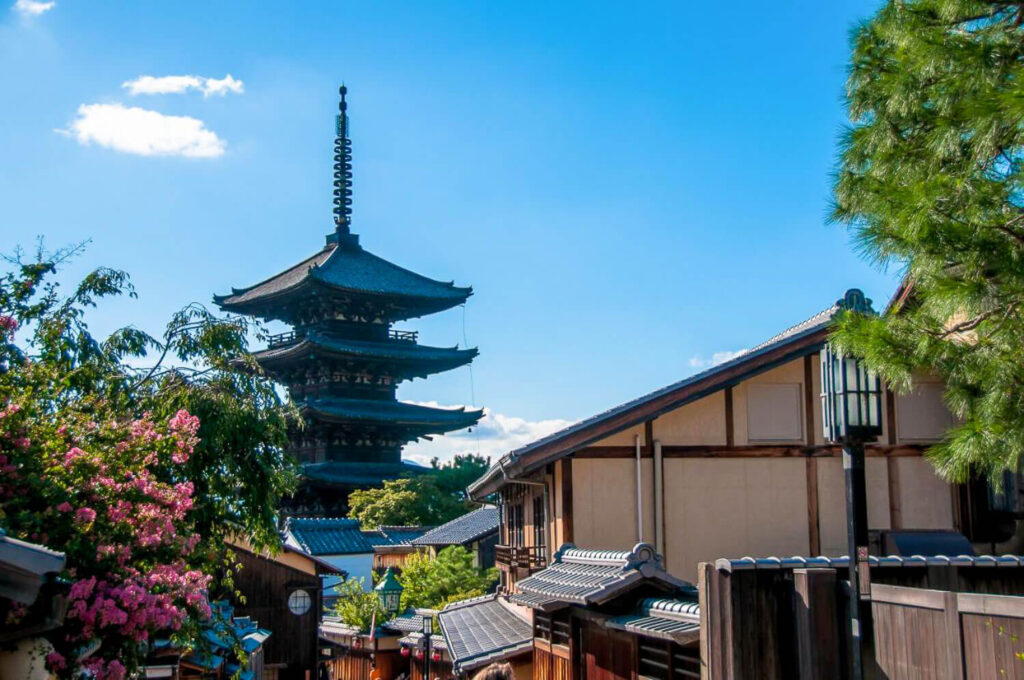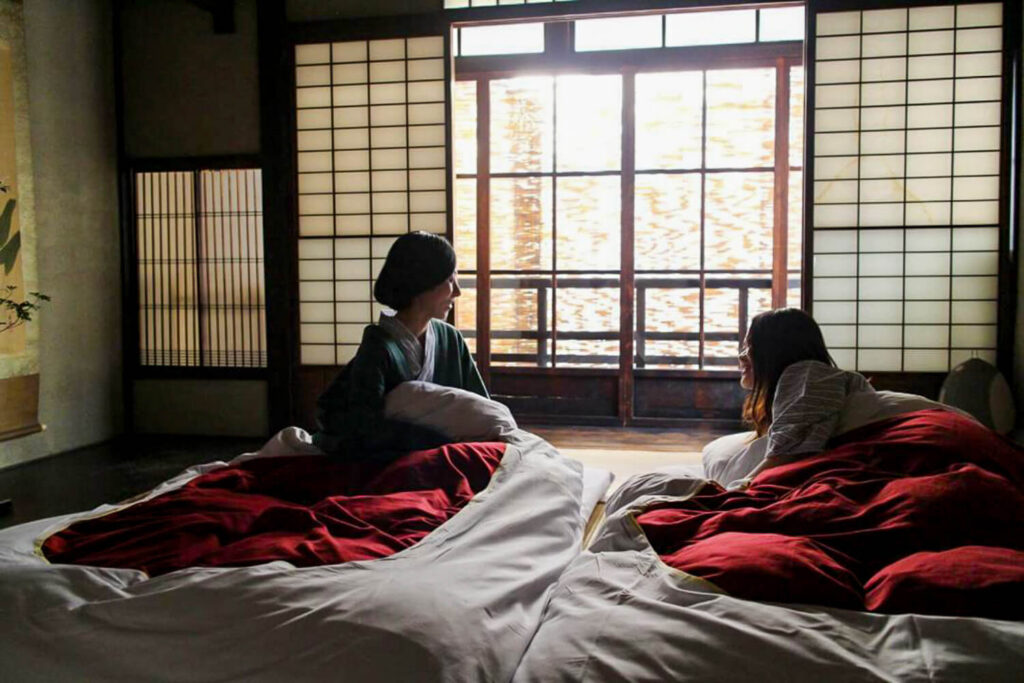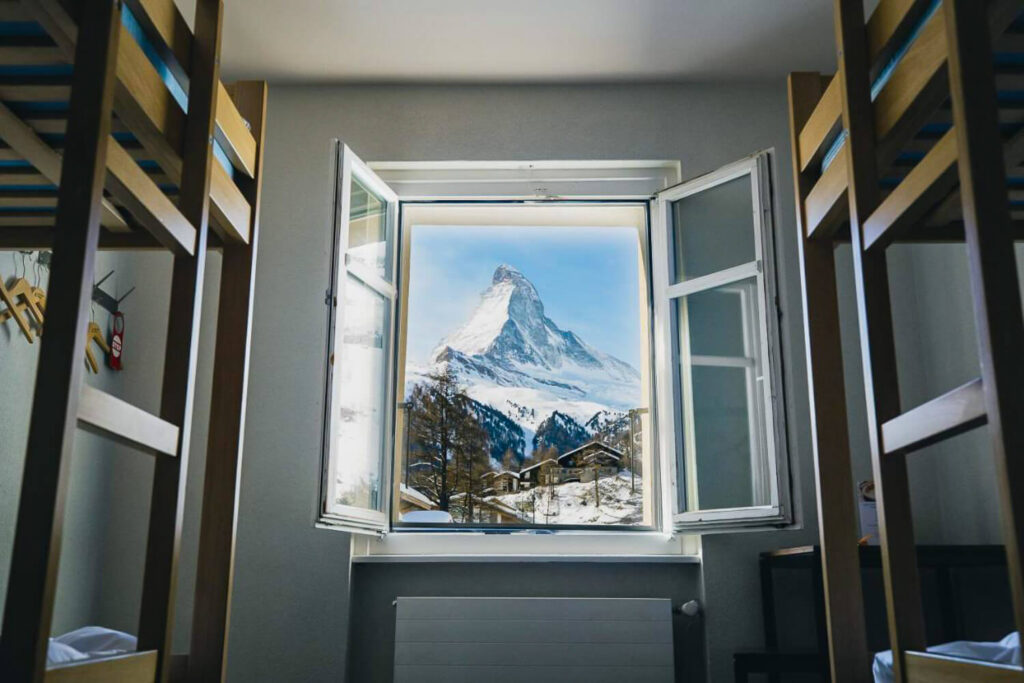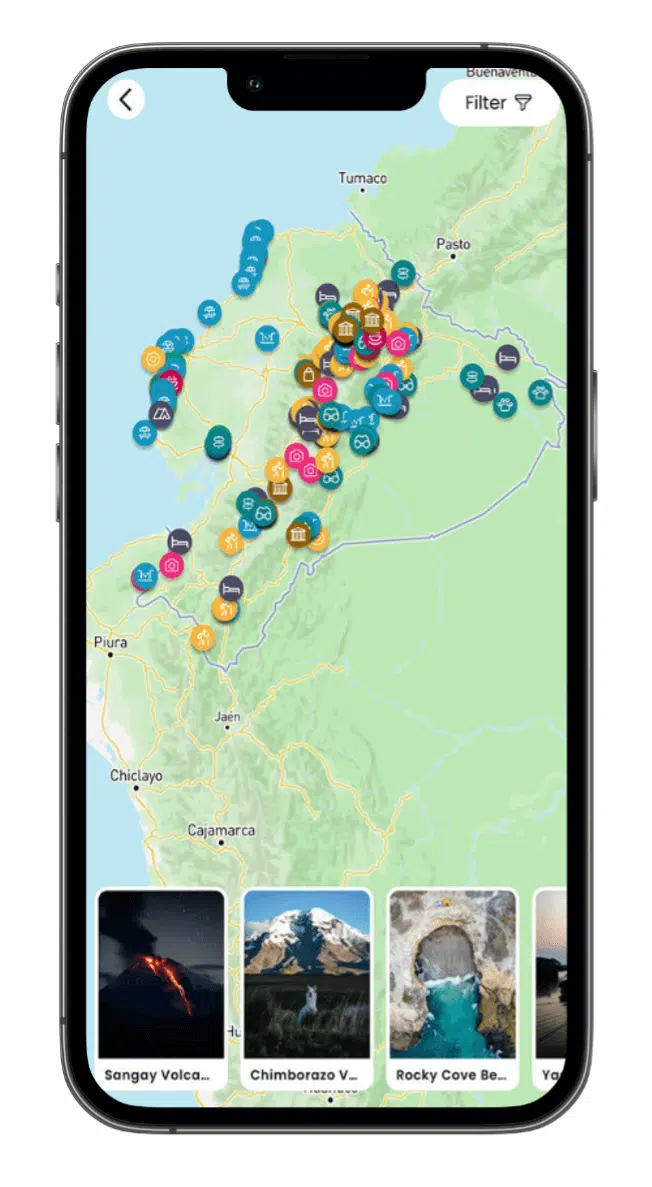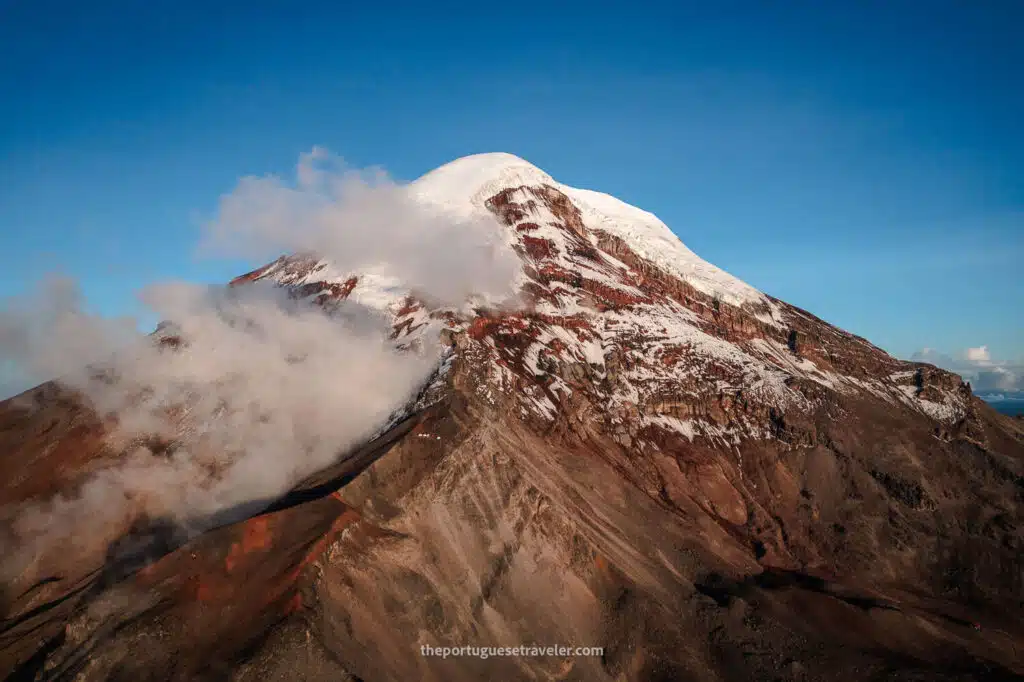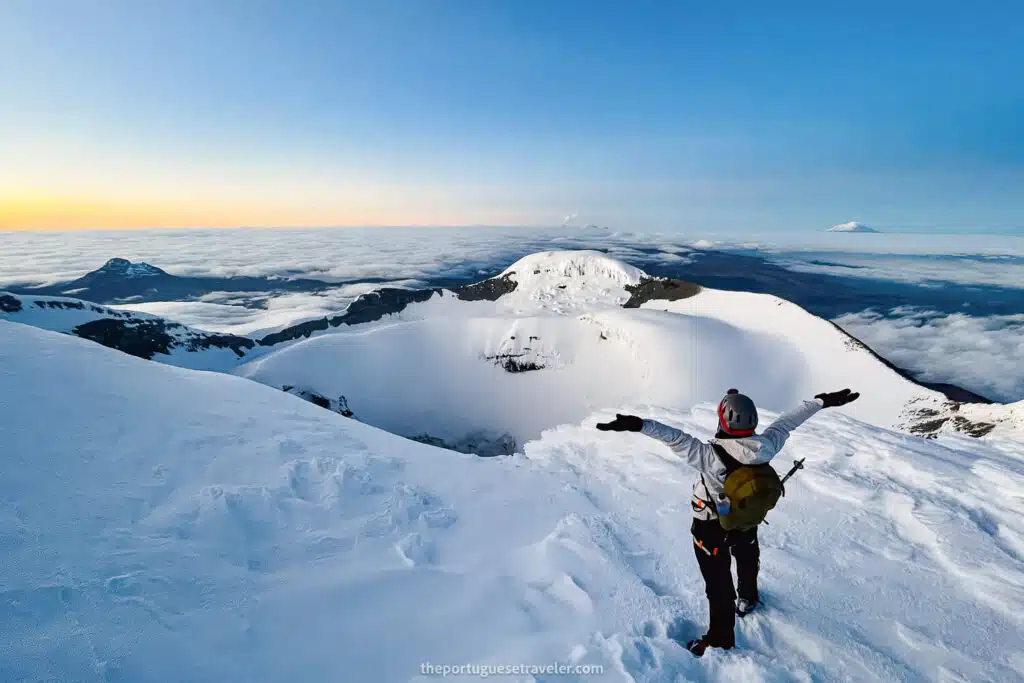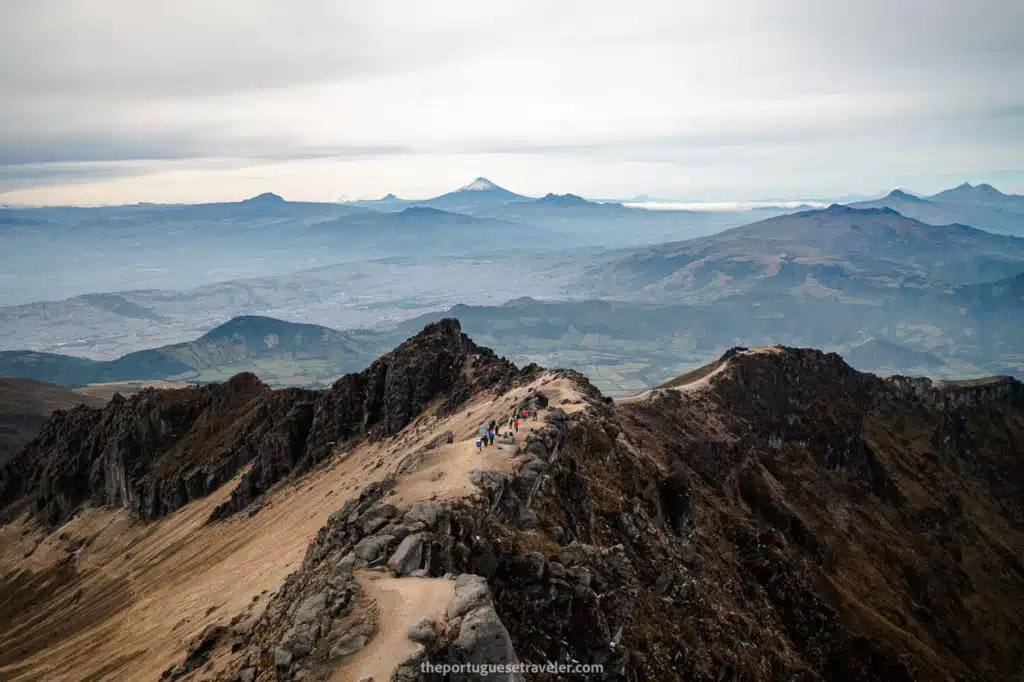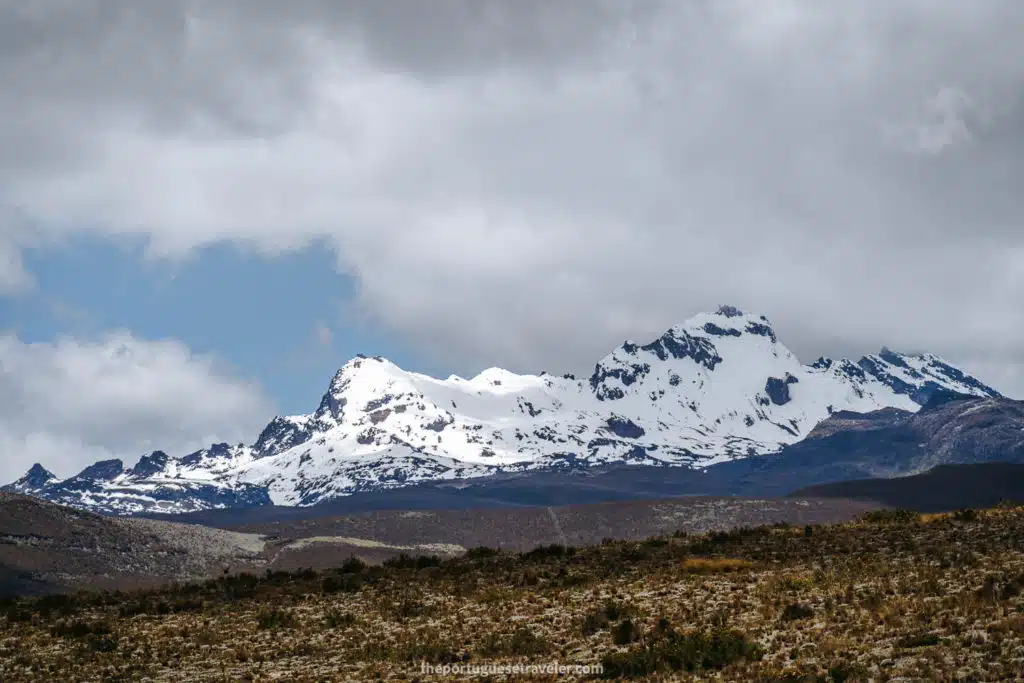Morurco 360 Hike - Cerro Morurco
Cotopaxi National Park
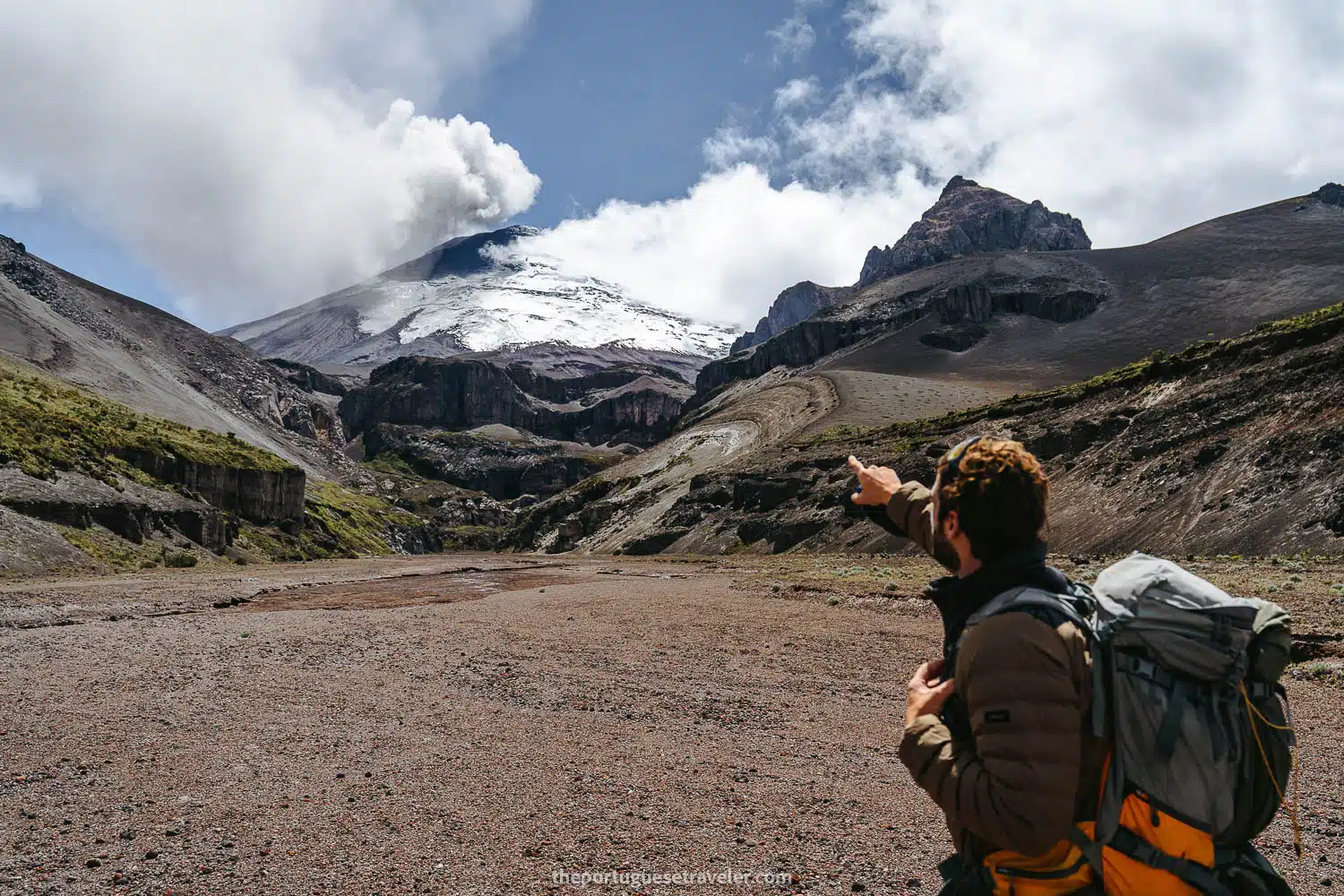
The Morurco 360 Hike, is an unforgettable adventure within the captivating landscapes of Cotopaxi National Park. Nestled on the southeastern slopes of the iconic Cotopaxi volcano, Morurco Mountain, aka. Cerro Morurco, stands tall at an impressive altitude of 4,844 meters, beckoning both seasoned climbers and beginners alike.
Renowned for its accessibility and suitability for acclimatization, this mountain offers a remarkable opportunity to test your skills on rocky terrains while reveling in the natural splendor that surrounds you.
Table of Contents
Travel Guide, Itineraries, Map, Local Tips
Get access to my curated list of all the best viewpoints, hiking trails, secret waterfalls, diving spots, wildlife tours, accommodations, and more, that will make your trip to Ecuador and The Galapagos unforgettable.
All of this, in an interactive guide featuring a mobile-friendly map, pre-designed itineraries, all my favourite photos, and helpful travel tips to guide your journey in this amazing unexplored country.
If you want personalized advice write me in-app and we can plan it together.

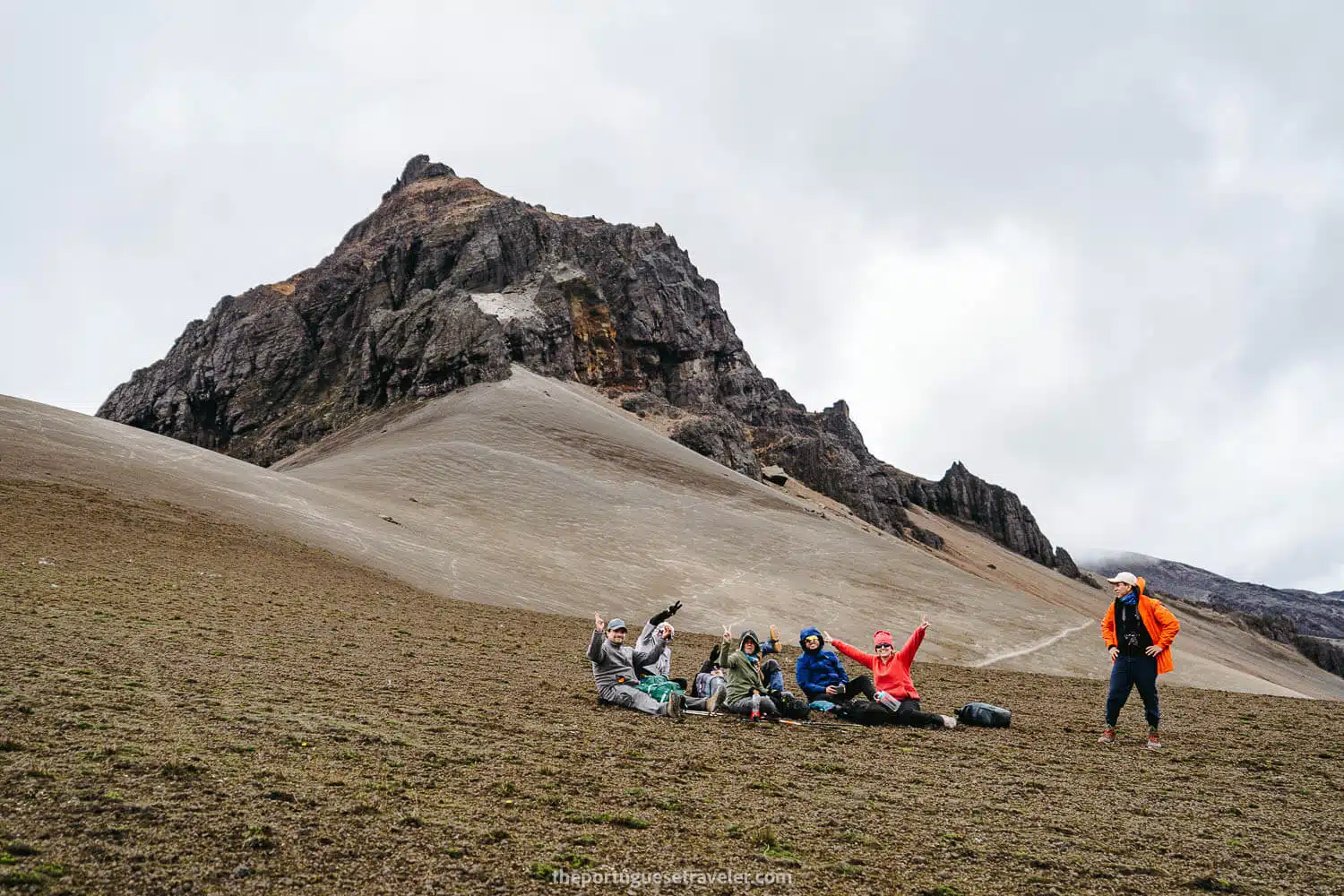
Morurco 360 Hike: General Details
To do the Morurco 360 Hike, a mid-mountain hike in the Ecuadorian Andes, you can do it in three ways, with a Mountaineering Agency, with a private guide, or on your own without a guide (the trail has some signs and there are usually people doing the same trek):
- Highlights: Cotopaxi Volcano South Face, the Morurco Mountain, views of other volcanoes such as the famous Chimborazo, and Los Ilinizas (on a clear day).
- Duration: 1 day.
- Accommodation: No need but there is a refuge and a camping area.
- Authorization: Not required for the Morurco 360 hike. For the Morurco summit, send an email to [email protected] just in case (min. 5 days before your trip).
- Price: 17-45$ (details in the following section)
- Outfit: Mid-mountain gear, and if camping – appropriate equipment (details in the following section)
- Best Months to hike: June – September
- Recommended Agencies: Cumbre Tours, Mountain Tours, Mauna Expeditions
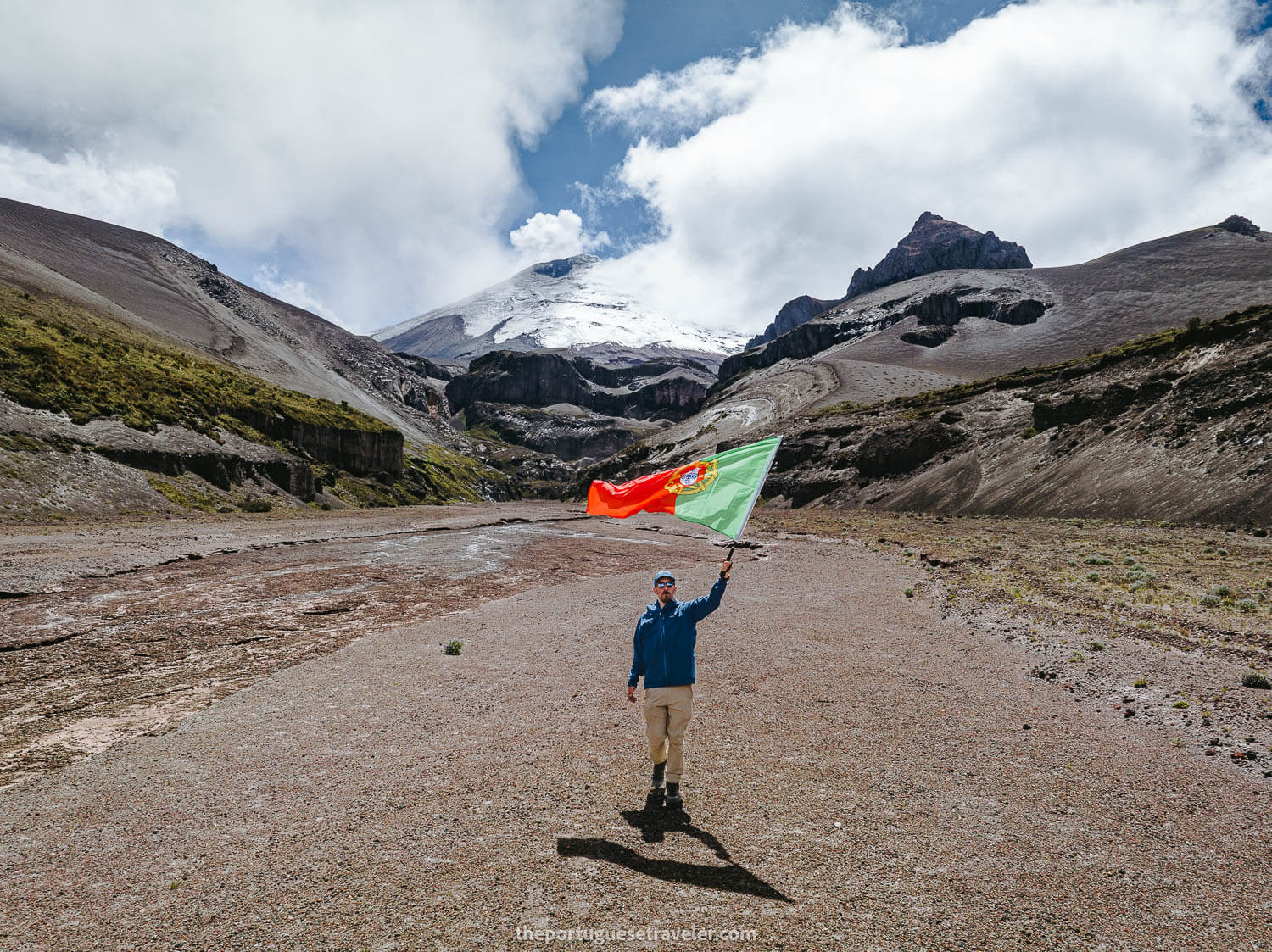
Morurco 360 Hike: Technical Details
- Type: Loop.
- Distance: 14 km – Starting at the parking area, the last place a 4×2 car can reach as there is a gate.
- Duration: 7-8 hours in total (4h of moving time), 9-10 hours counting the lunch and small breaks.
- Difficulty: Moderate-Hard. The most challenging aspect of the hike is the sandy incline following the canyon/lahar, requiring you to ascend approximately 400m within a distance of 1km.
- Incline: ca. 850m of ascent and descent.
- Altitude: 3900m (lowest point) at the parking and 4727m (highest point) at the middle of the hike – The refuge stands at 4000m
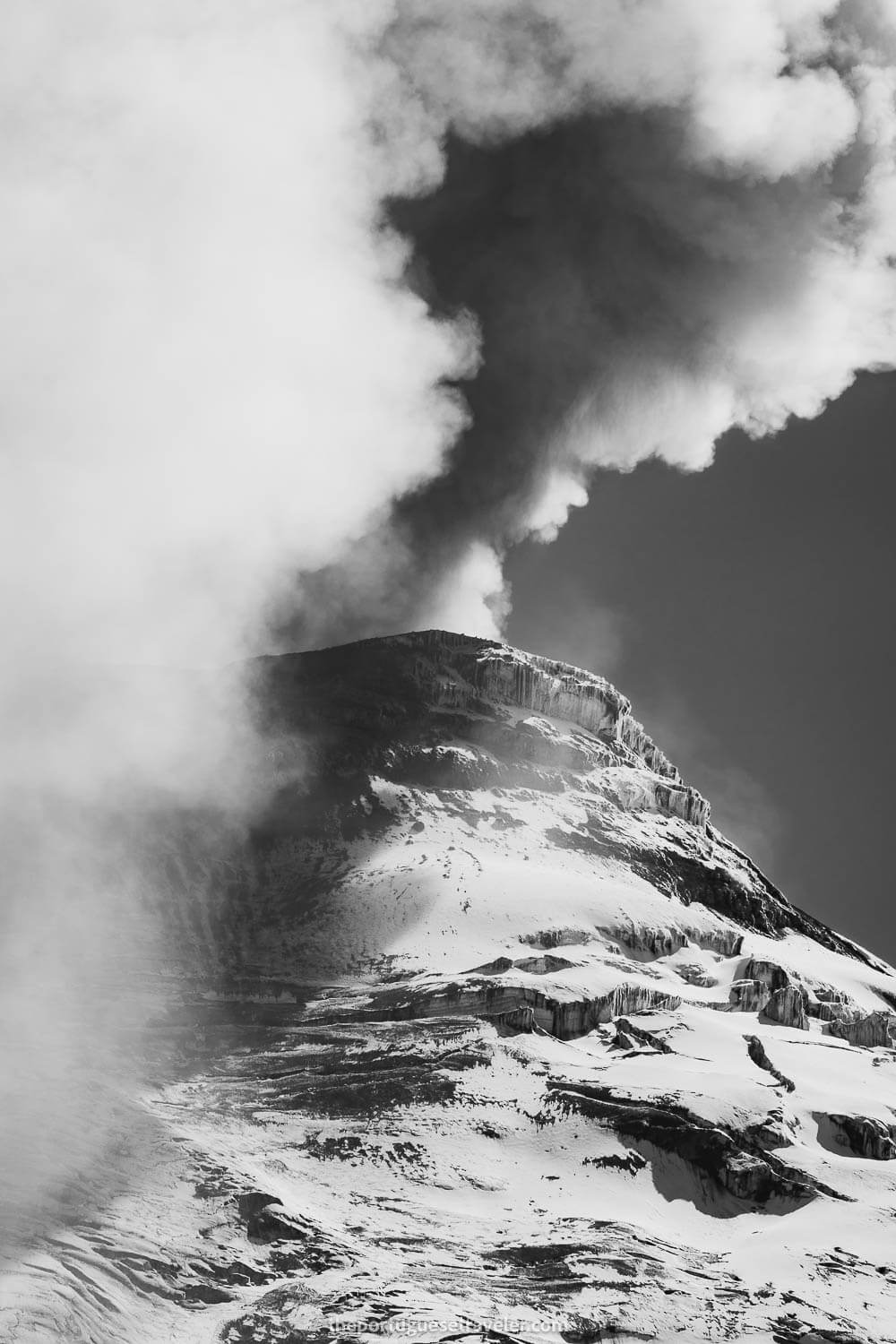
Making the Most of Your Cotopaxi Trip
I couldn’t find any highly-rated tours online for the Morurco 360 Hike, but if you’re set on doing it, I’ve listed the companies and contacts I worked with in the following sections.
If you’re short on time in Ecuador, these three tours let you experience Cotopaxi up close, hike or ride through its landscapes, and even visit Quilotoa – all in just a day:
How to do the Morurco 360 Hike?
To do the Morurco 360 hike, a mid-mountain in the Ecuadorian Andes, you can do it in three ways:
- Mountaineering Agency:
- Pros: More comfortable and easy to plan. Includes everything.
- Cons:
- Shared Trip: Big Groups, Random People
- Private Trip: More expensive than hiring a guide by yourself.
- Hiring a Certified Guide – National Guide – ASEGUIM – UIAGM:
- Pros: Cheaper (you don’t pay the agency’s fee), private, flexible (your own dates), personally choose your own guide.
- Cons: You have to arrange the transportation, accommodation, meals, and rent the technical gear. You have to pay for the guide’s expenses too.
- By yourself:
- Pros: It’s Free
- Cons: You might get lost if you don’t follow a Wikiloc Map or If there aren’t people nearby that you can follow. Yes, there are signs but not many. And in foggy conditions, you might not see the path.
- Mountaineering Agency:
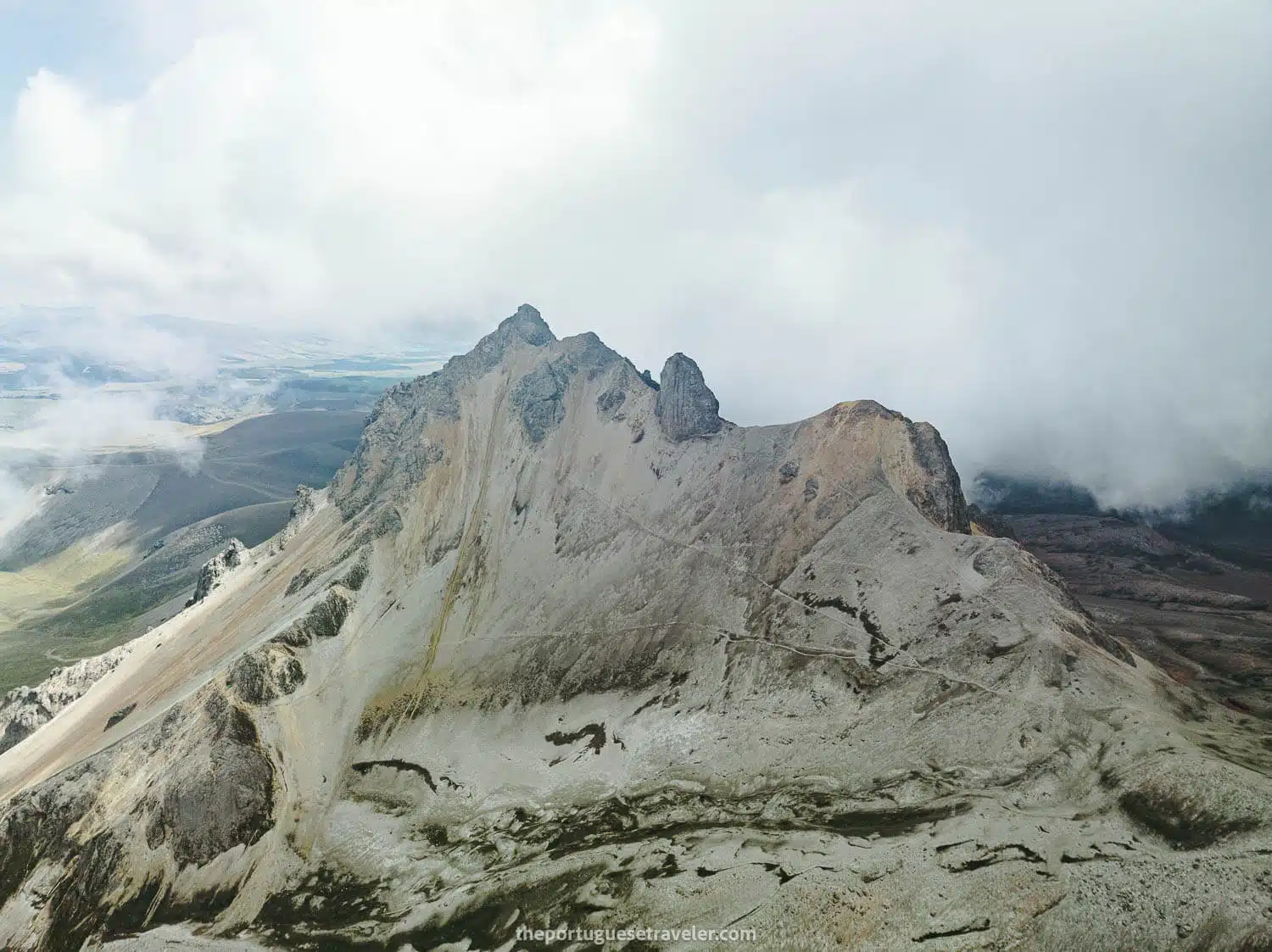
What clothing should i bring for the Morurco 360 Hike?
To ensure a safer and more comfortable journey in this Mid-Mountain, certain specific equipment is indispensable (if you’re going for the Morurco summit then the technical gear is also required):
Essentials:
- Breathable T-shirt (Tech or Merino)
- Waterproof Jacket (Gore-tex or H2O Technology)
- Puffer Jacket
- Shorts or Pants
- Hiking Shoes or Trekking Boots
- Backpack: 25-35 liters
- Hiking Socks: One Layer (preferably merino wool for breathability and comfort)
- Gloves: One Layer (preferably merino wool for breathability and comfort)
- Sunglasses: Category 4 UV protection.
- Cap: Or a beanie and buff if it’s cold.
- Sunscreen: Ensure you have a minimum of SPF 50.
- Trekking Poles: For the entire hike.
- Low Gaiters: For peace of mind if there’s gravel.
Climbing Equipment (especially if you’re going for the summit):
- Helmet: For the rocky sections next to every summit.
- Harness: If there is snow and loose rocks at the summit.
- Rope: For the summit push (usually the guide brings)
- Carabiners: For the summit push (usually the guide brings)
Useful Extras:
- Victorinox Swiss Multi-Tool or Victorinox Hiker Knife
- Change of Clothes
- First-Aid Kit
Consumables:
- Drinks, and Snacks: Bring enough of it especially if you’re a beginner.
- Thermos
Check out my complete guide on What’s in My Backpack – From photography gear, and clothing for Hiking, Mountaineering, Scuba Diving, Rainforest, and City-Street Photography.
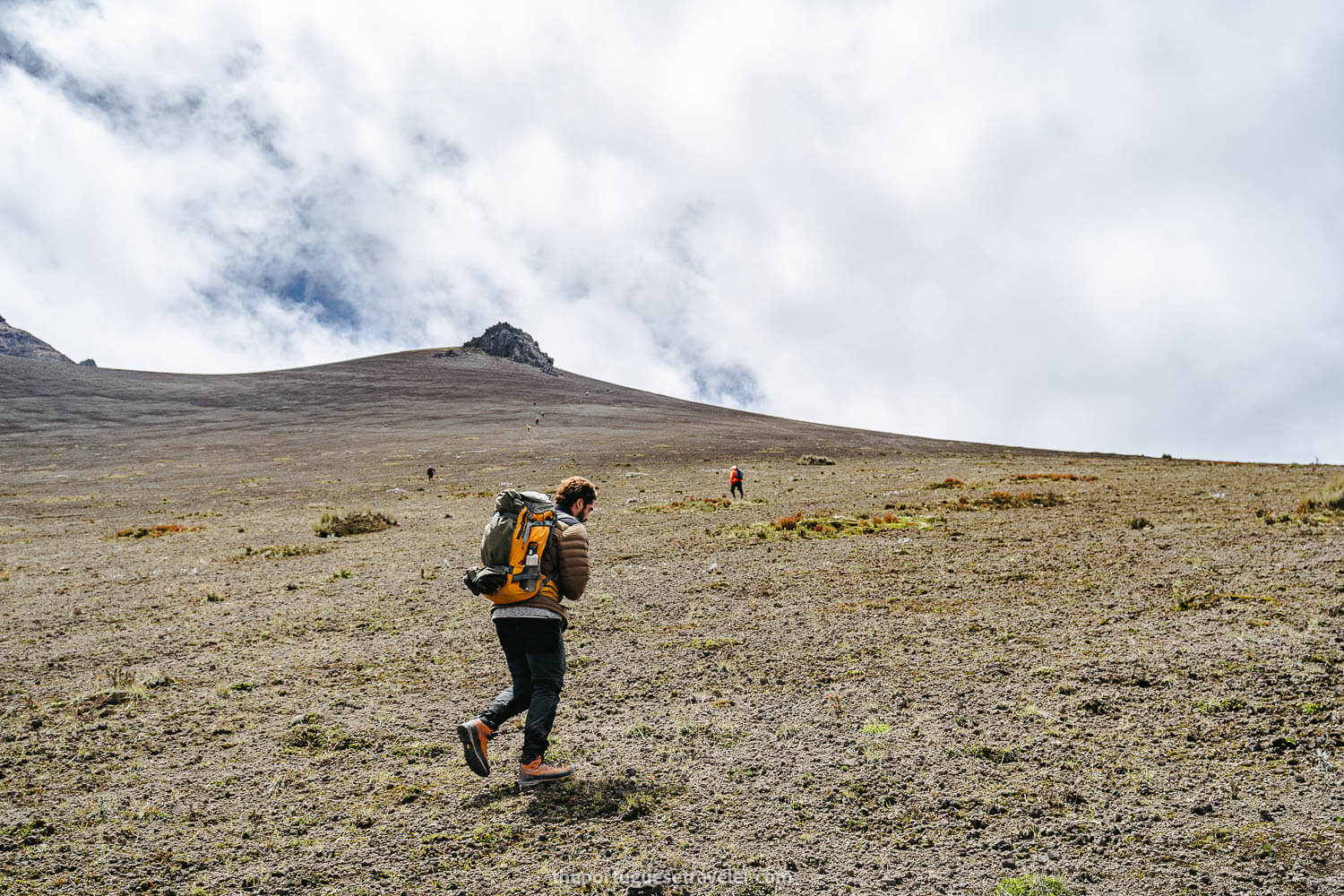
How much does it cost to do the Morurco 360 Hike?
To provide you with an estimation of the expenses associated with the Morurco 360 hike, I have provided a detailed breakdown of the costs involved. Firstly, you need to consider whether you will be going with an agency, a private guide, or by yourself. Additionally, there are other supplementary expenses that require careful consideration.
Agency/Private Guide:
- Mountaineering Agency (shared trip): 45$ (pp) – The pricing decreases as the number of participants increases (12-30 persons).
- Hiring a National guide: Around 40$ (2-3 persons).
Transport (from Quito – Terminal Quitumbe):
- Bus (Quito – Lasso): 4$ (both ways)
- Taxi (Lasso – Ticatilín): 10-12$ (both ways)
- Taxi (Ticatilín – Refuge): 8-12$ (both ways)
- Gas: 20$ (both ways)
Accommodation:
- Camping: Free just to sleep (there might be a 1-2$ fee to camp), or 10$ if you want dinner and breakfast.
- Refuge: 30$ (pp), it also includes dinner and breakfast.
Check the official website of the Refuge (Refugio de Montaña Cotopaxi Cara Sur) for more up-to-date prices and info.
Equipment for Rental:
(Daily prices without taxes)
- Helmet: 4$ (used) – 5$ (new)
- Crampons: 5$
- Ice Axe: 4$ (used) – 5$ (new)
- Harness: 4$ (used) – 5$ (new)
- Waterproof Pants: 5$ (used) – 6$ (new)
- Waterproof Jacket: 5$ (used) – 6$ (new)
- Waterproof Gloves: 3$ (used) – 4$ (new)
- Rubber Boots: 10$
- Mountaineering Boots: 12.5$ (used) – 20$ (new)
- Tent: 12$
- Mattress: 2.5$
- Sleeping Bag: 5$ (used) – 6$ (new)
- Backpack 35-65L: 5$
- Sunglasses (UV 4): 3.5$
- Headlamp (without batteries): 3$
Equipment for Sale:
- Trekking Poles: 10$
- Fleece+Pants (1st Layer): 44.80$
- Gloves (1st Layer): 3.92$
- Socks (Merino Wool 70-80%): 16.80$
- Socks (1st Layer): 11.20$
*Prices from Los Alpes Store in Quito, 26.May.2023
Alternative Stores for renting equipment: Tatoo, Cotopaxi Warehouse, Andes Alpino, Mountain Tours.
Food, Drinks, and Snacks: 10$ (pp)
Estimated Total (per person):
- Scenario 1:
- Group of 3,
- Full Equipment,
- Private Car,
- Didn’t hire a guide:
- Price Breakdown: 6,6$ (gas), 10$ (meals).
- Total: 16,6$ USD
- Scenario 2:
- Group of 2
- No Equipment,
- Hired a Privet Tour with an Agency.
- Price Breakdown: 45$ (ASEGUIM guide + logistics)
- Total: 45$ USD.
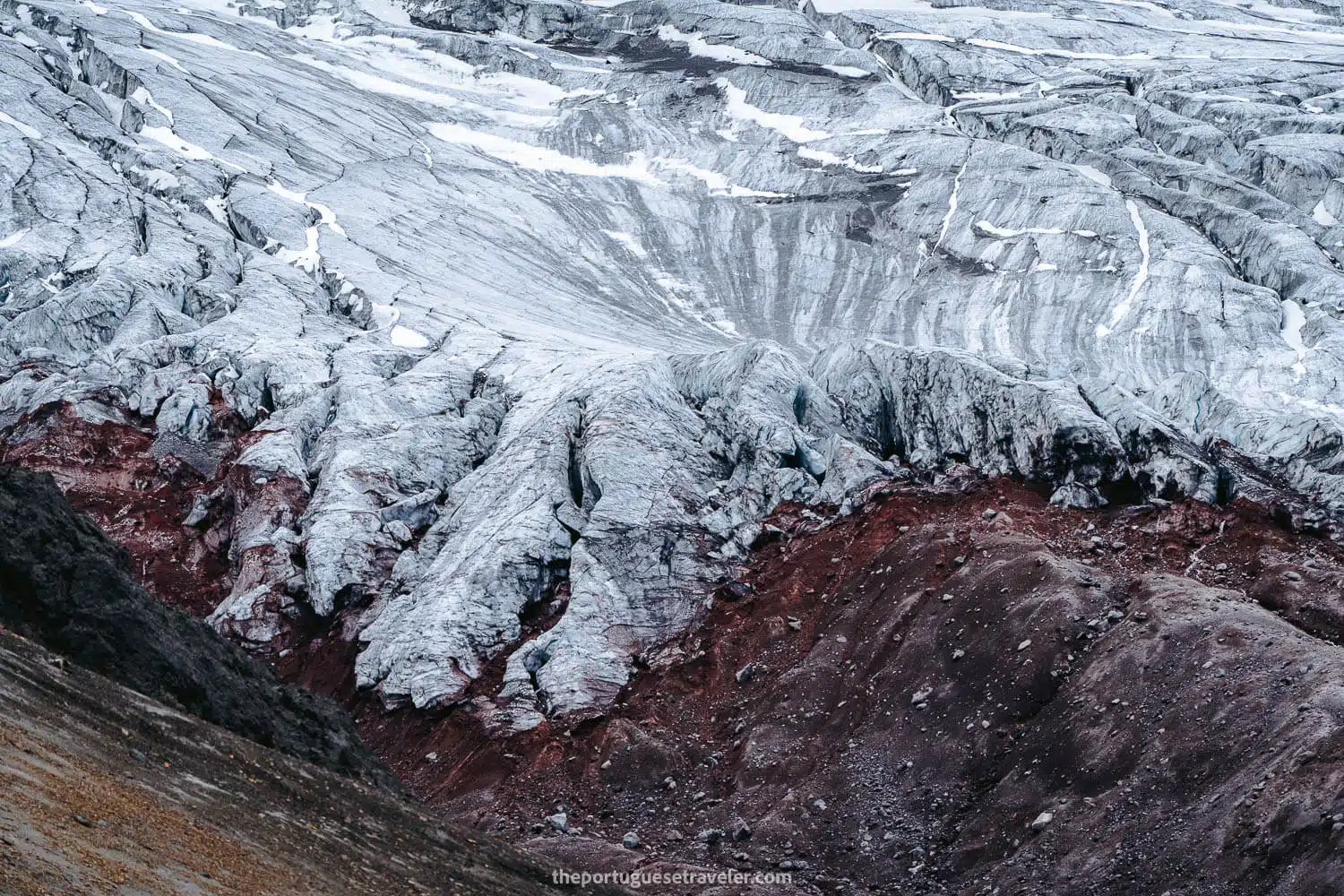
How to get to the Morurco Mountain?
By Car:
*I strongly advise a 4×4 car since the terrain from Ticatilín to the parking has lots of holes.
From Quito to the parking of the refuge/basecamp it takes around 1:30h – Direction Quito – Machachi – Ticatilín – Parking of the Refuge (72,5km)
From Guayaquil to the parking of the refuge/basecamp it takes around 5:30h – Direction Guayaquil – Riobamba – Ambato – Ticatilín – Parking of the Refuge (366,5km).
From Riobamba to the parking of the refuge/basecamp it takes around 2:20h – Direction Riobamba – Ambato – Ticatilín – Parking of the Refuge (146km).
By Bus & Taxi:
From Quito (Quitumbe Terminal) to Lasso (by bus), and then from Lasso to the Parking of the Refuge (by taxi).
From Guayaquil to Latacunga (by bus), and then to Ticatilín and the Parking of the Refuge (by taxi).
From Riobamba to Latacunga (by bus), and then to Ticatilín and the Parking of the Refuge (by taxi).
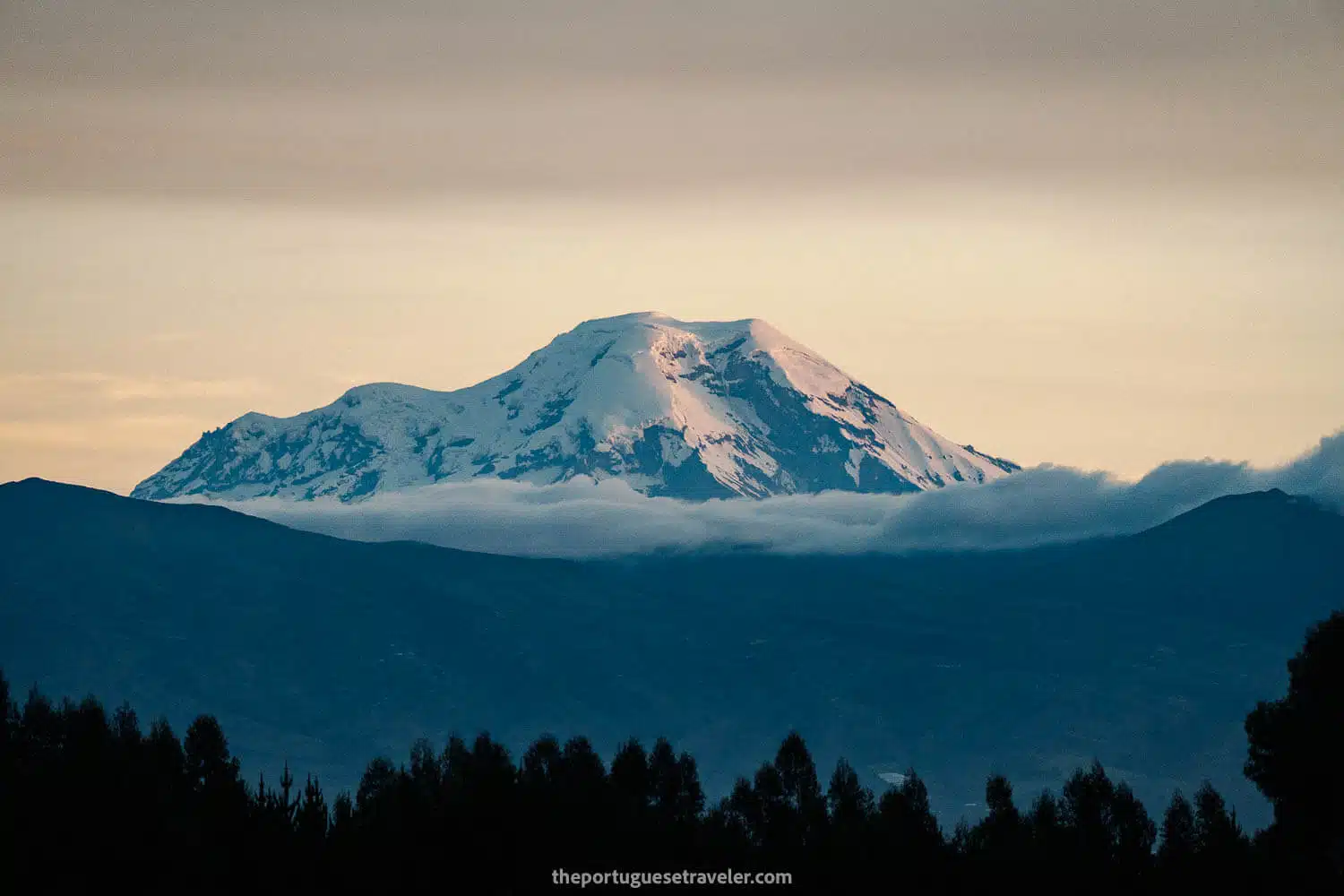
Morurco Mountain: Curiosities
- Name and Meaning: The Morurco peak, also known as “Cabeza del Inca” (The Inca Face) in the past, was referred to as “Morurco” by Humboldt, although the origin and meaning of this name remain uncertain. This name has been widely adopted and is commonly used to refer to the rocky peak situated at the southern face of the Cotopaxi volcano.
- Rocky components: The peak is composed of ampholic-pyroxene andesite rocks, remnants of an ancient volcanic cone that preceded the current one.
- Views: The Morurco offers breathtaking views of the Cotopaxi volcano. On clear days, the south face glaciers of Cotopaxi can be seen towering just 200 meters north of the Morurco peak.
- Location: The Morurco is situated within the Cotopaxi National Park, which encompasses a beautiful area showcasing the visible effects of intense volcanic activity. This includes volcanic sand slopes, ancient glacial valleys, and the striking black Morurco rocks, sometimes covered with snow and ice.
- Historical ascent: In 1872, Wilhelm Reiss became the first to conquer the Cotopaxi volcano by ascending its south face, passing near the Morurco peak. He was accompanied by his butler Angel Escobar and his dog, traversing sand and rock drifts caused by a recent eruption.
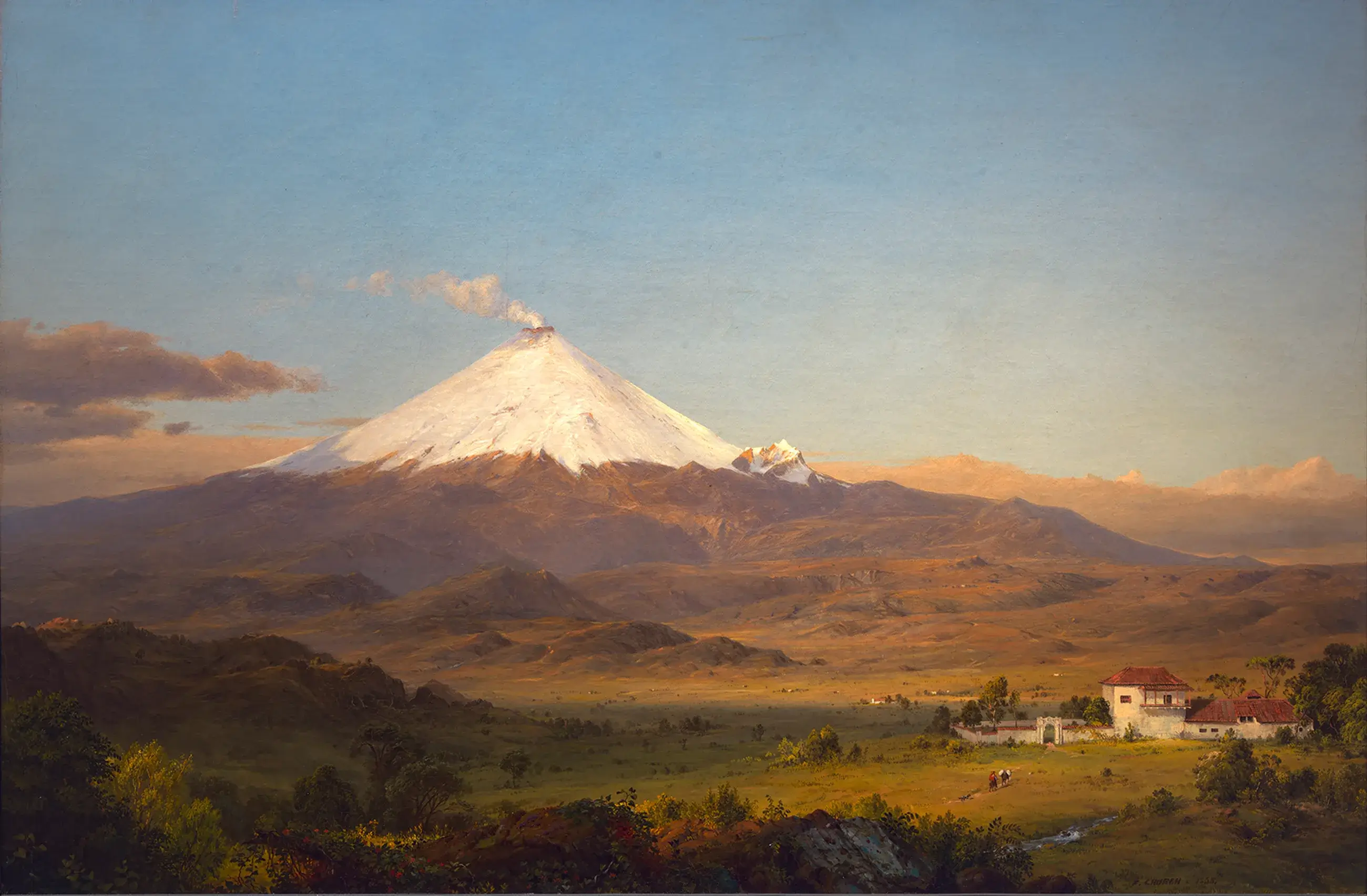
(Source: https://americanart.si.edu/artwork/cotopaxi-4807)
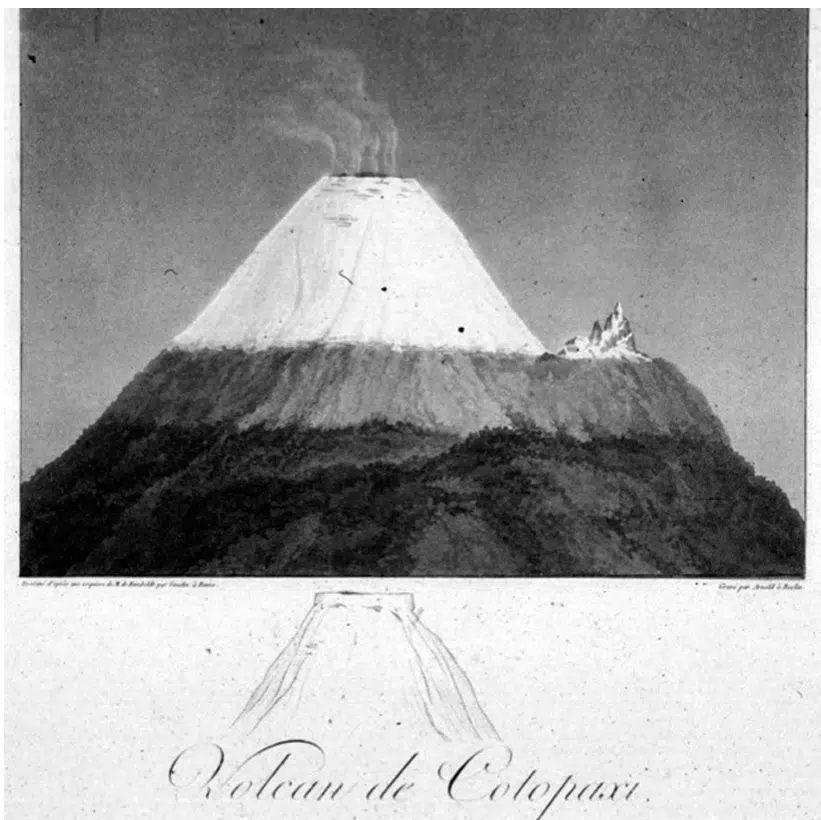
(Source: https://www.ambiente.gob.ec/wp-content/uploads/downloads/2017/03/ecociencia_vol_2.pdf)
My Experience on the Morurco 360 Hike
The Morurco 360 Hike proved to be both physically demanding and filled with unexpected challenges. The hike itself was exceptionally long, making it advisable to tackle it only after gaining experience with mid-mountains. Moreover, reaching the hike’s starting point proved to be quite difficult, and I strongly discourage driving your own car unless you’re willing to risk its condition.
Even the jeeps that followed us incurred scratches along the way. Regrettably, my car suffered scratches on both sides and sustained some damage underneath. The path was riddled with deep potholes, necessitating the use of branches to navigate through them. It took us six attempts before successfully maneuvering through. Therefore, unless your car is already scratched and equipped with 4×4 capabilities, it’s best not to bring it here.
Setting aside the challenges, we eventually arrived at the parking lot and began our ascent to the refuge.
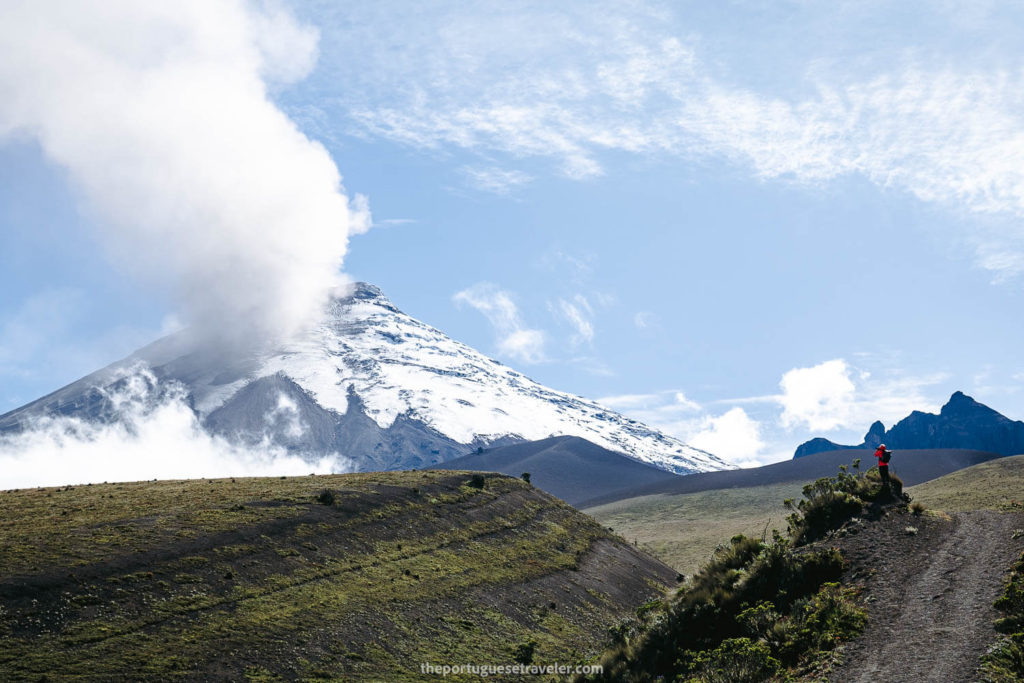
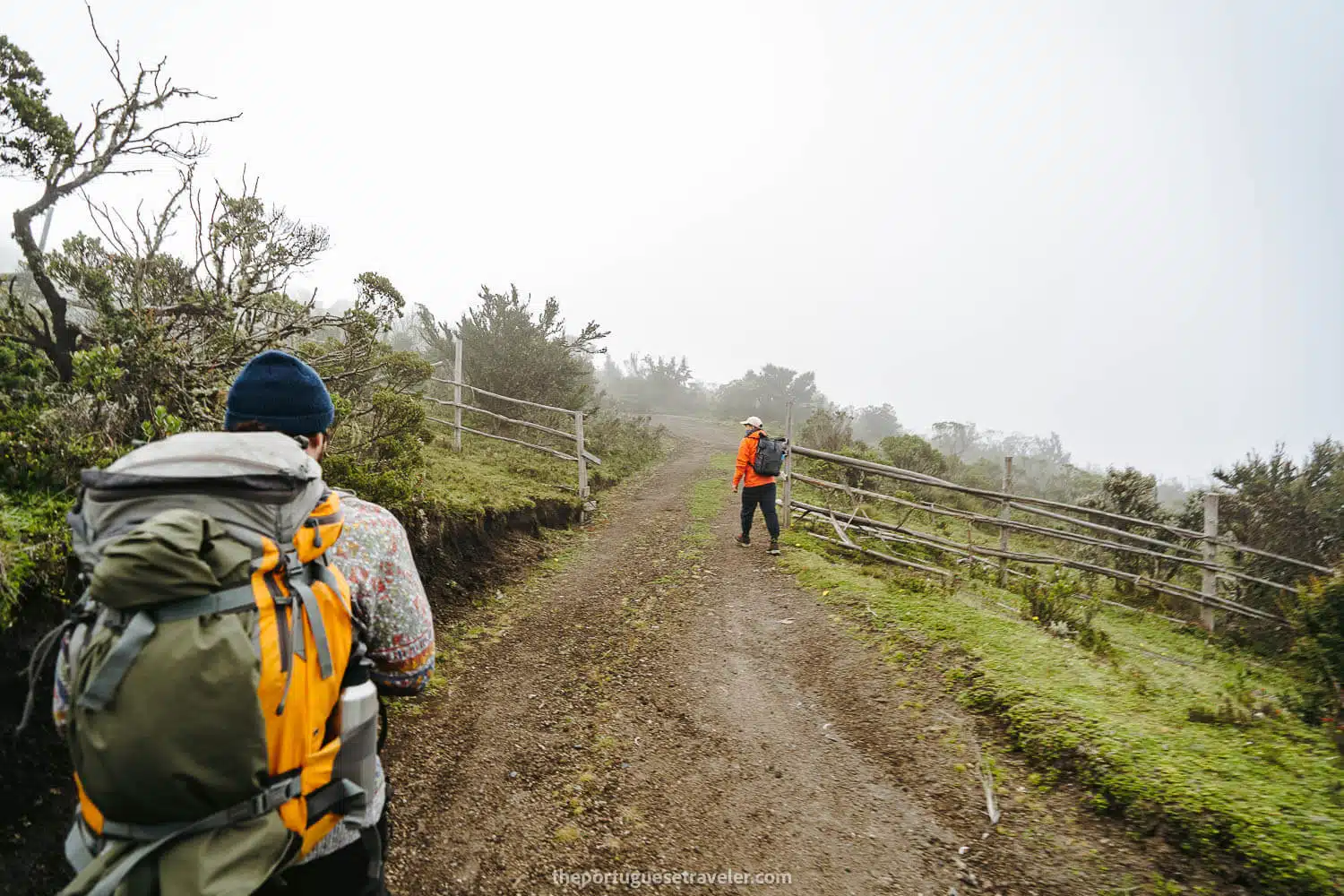
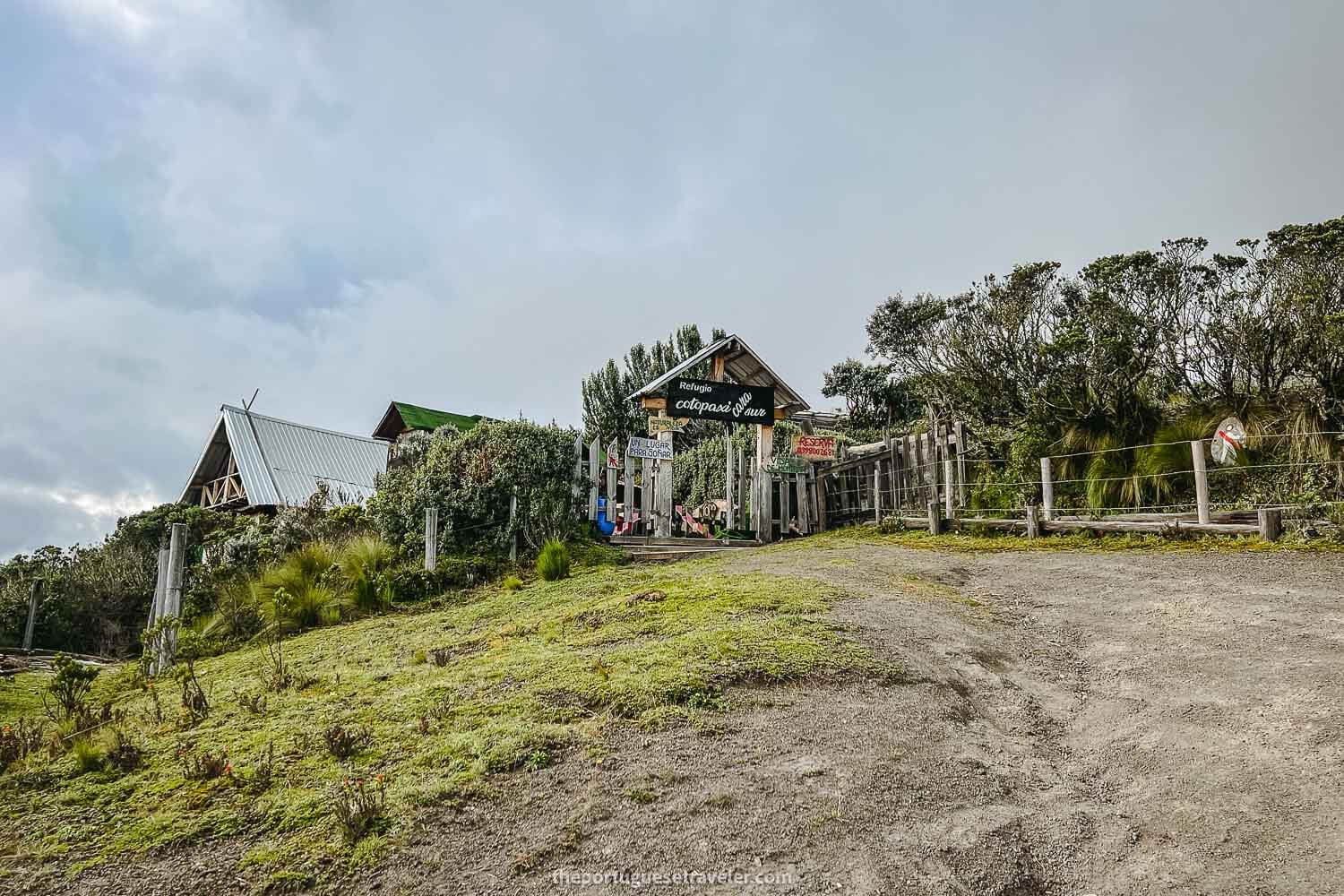
From the Parking lot to the Canyon
Since it was a Sunday, the refuge appeared to be closed. Undeterred, we continued our hike until we caught a breathtaking view of Cotopaxi without any clouds, a sight worth beholding, especially considering the cloudy sky en route to Ticatilín.
From there, we proceeded straight along the only available path until we reached a point where people were diverging left or right.
Opting for the right path was a strategic decision, as it meant avoiding a highly inclined sandy slope during the return journey to the refuge. Going left would have been a grueling experience, particularly if fatigued. Hence, we decided to go right and descended the slope into the lahar/landslide canyon.
At that checkpoint, before descending, we enjoyed a magnificent view of Cerro Morurco and Cotopaxi, capturing some remarkable photographs.
We swiftly descended the sandy section, given its nature, until we reached the lahar, a canyon formed long ago by the sliding lava from Cotopaxi Volcano. We took some thrilling shots there, with me proudly displaying my Portuguese flag and the others operating the drone to capture stunning panoramas and showcase my patriotic spirit.
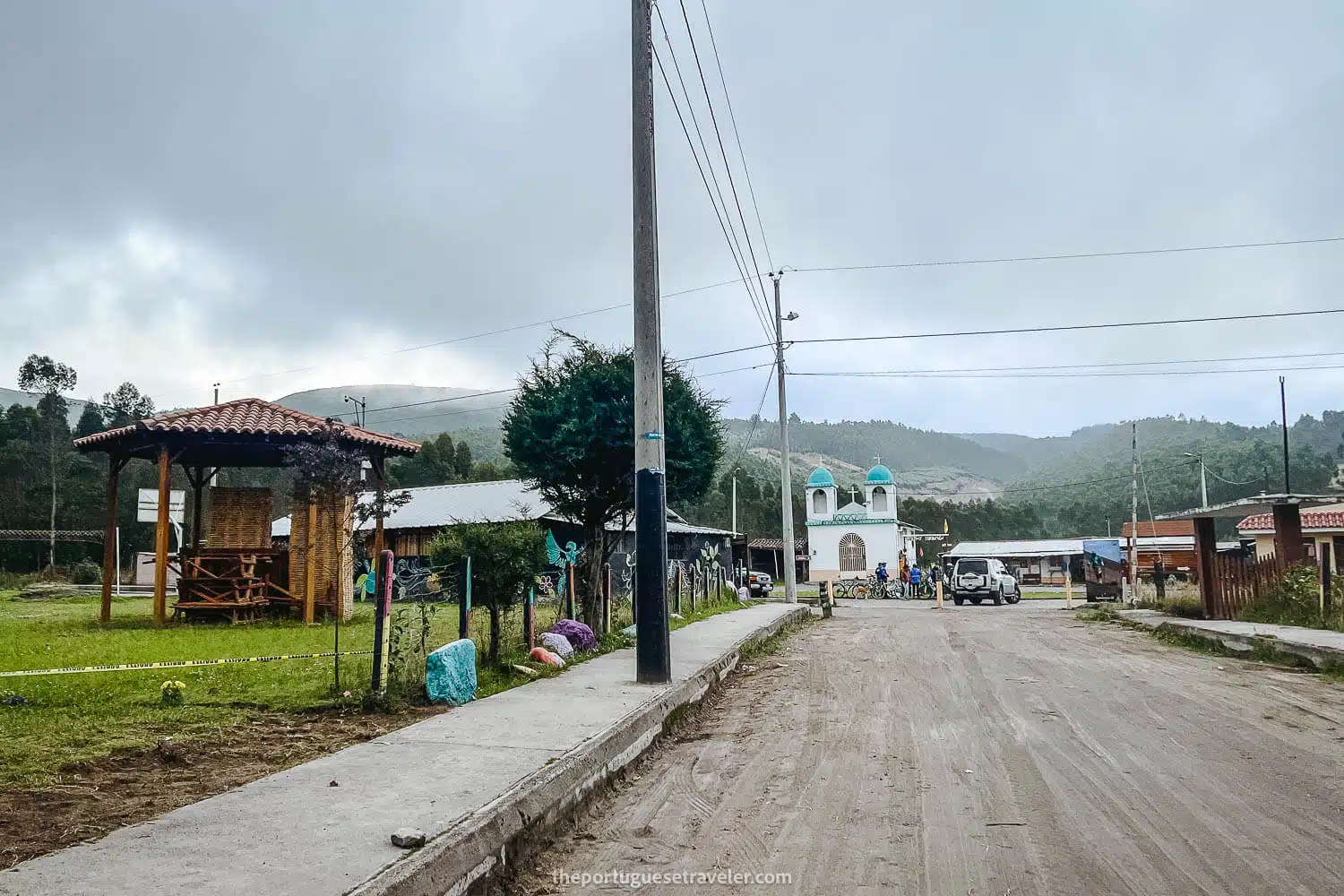
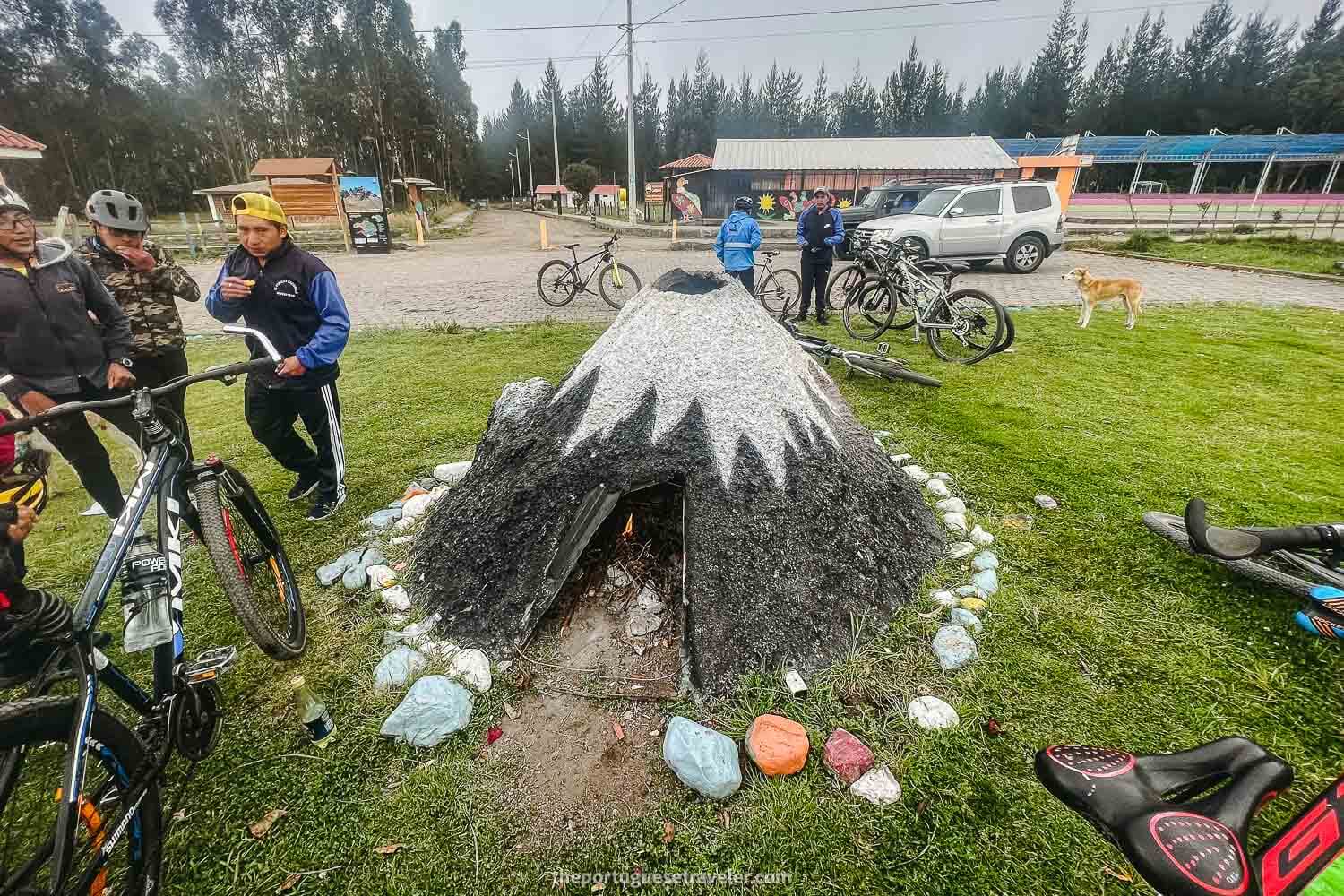
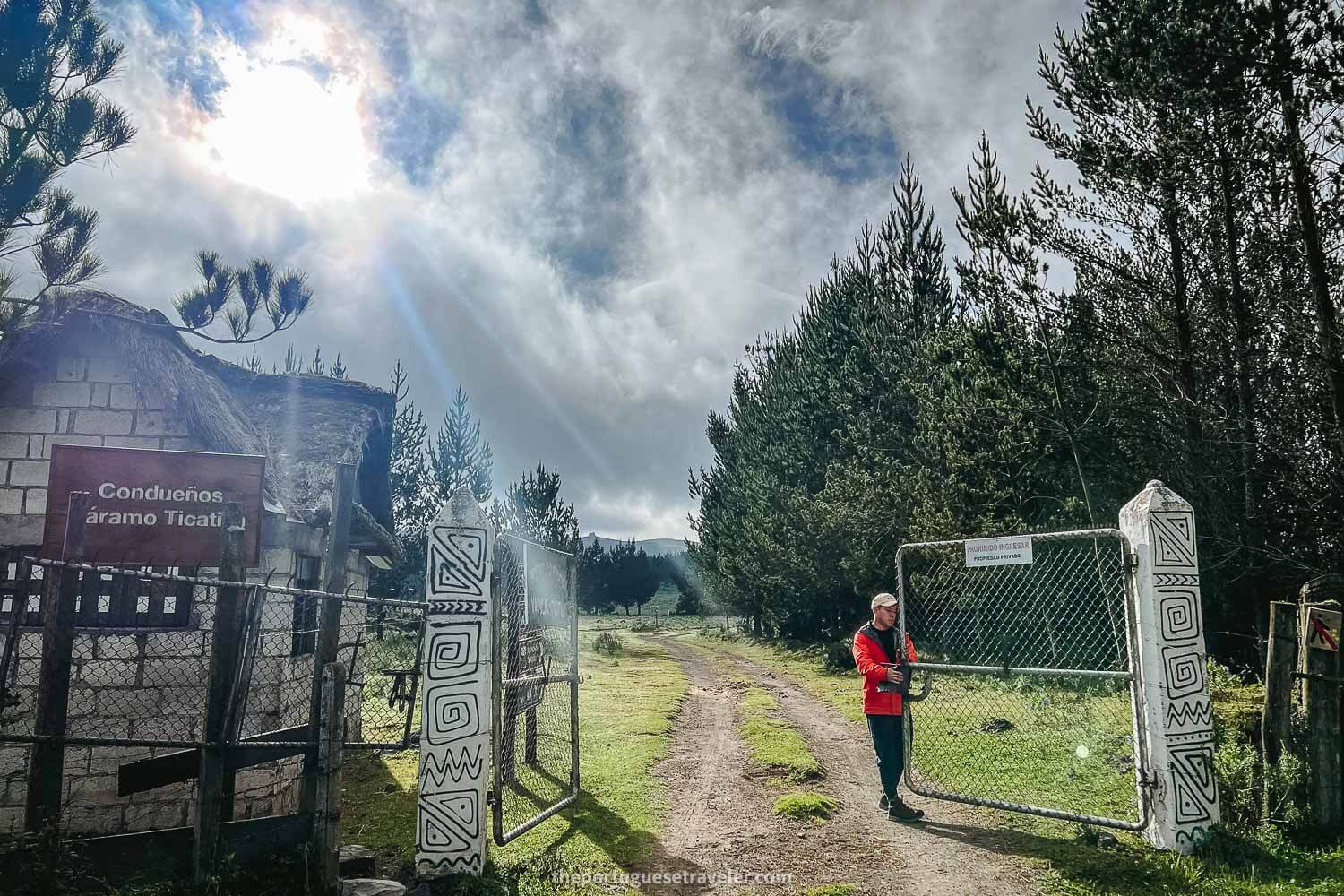
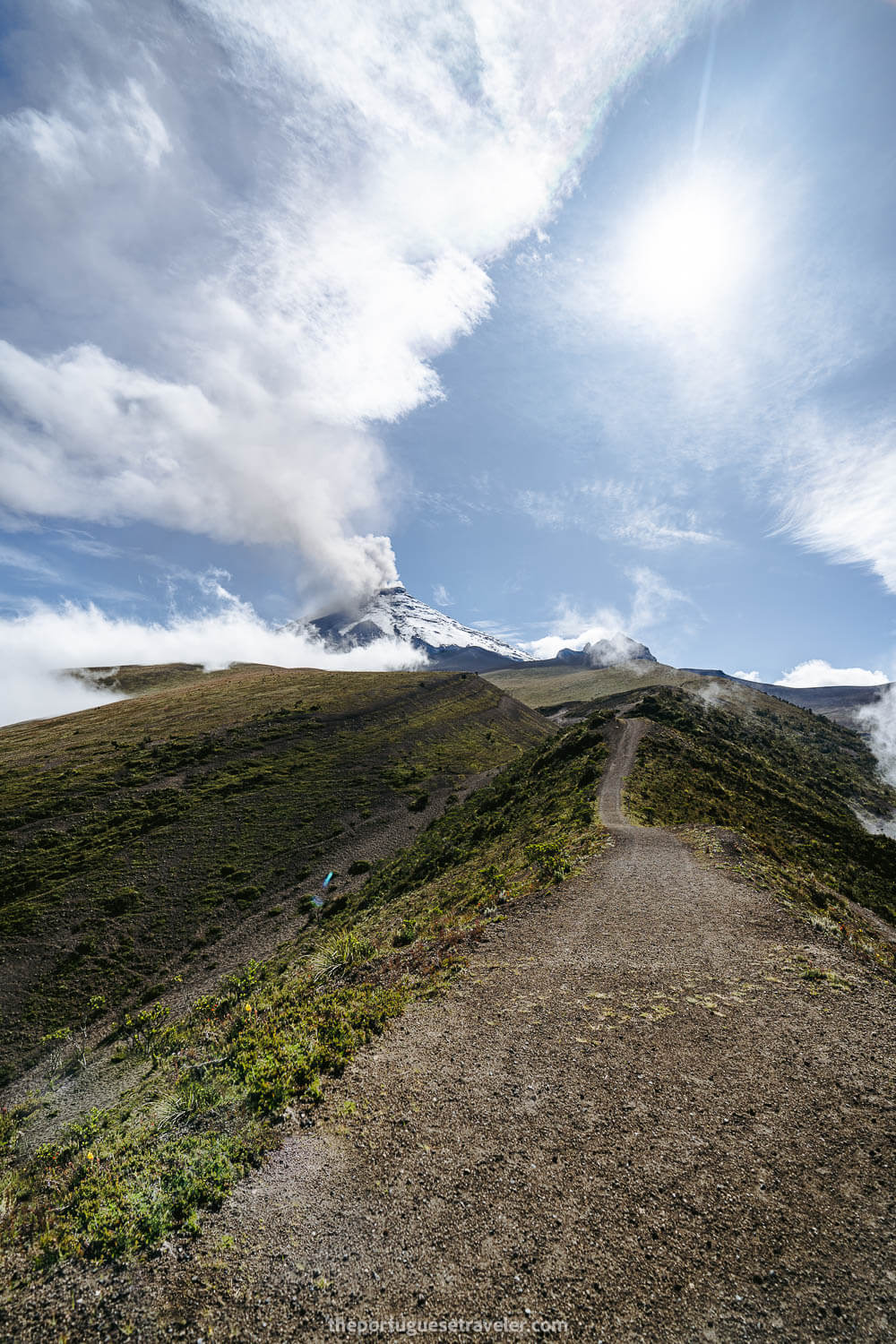
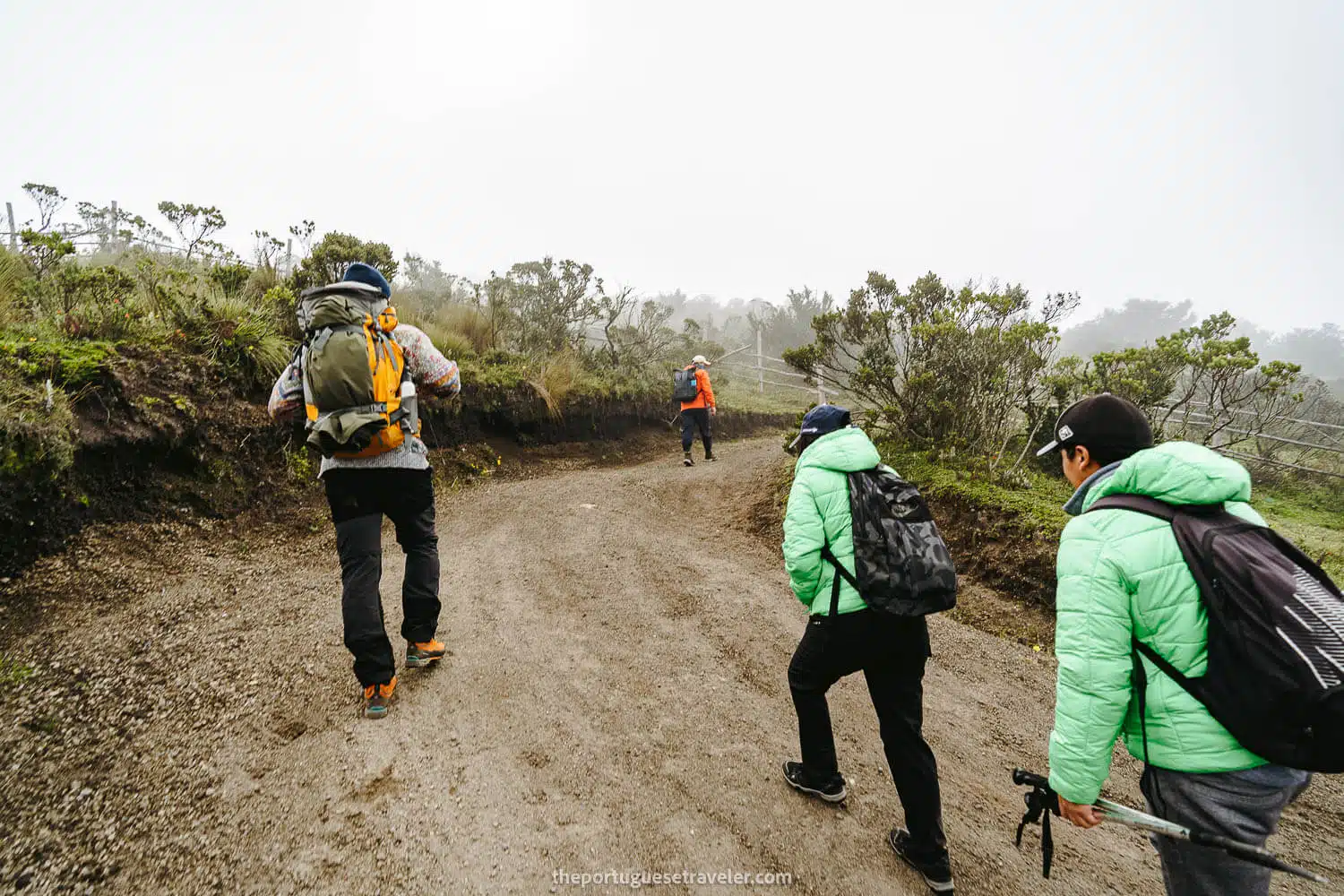
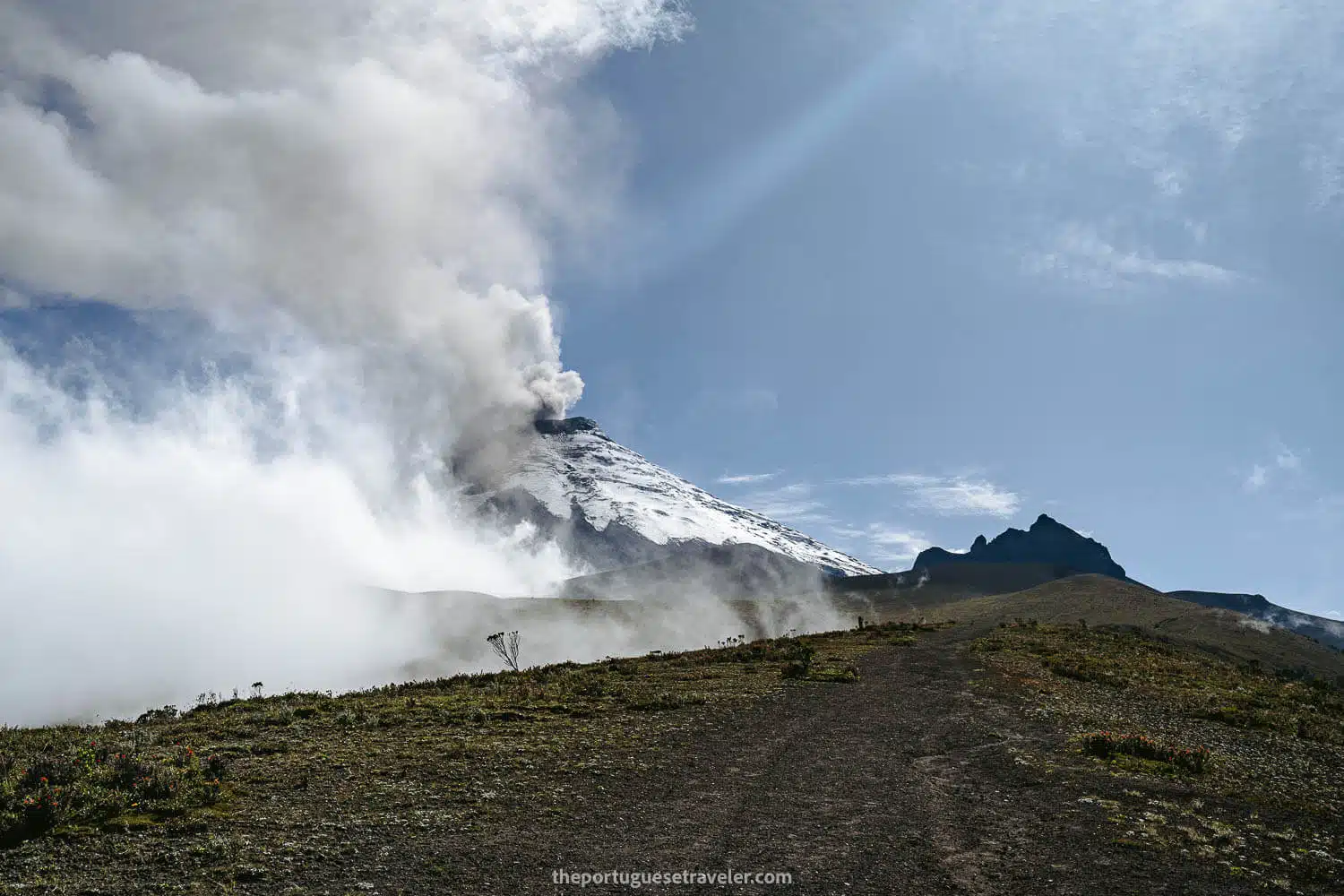
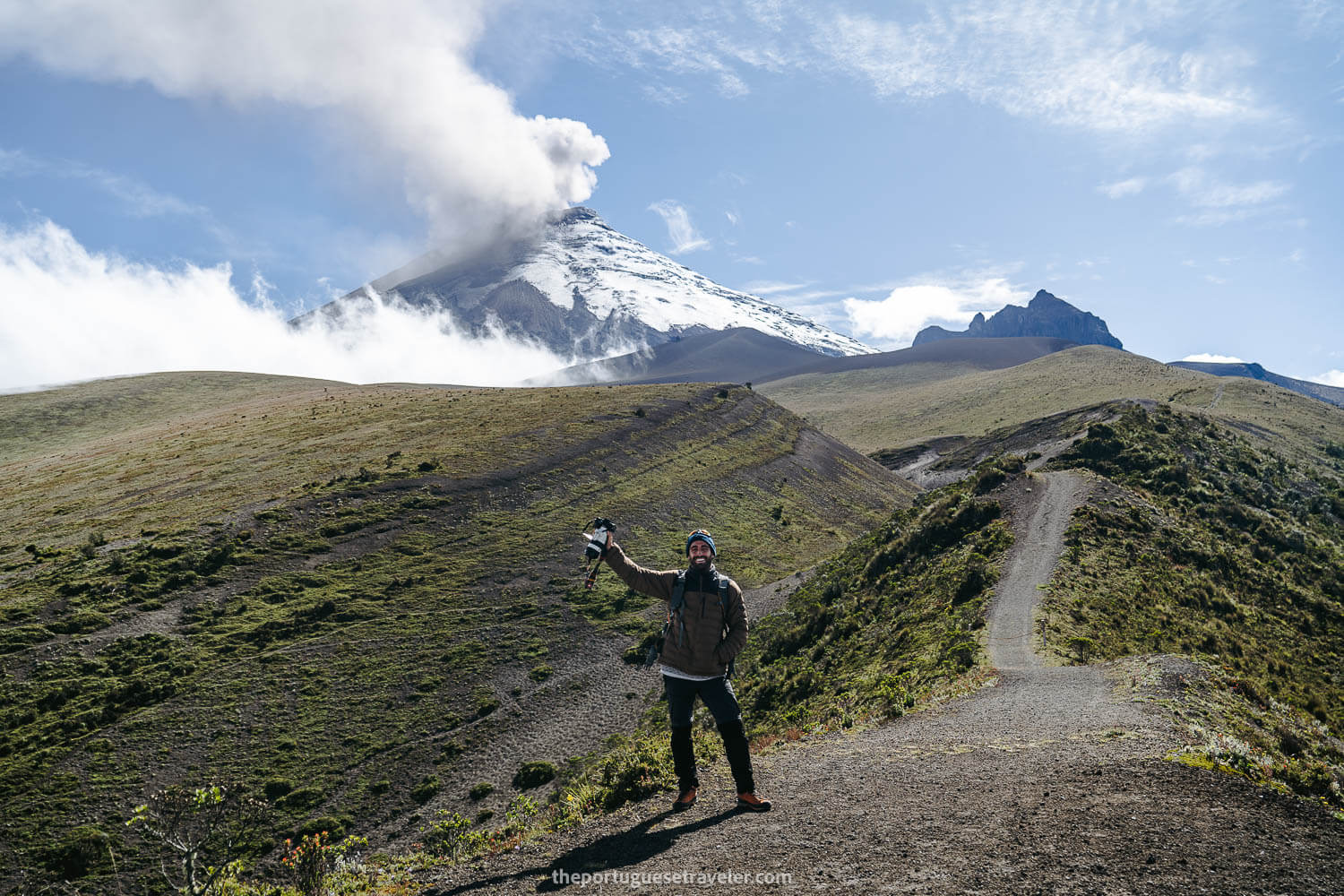
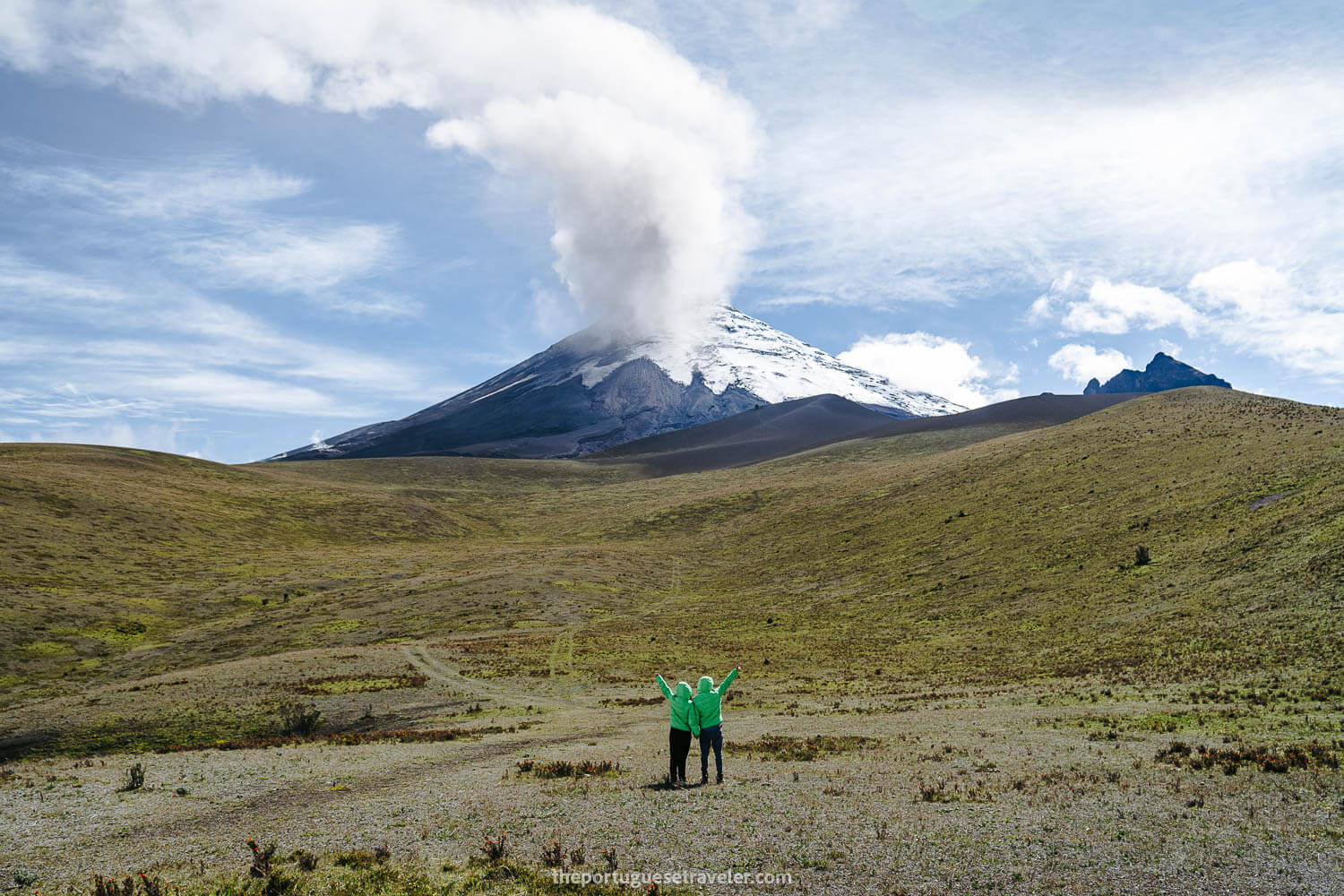
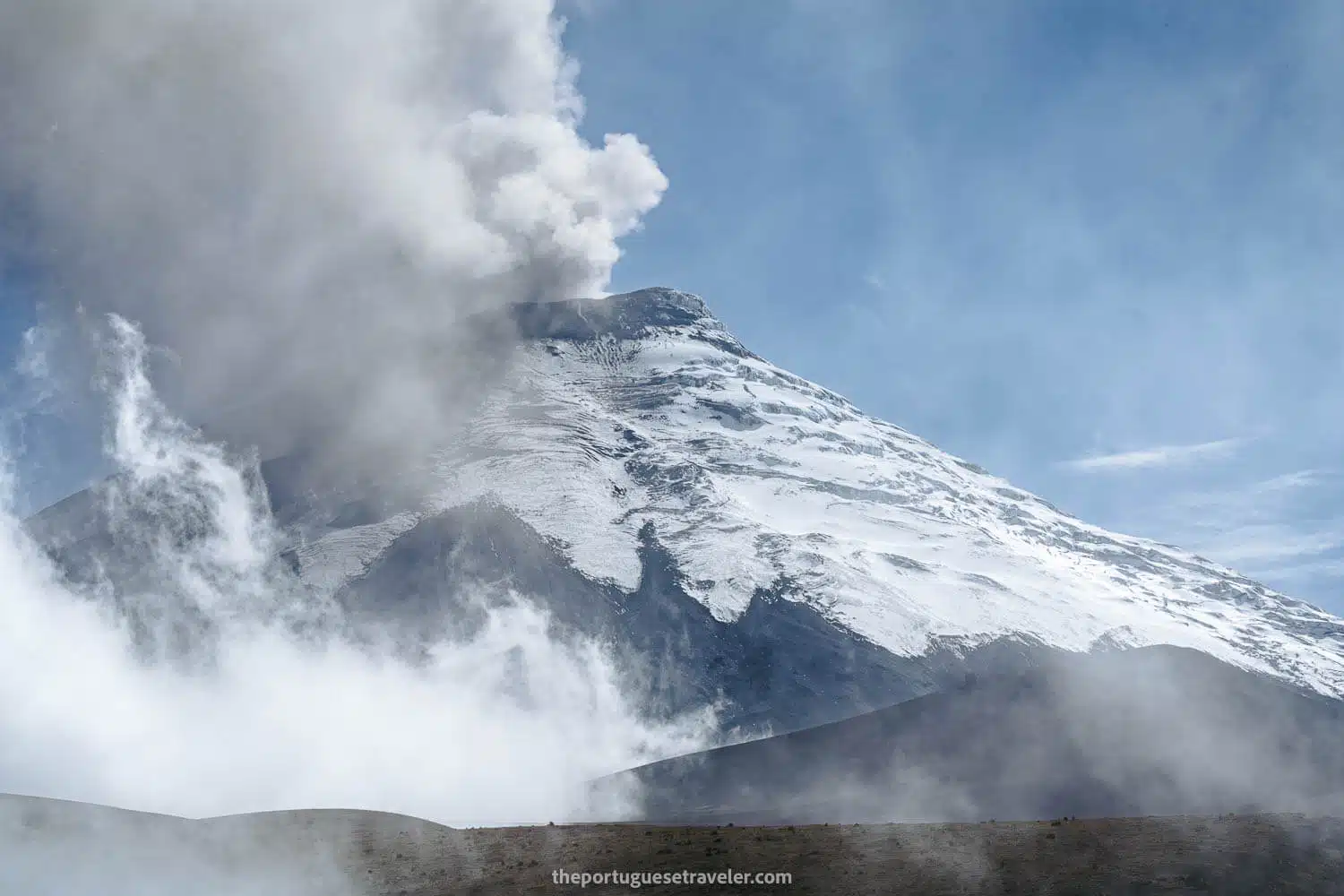
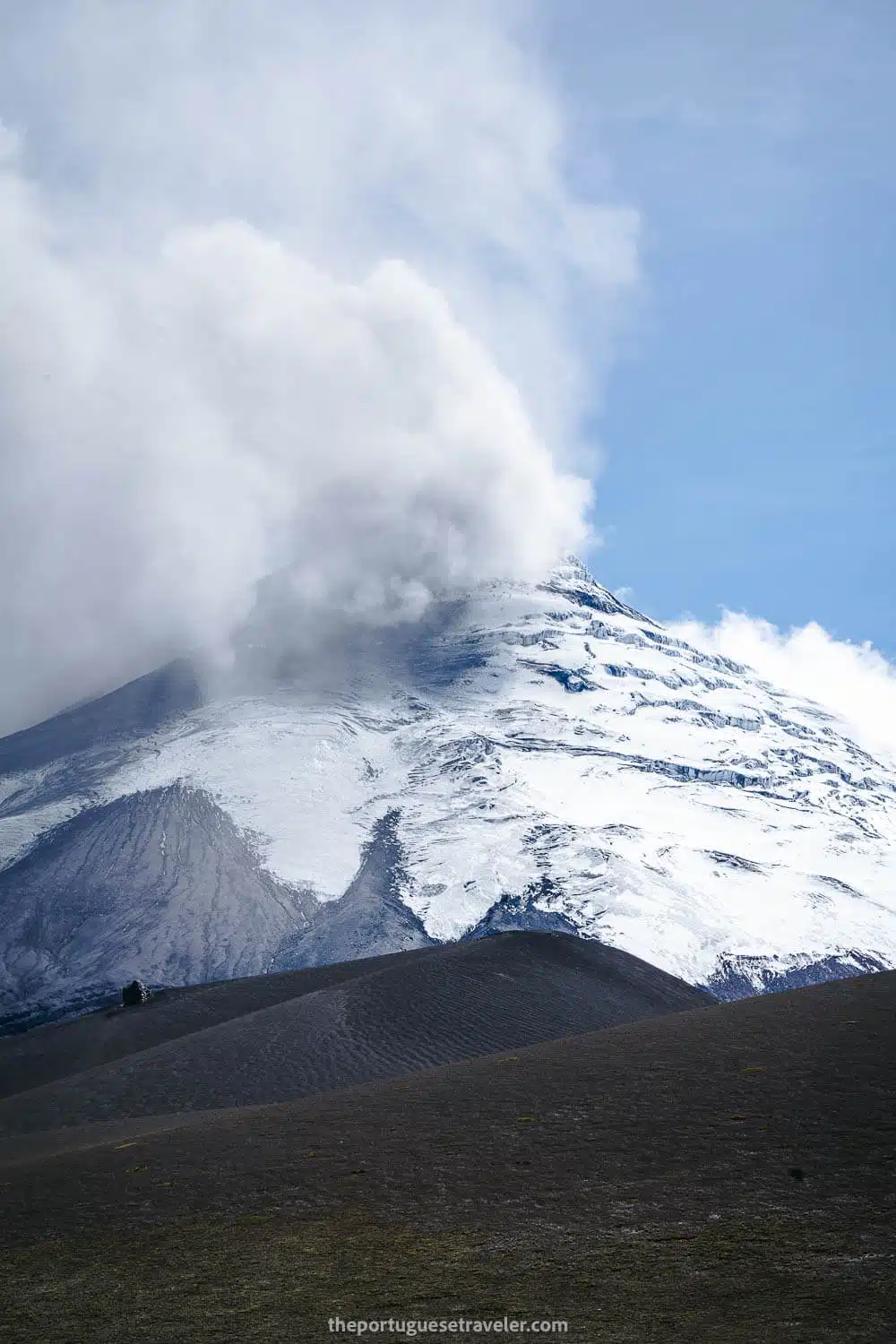
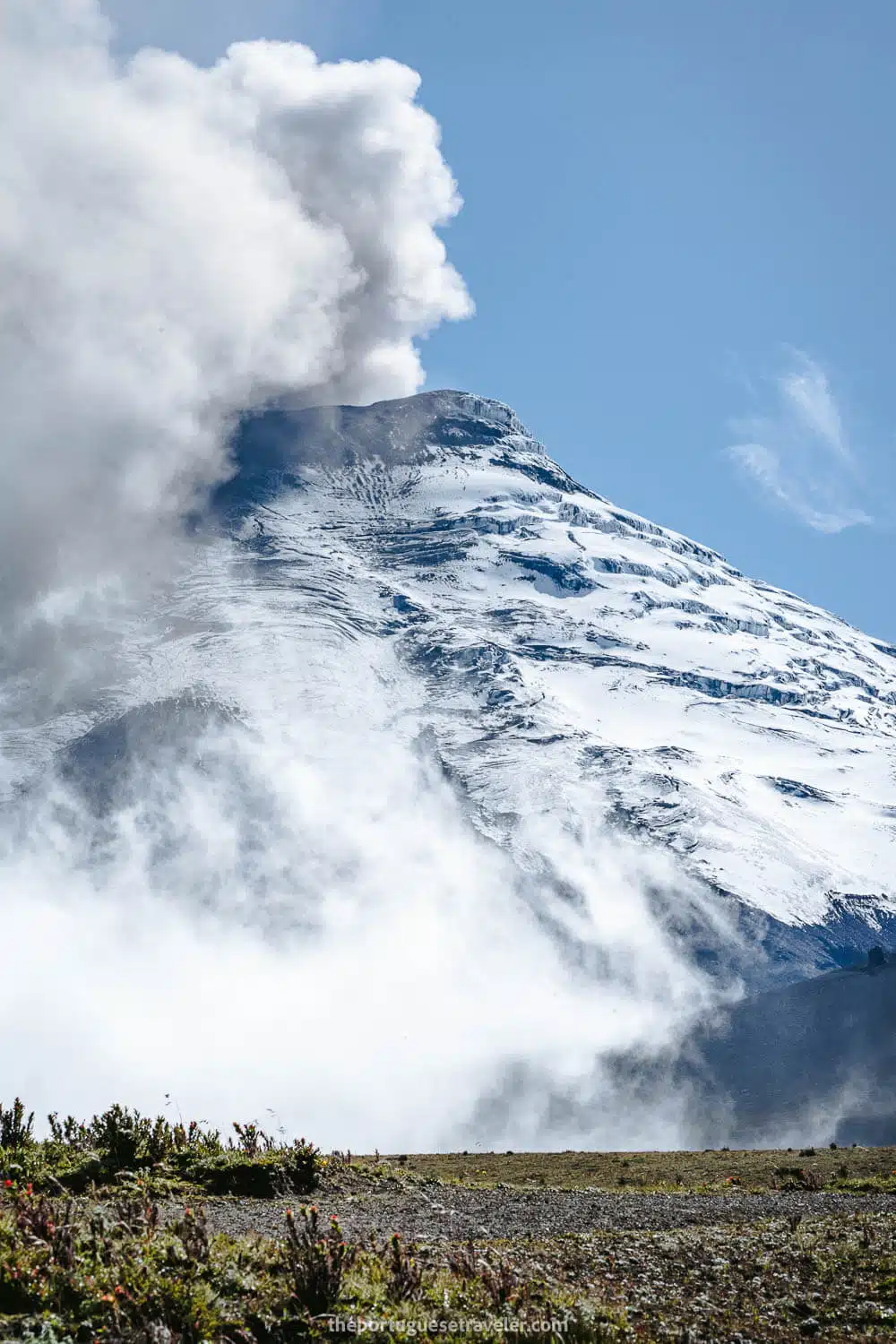
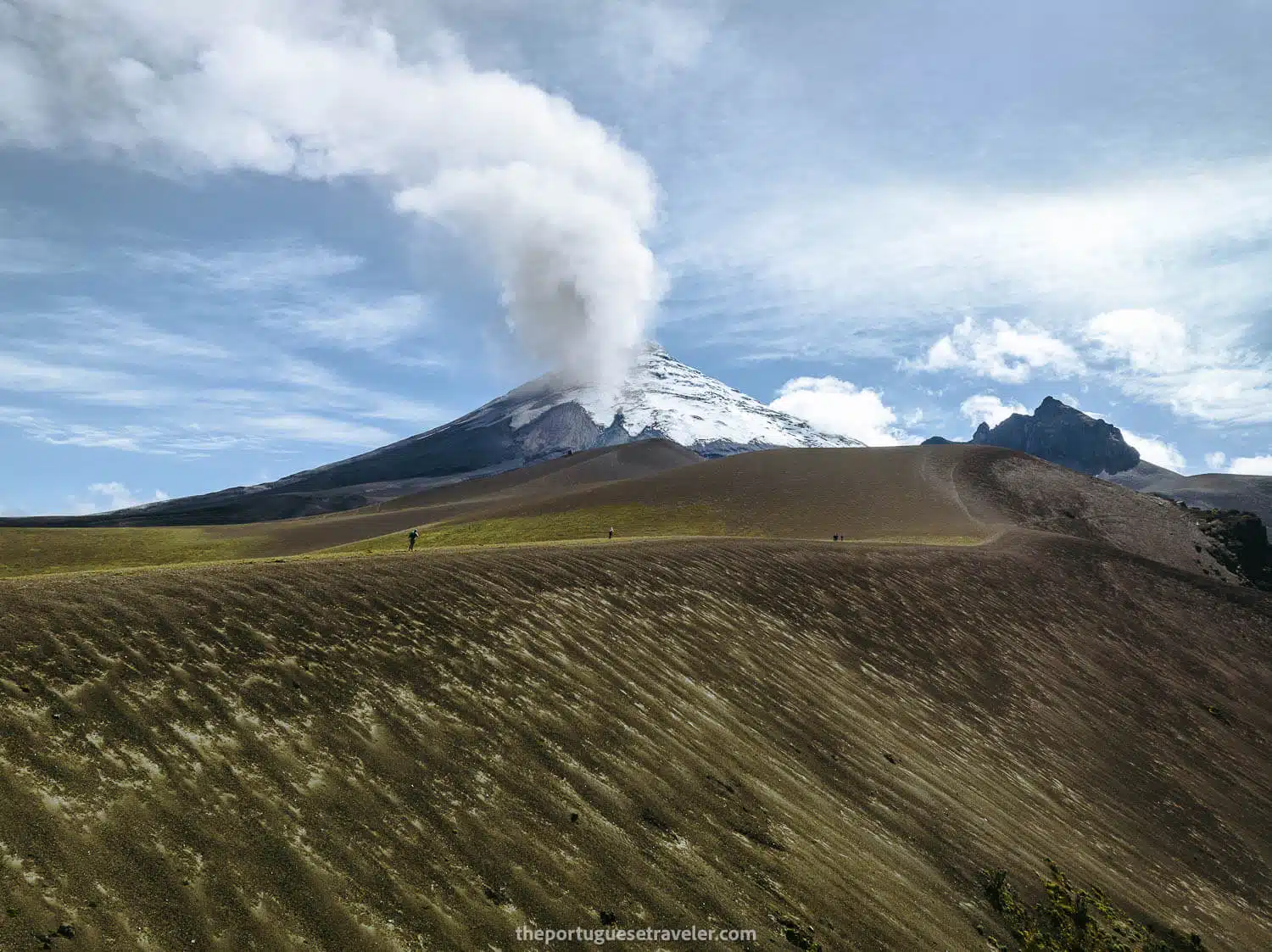

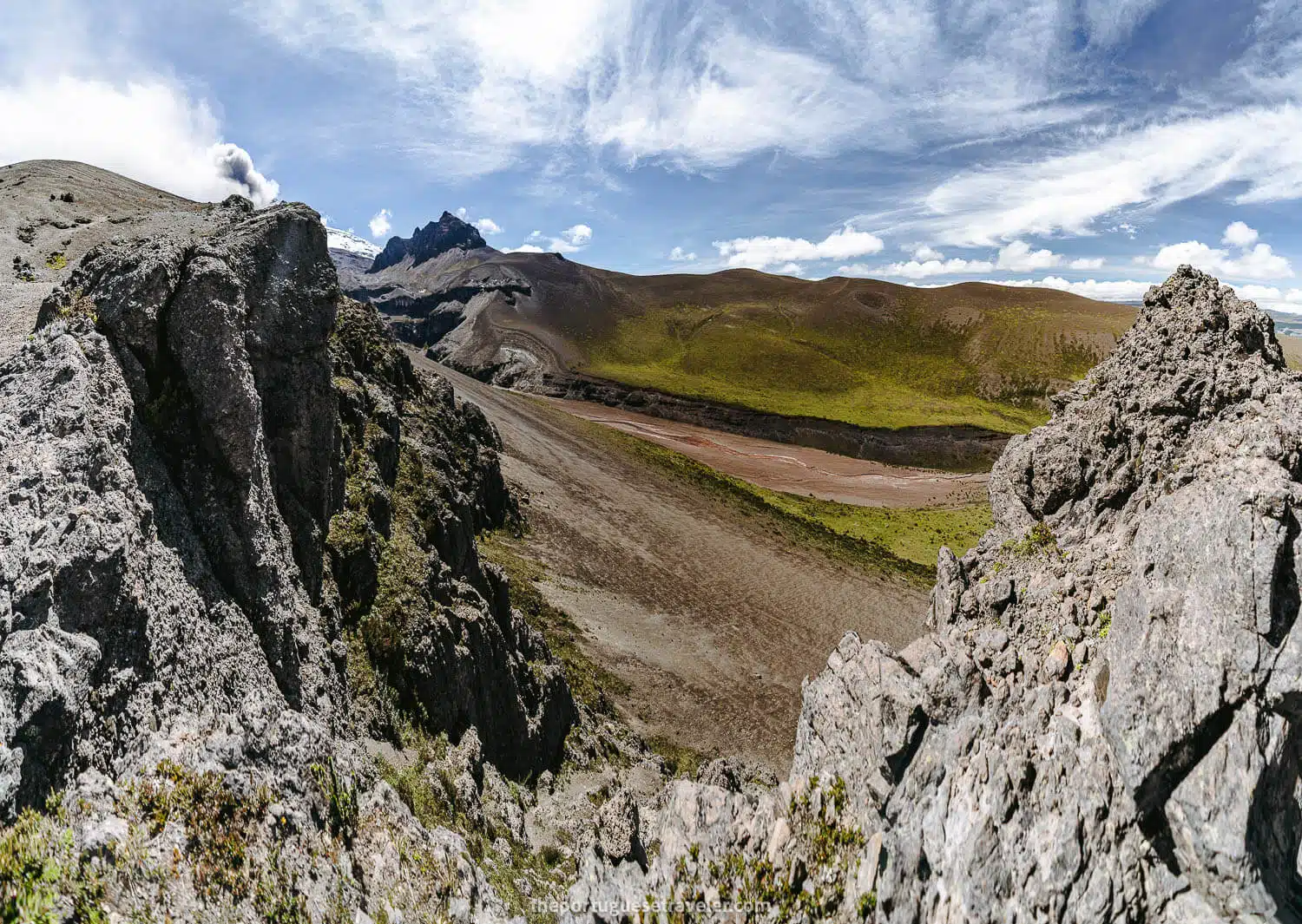
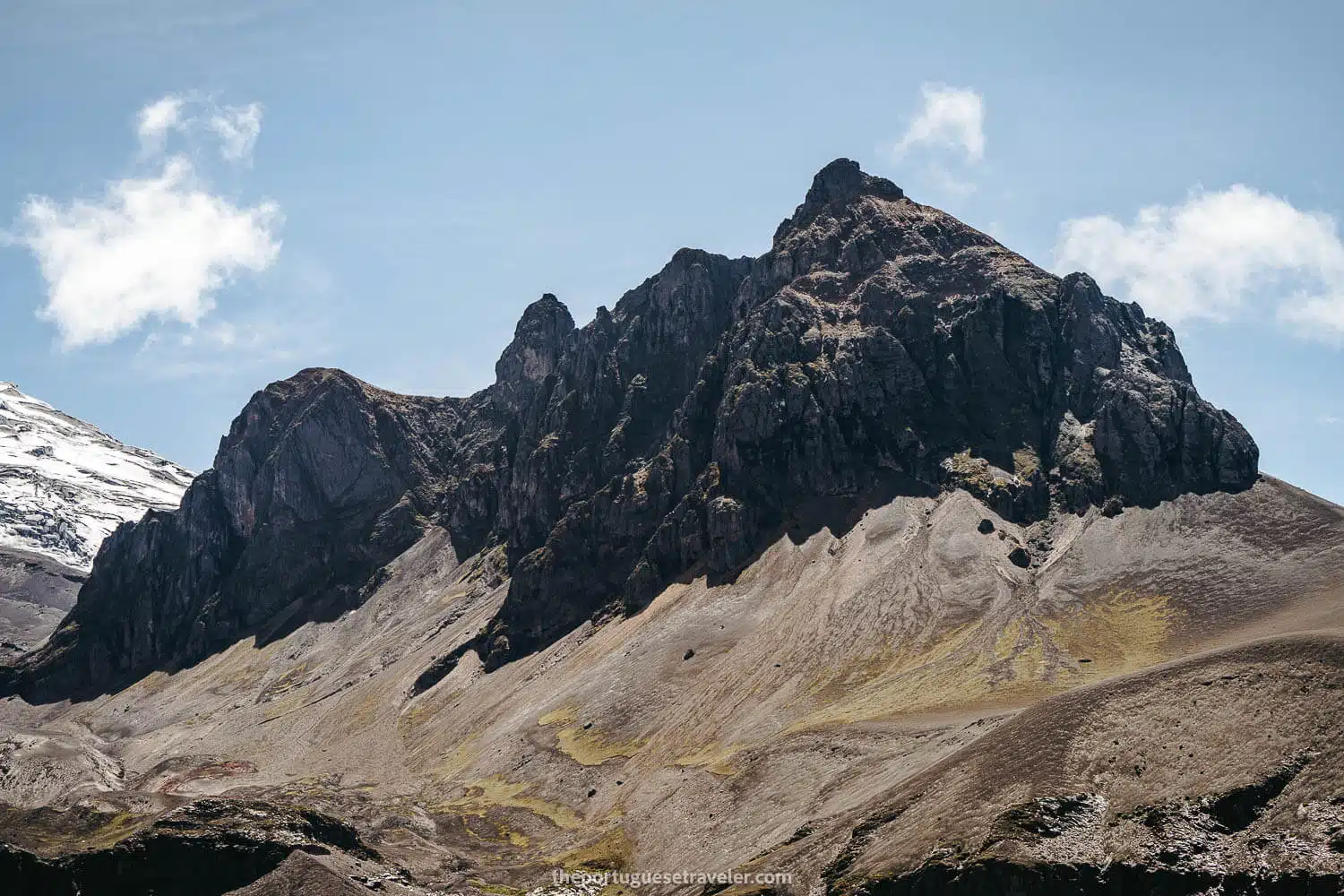
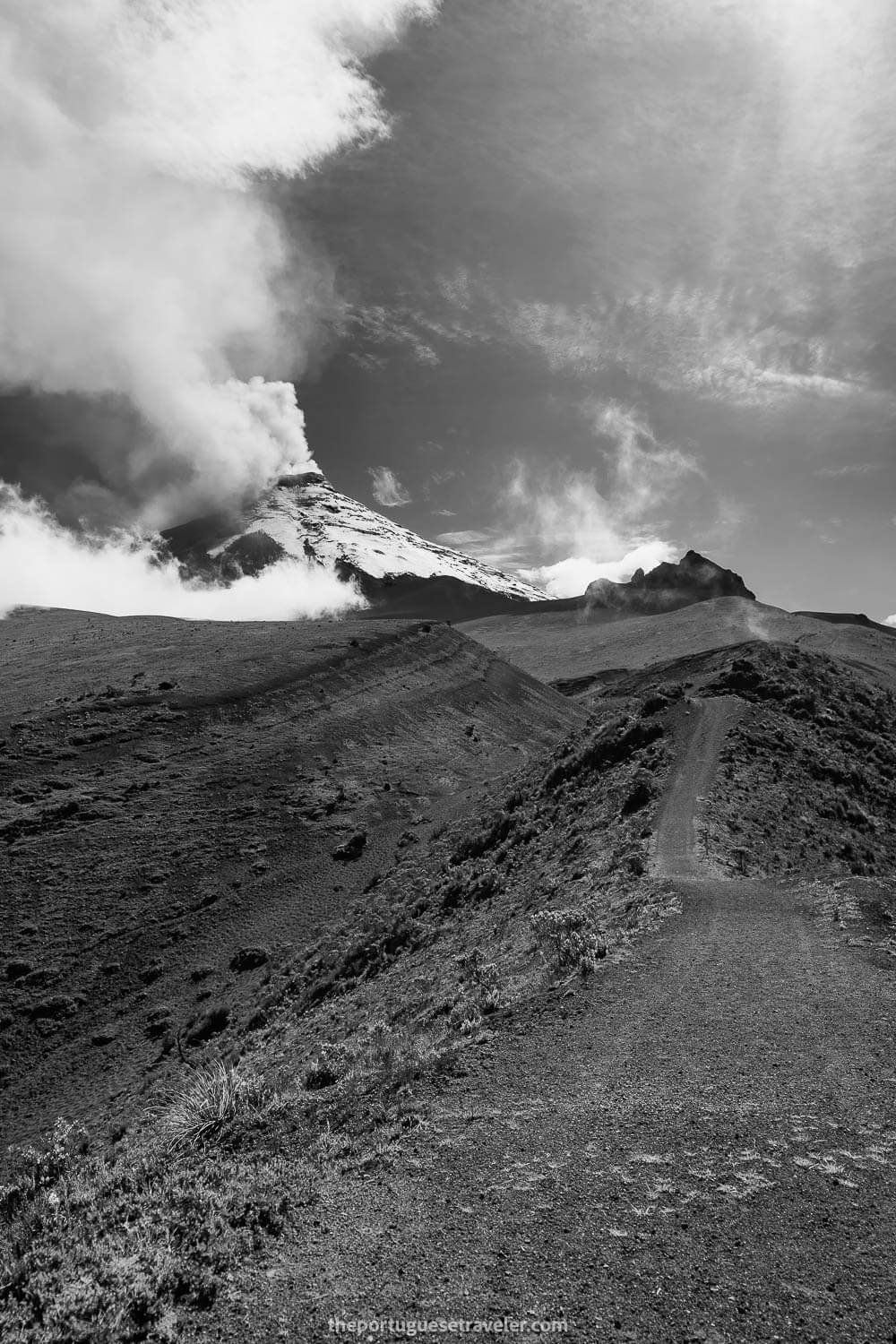
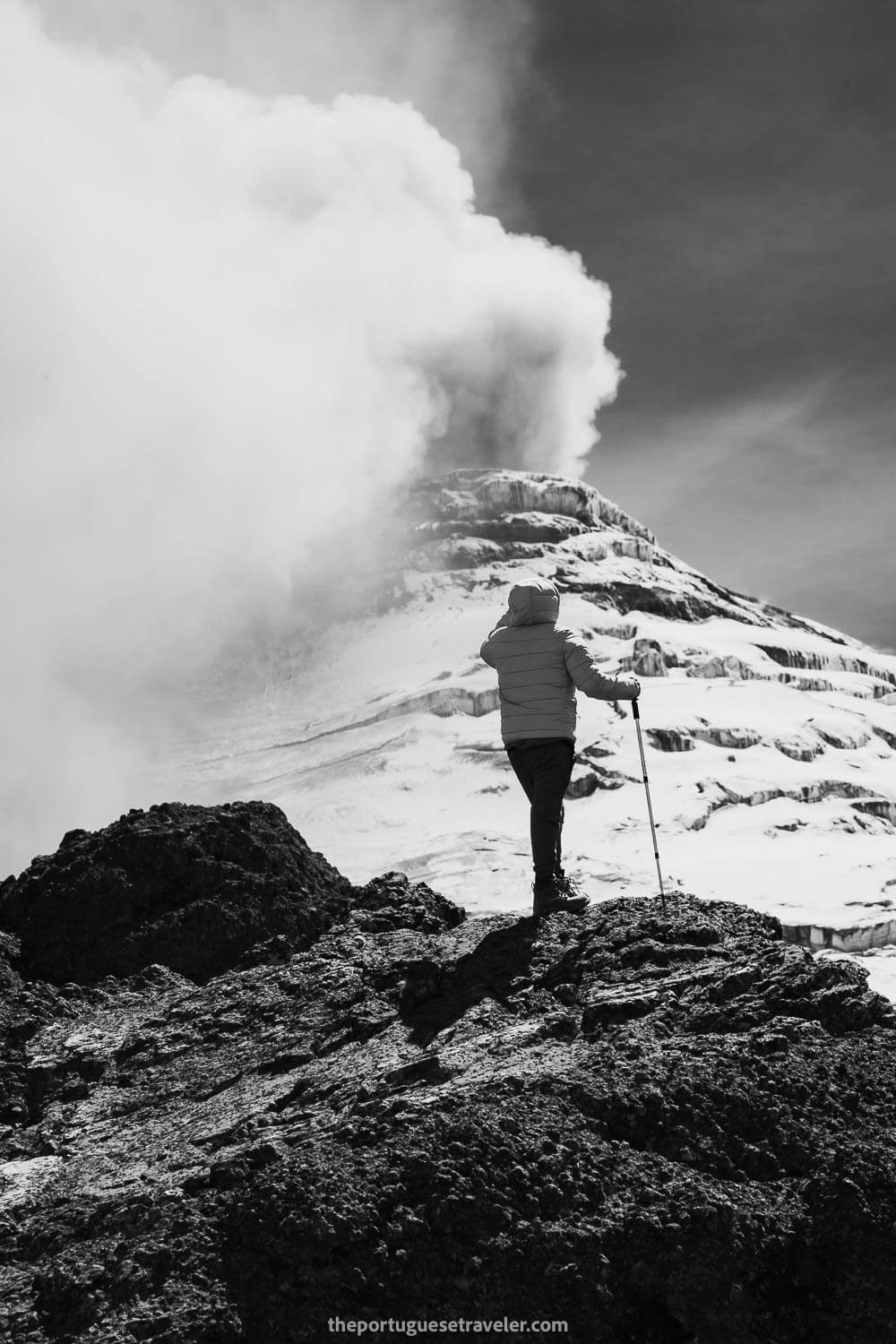
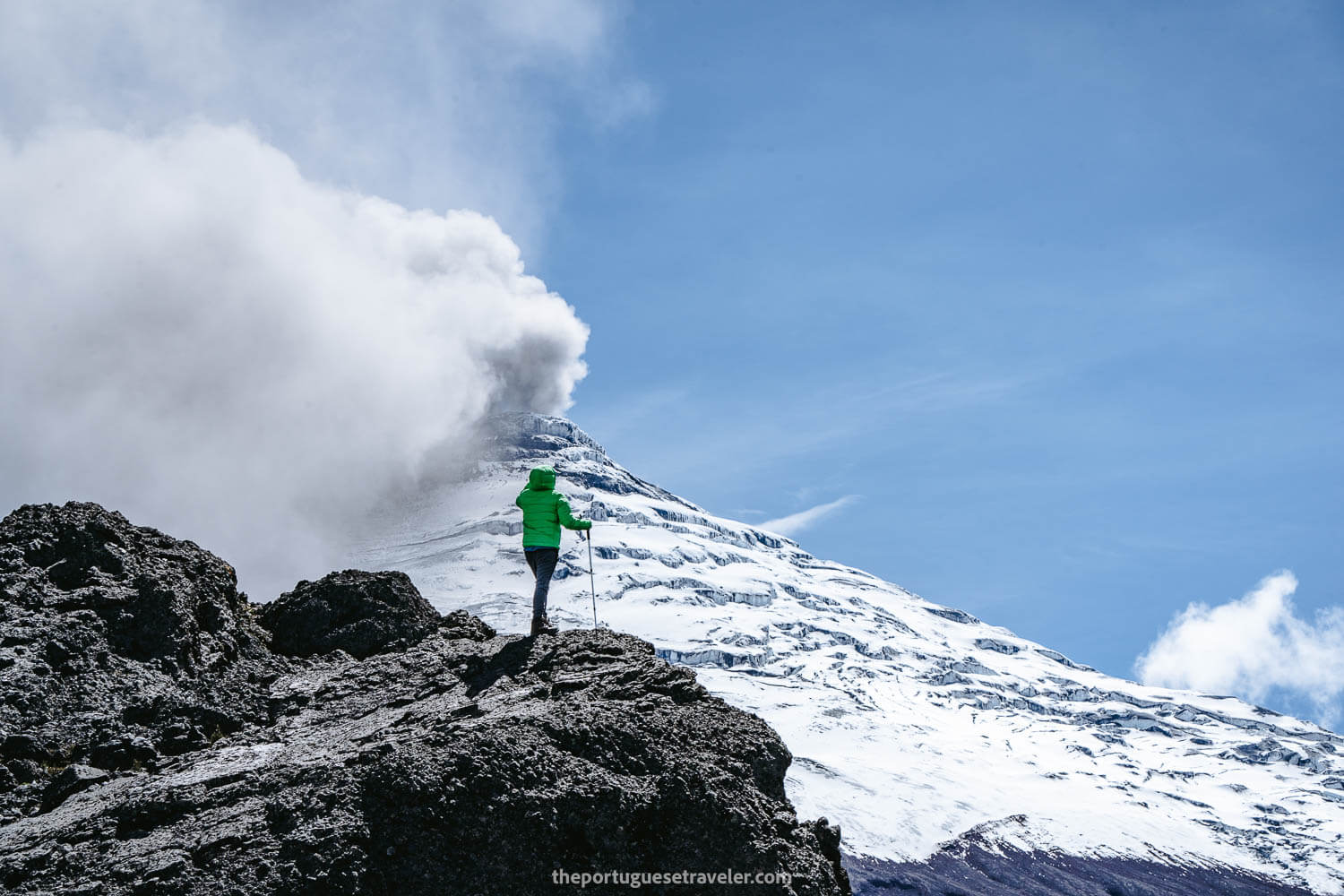
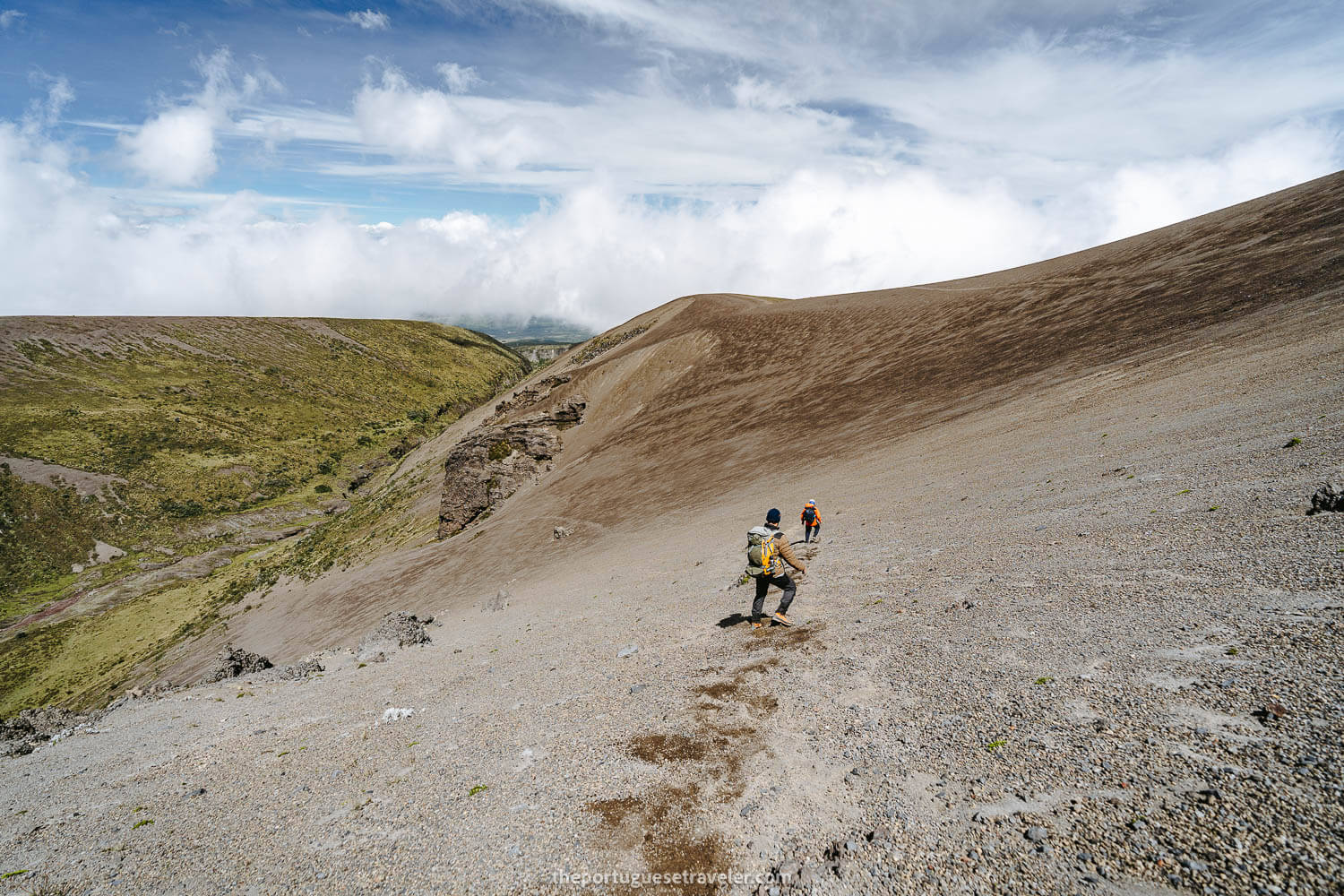
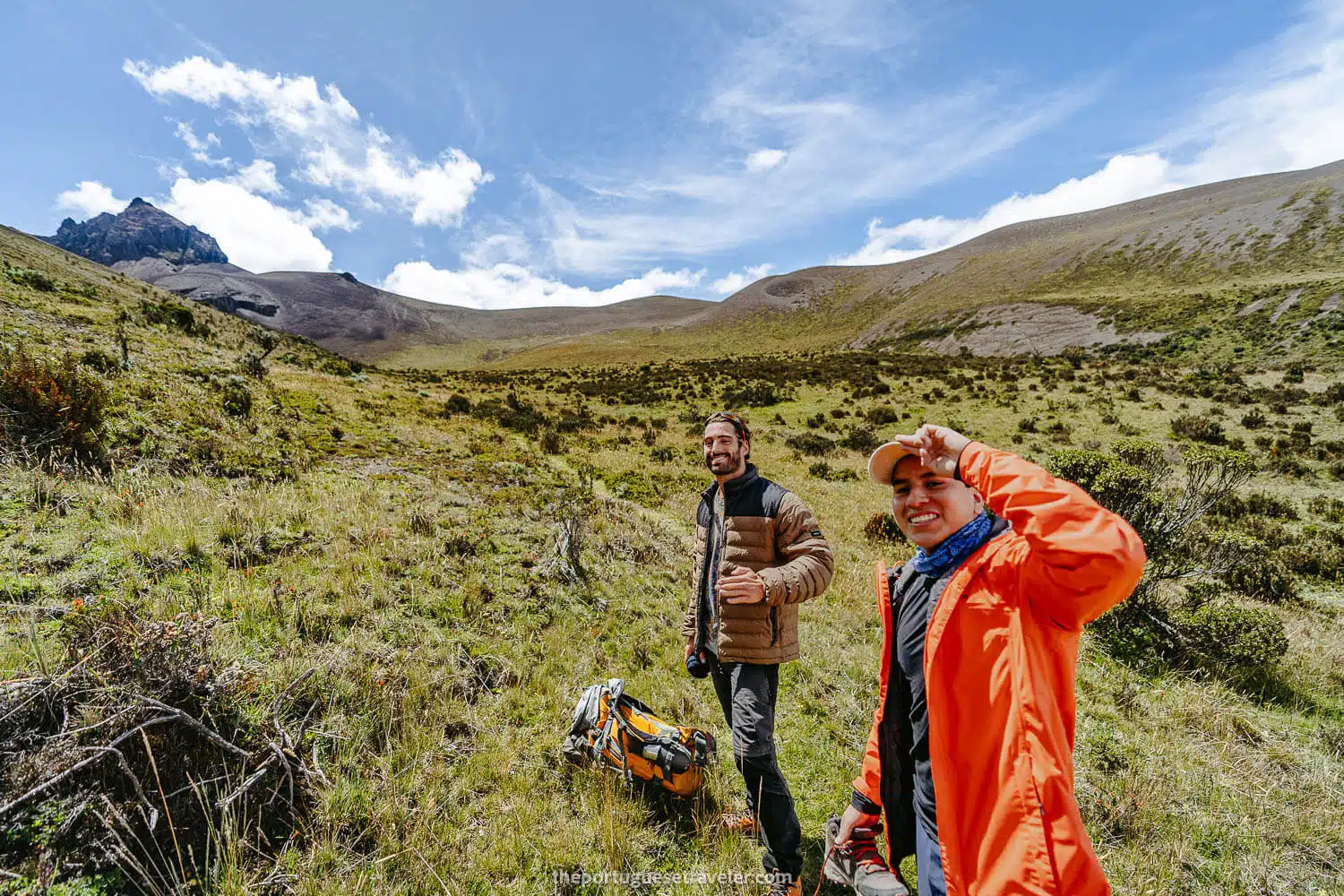
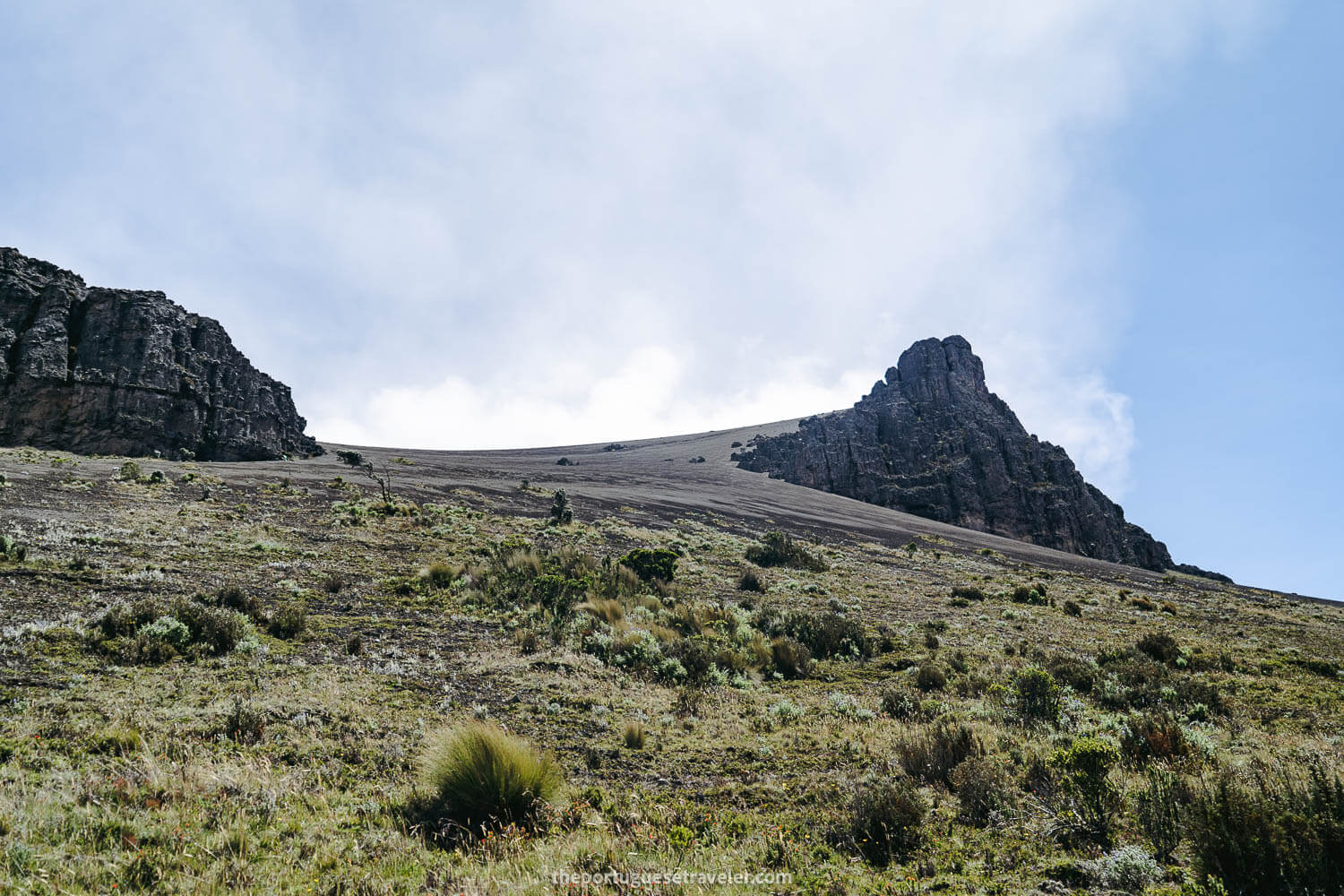
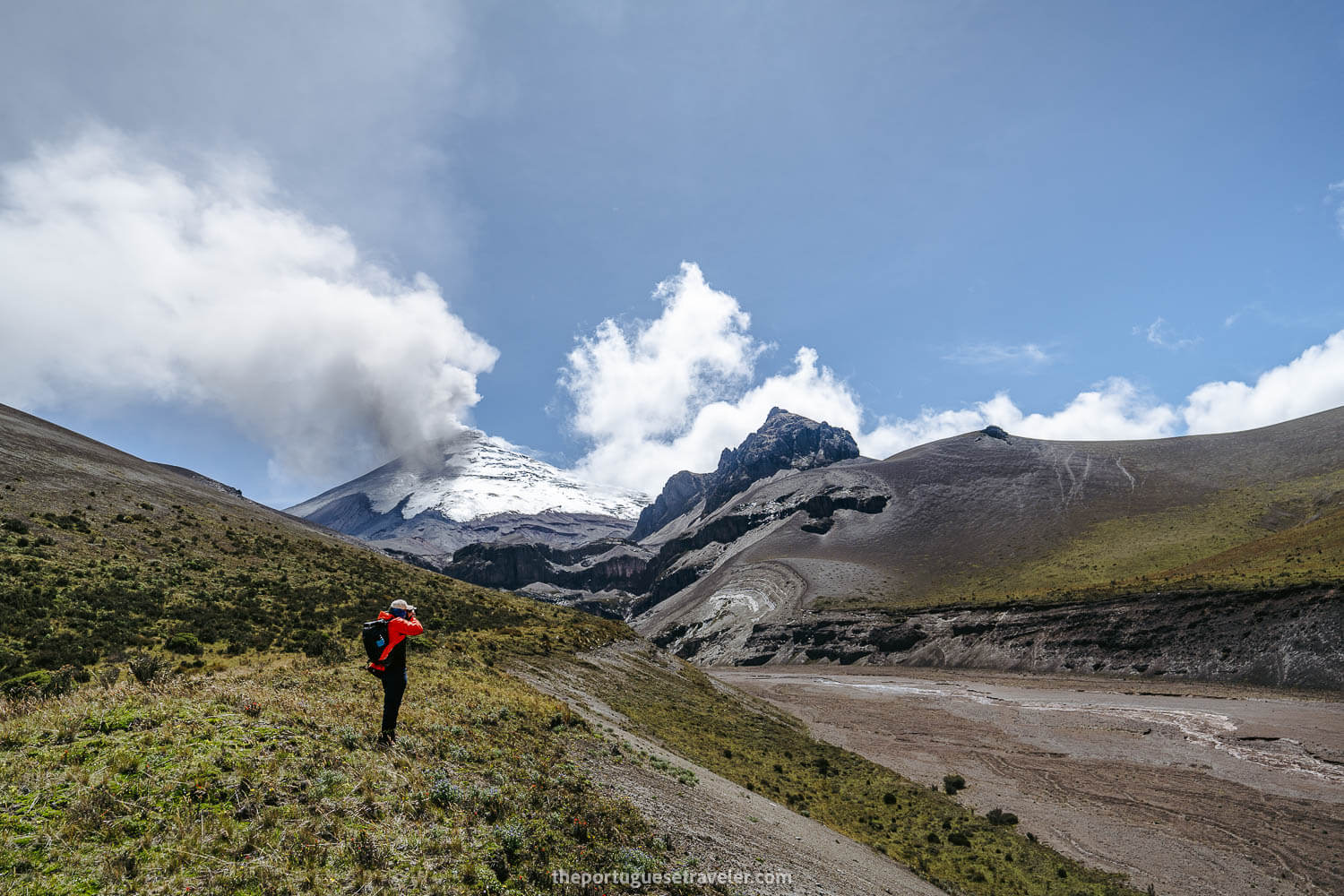
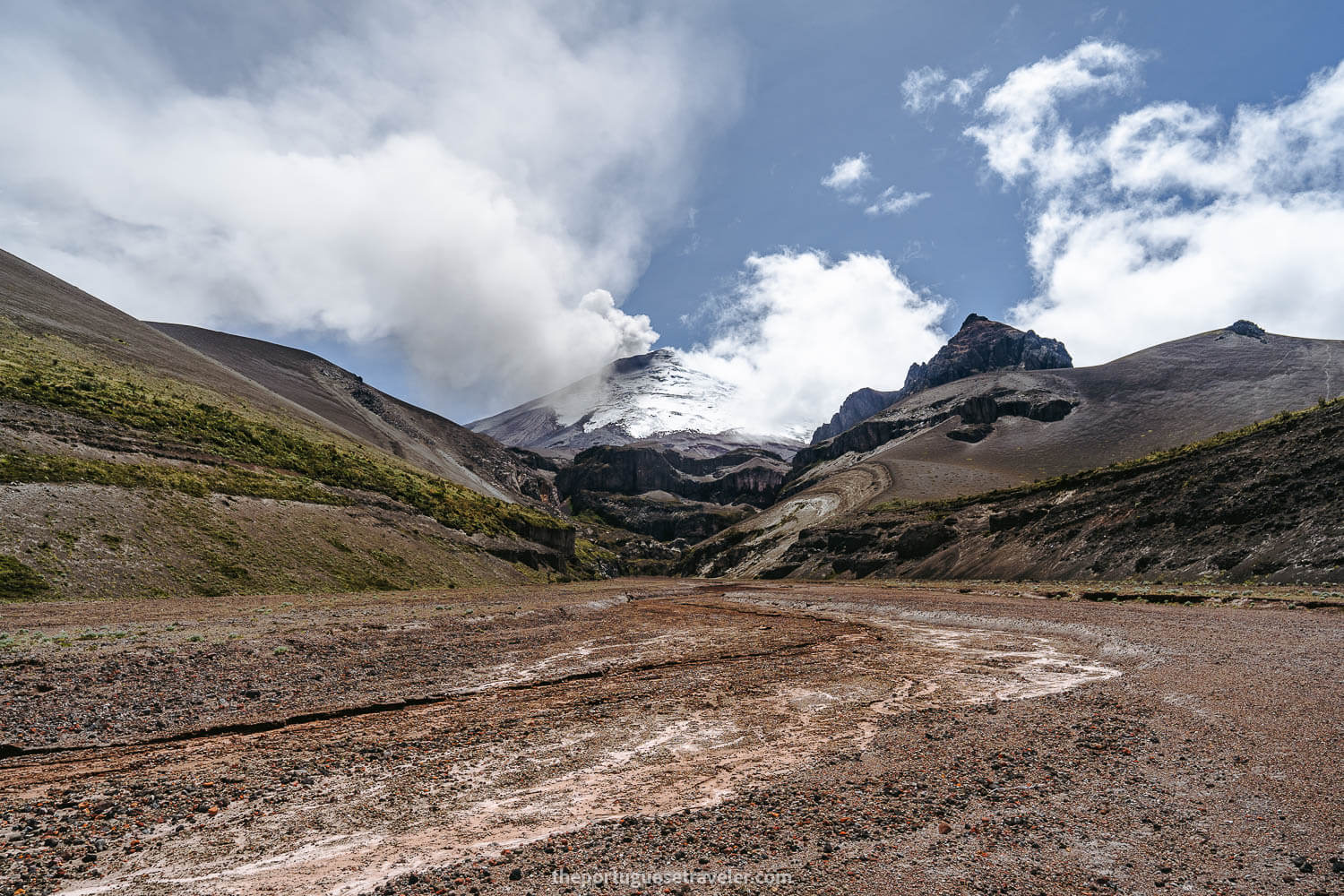
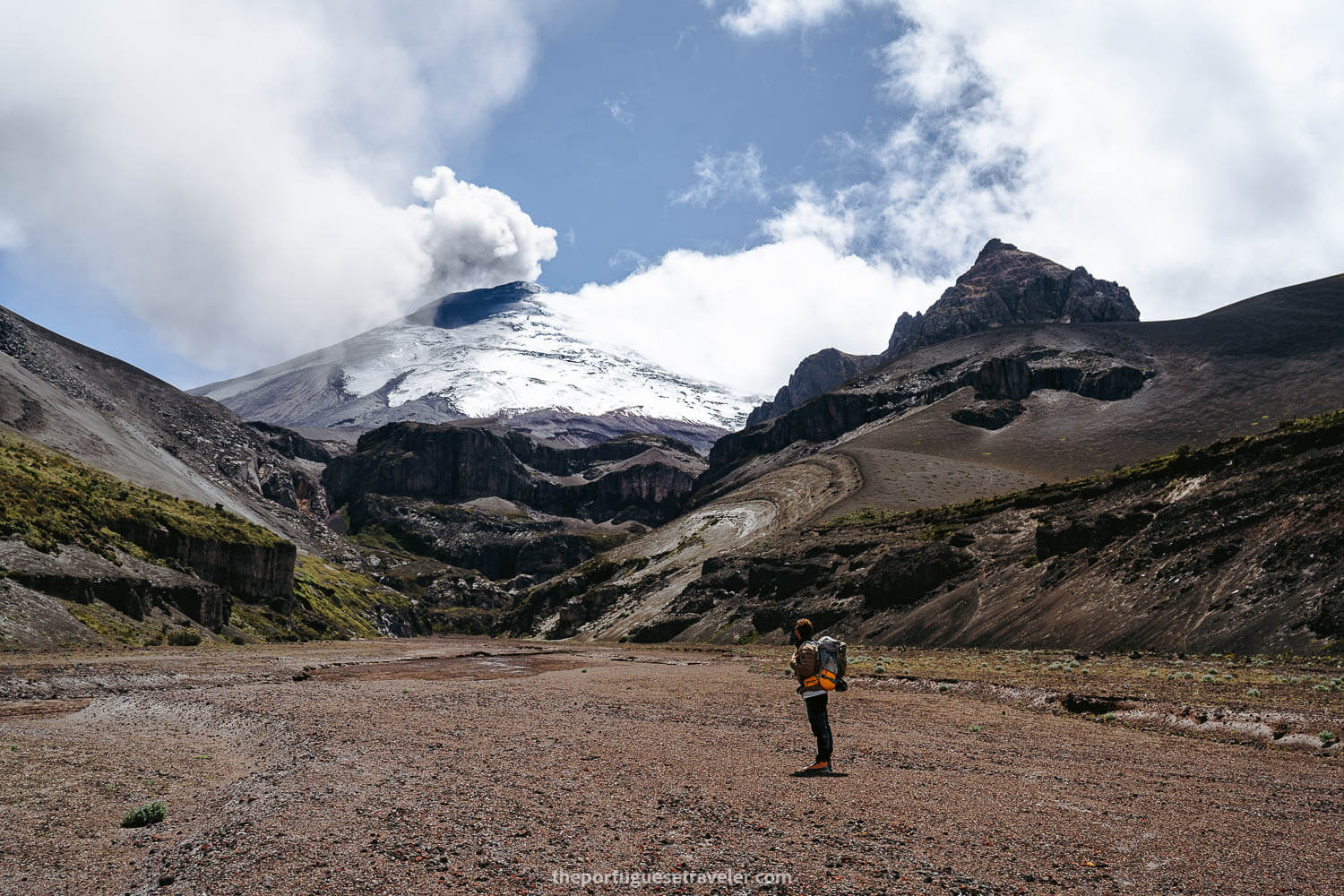
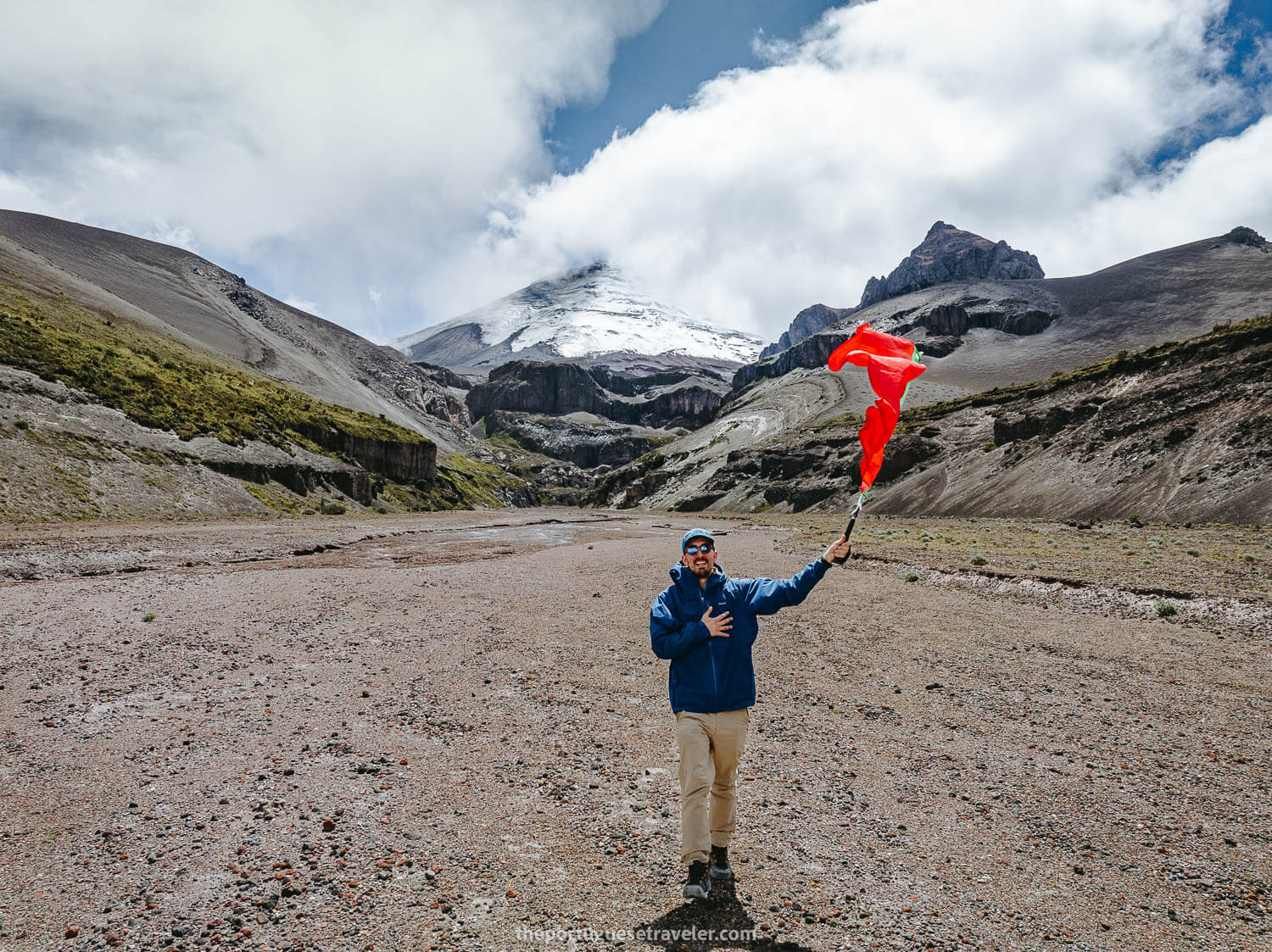
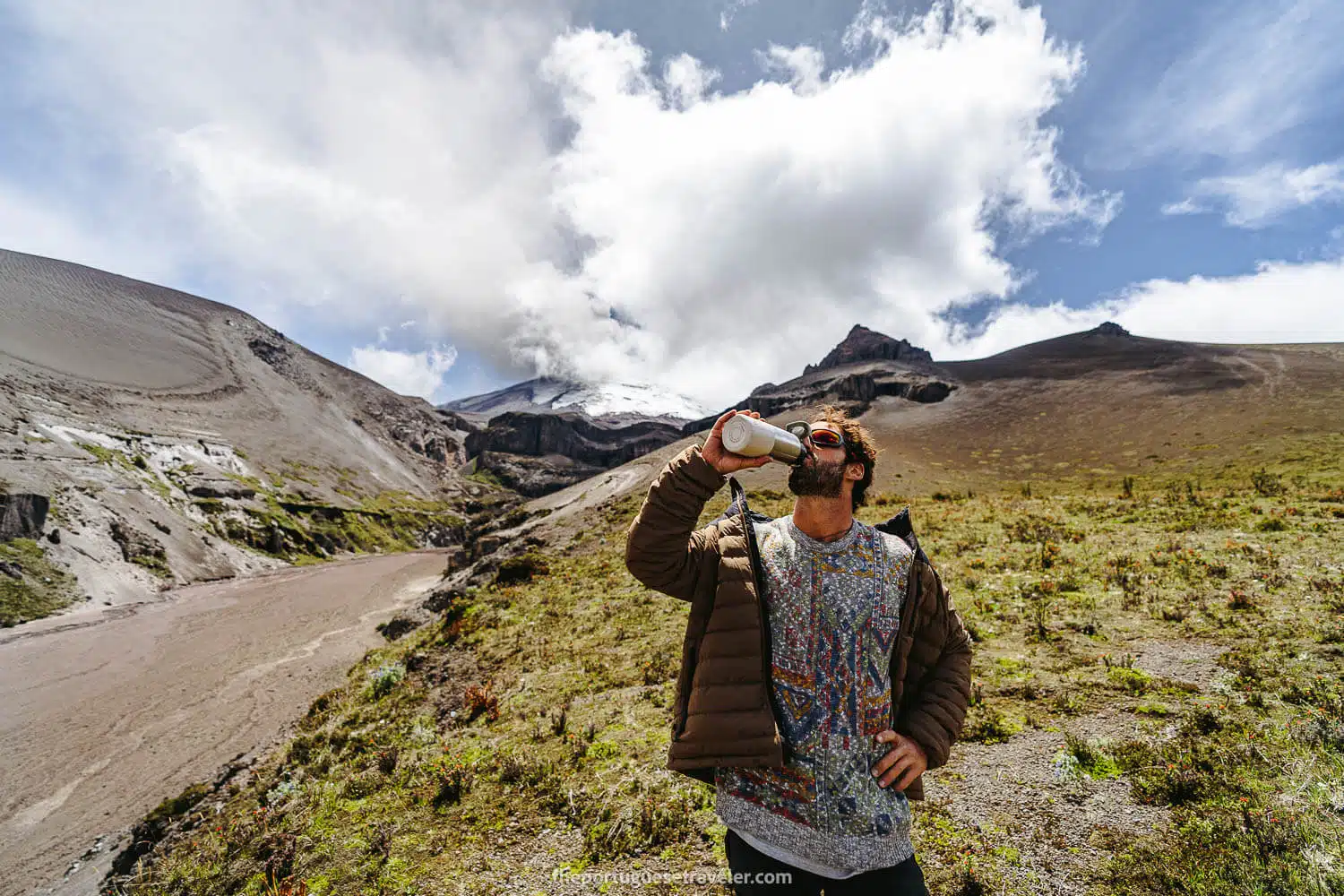
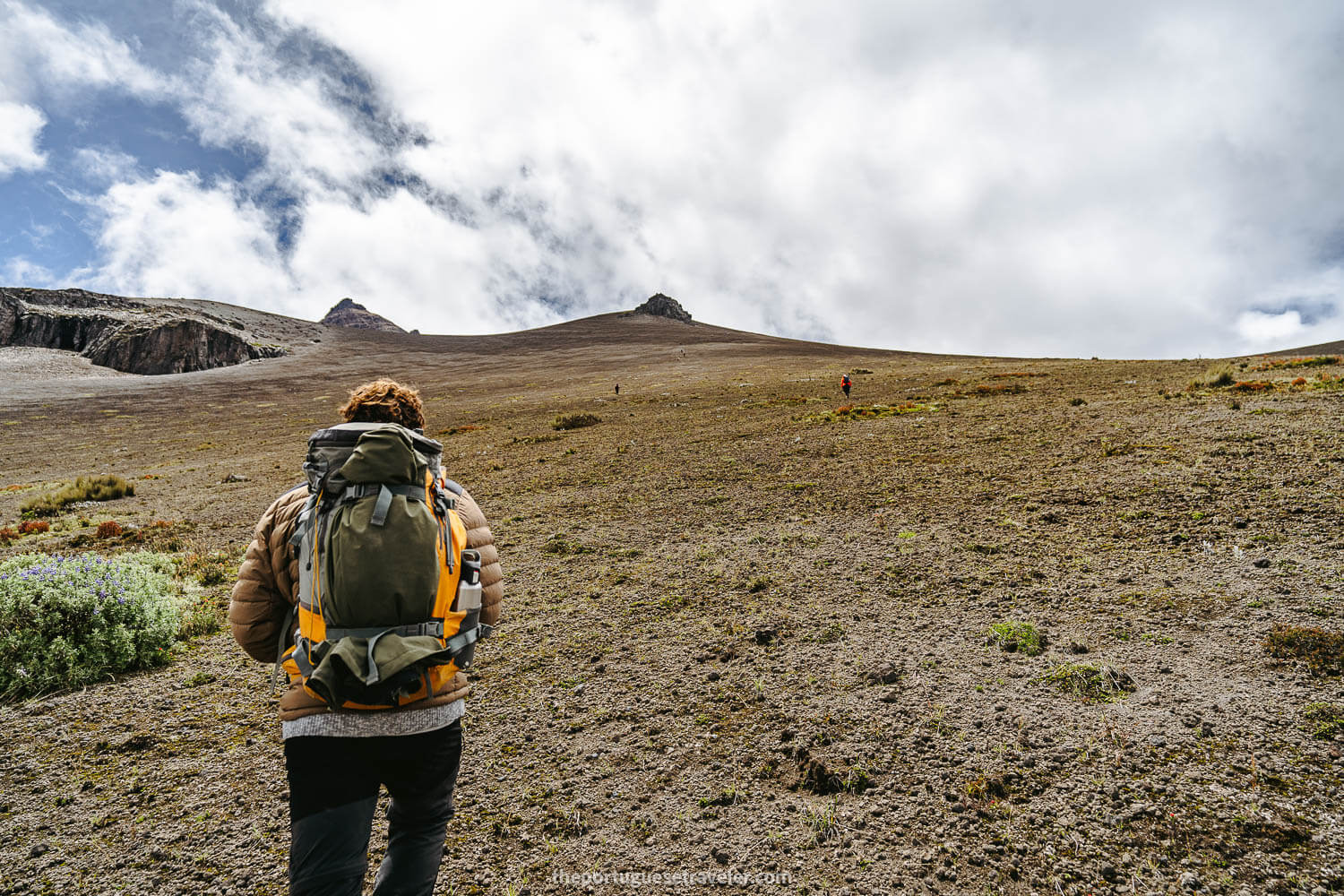
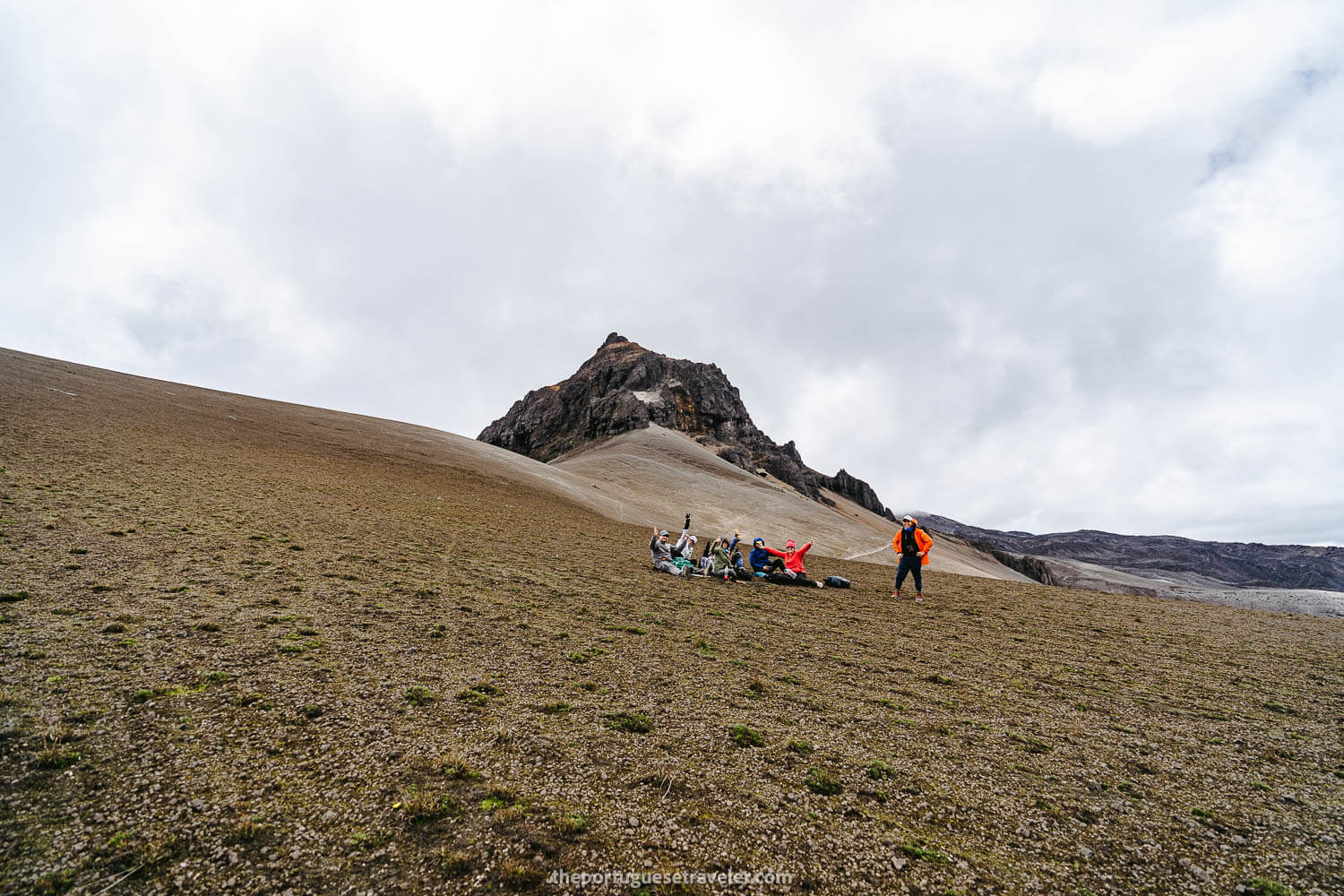
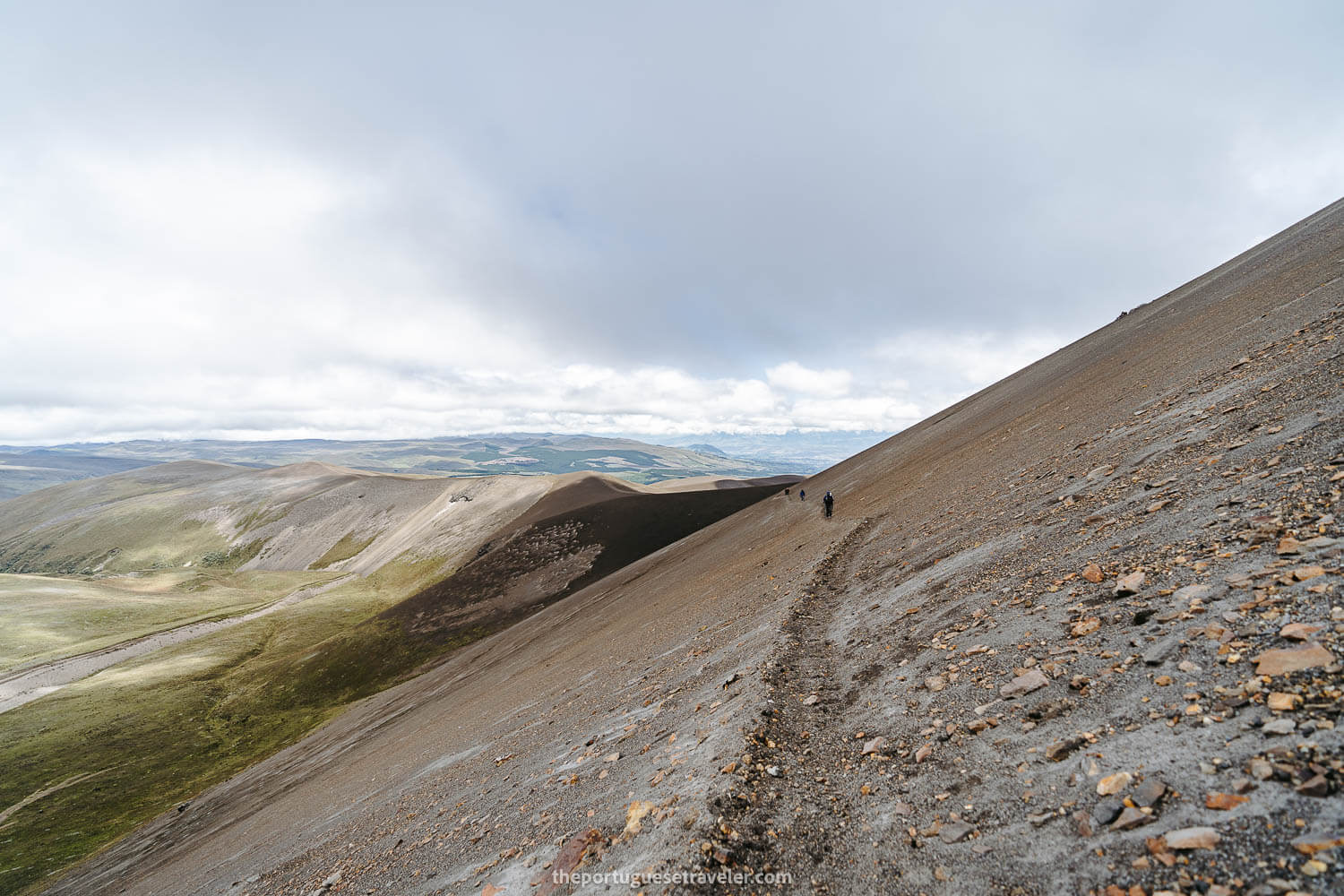
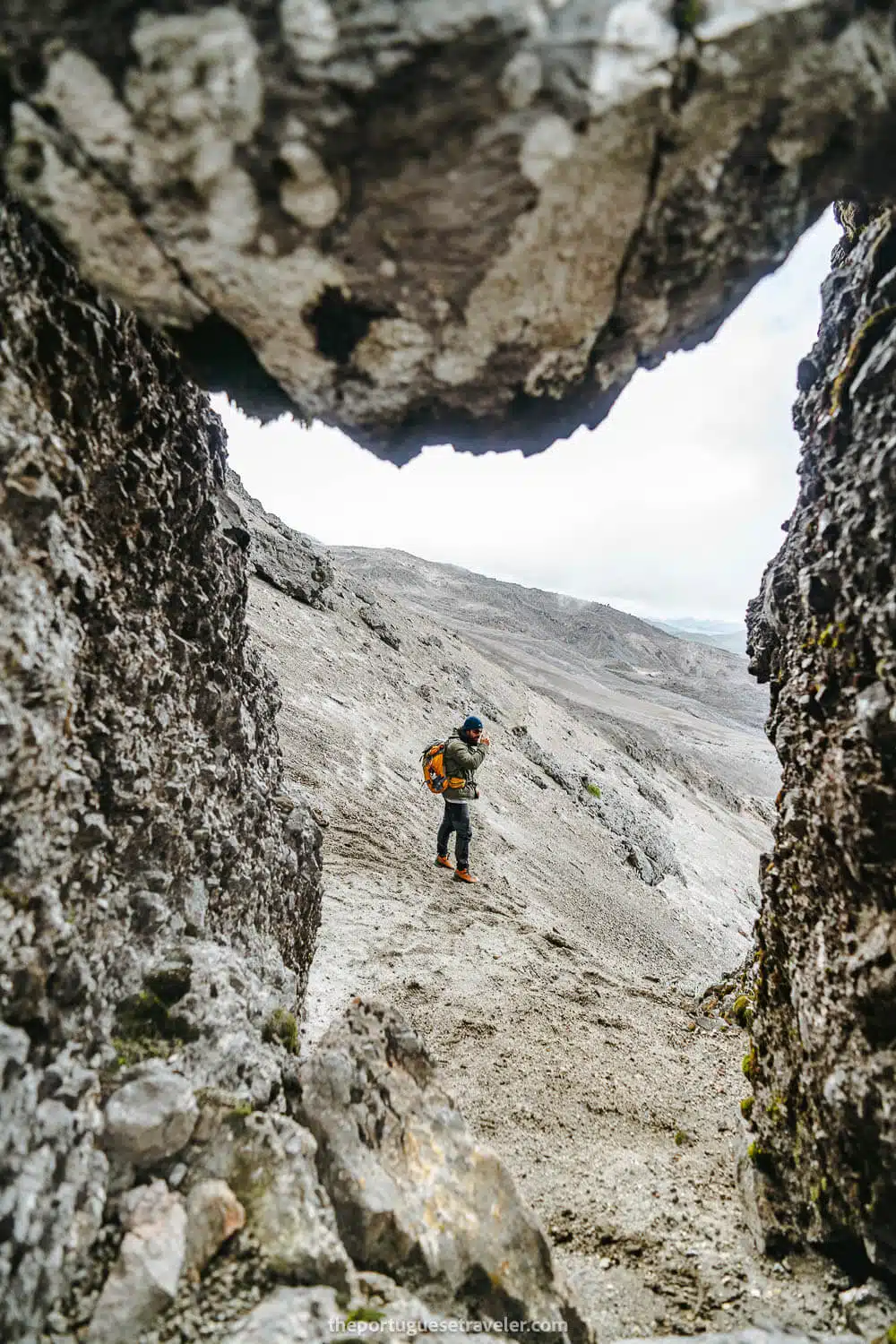
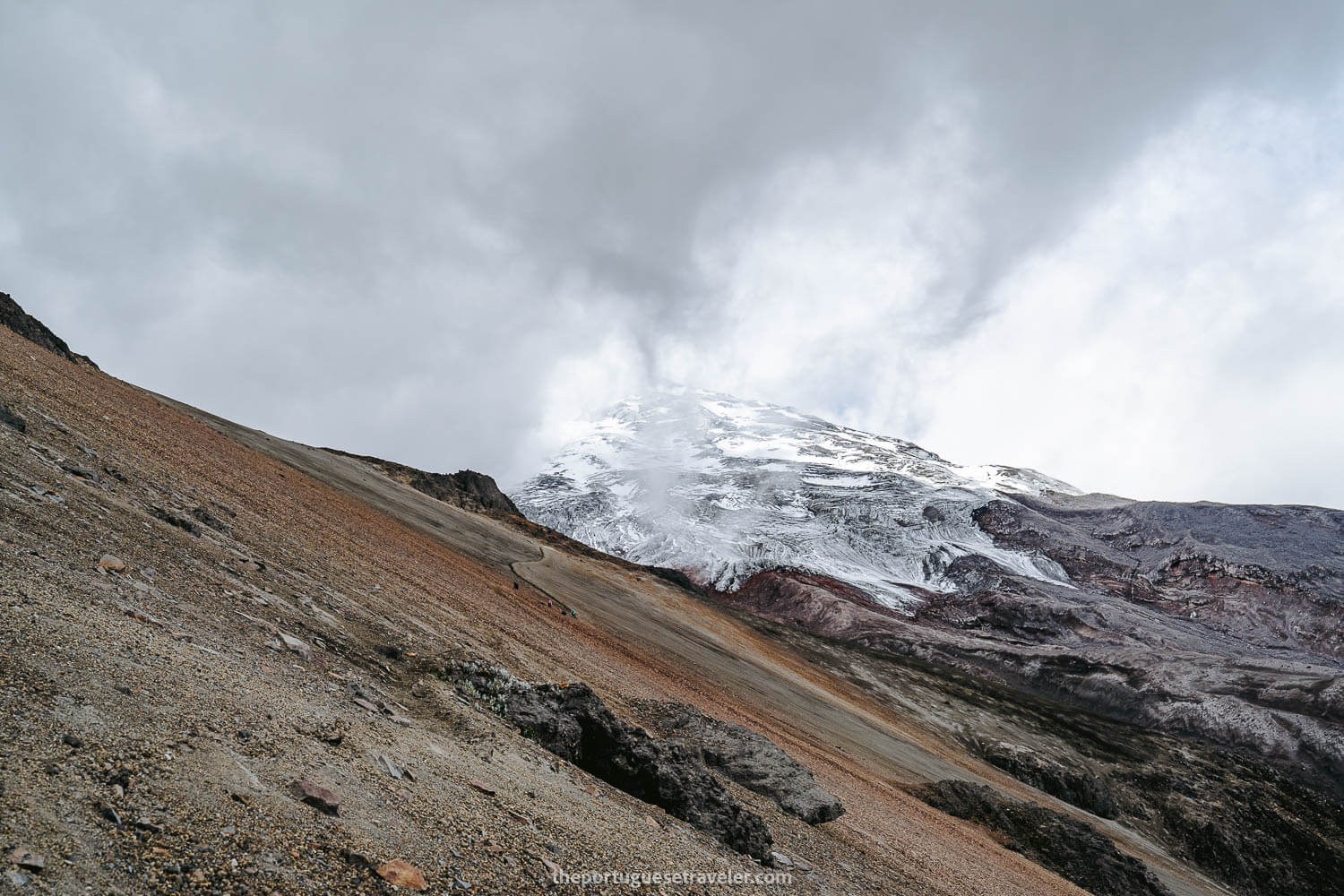
From the Canyon up until the Glaciers viewpoint
Climbing the other side of the lahar valley proved to be excruciating, as every two steps forward resulted in one step back due to the loose sand. It took us about an hour to conquer the ascent, draining our energy.
Finally, we triumphed over the dune-like slope, rejoicing in its absence. There, Miguel and I caught up with another group that had been resting and happened to be the group we had previously seen ahead of us.
After quenching our thirst, we resumed our hike towards the window, eagerly anticipating the moment to cross Morurco’s 180-degree point and witness Cotopaxi’s glaciers once again.
Passing through the Morurco’s window, we encountered a desolate landscape on the other side, which fascinated me since I had never seen any photos or reports depicting the south face of Cotopaxi Volcano. It featured numerous valleys and an immense glacier descending from its summit.
It was intriguing to observe that the glacier appeared white until a certain point, where it turned grey. This discoloration resulted from the ashes expelled by the erupting volcano being carried by the wind to one specific side of Cotopaxi, rather than covering the entire summit.
Later that day, upon reaching Quito, we learned that the eruption had released an unusually large amount of ashes, explaining the awe-inspiring nature of the photos we had taken. It was far from a regular occurrence.
After reaching the midpoint of the 360-degree hike, we enjoyed our lunch break, flew the drone once again to capture remarkable shots of Morurco and Cotopaxi’s glaciers, and commenced our journey back to the refuge.
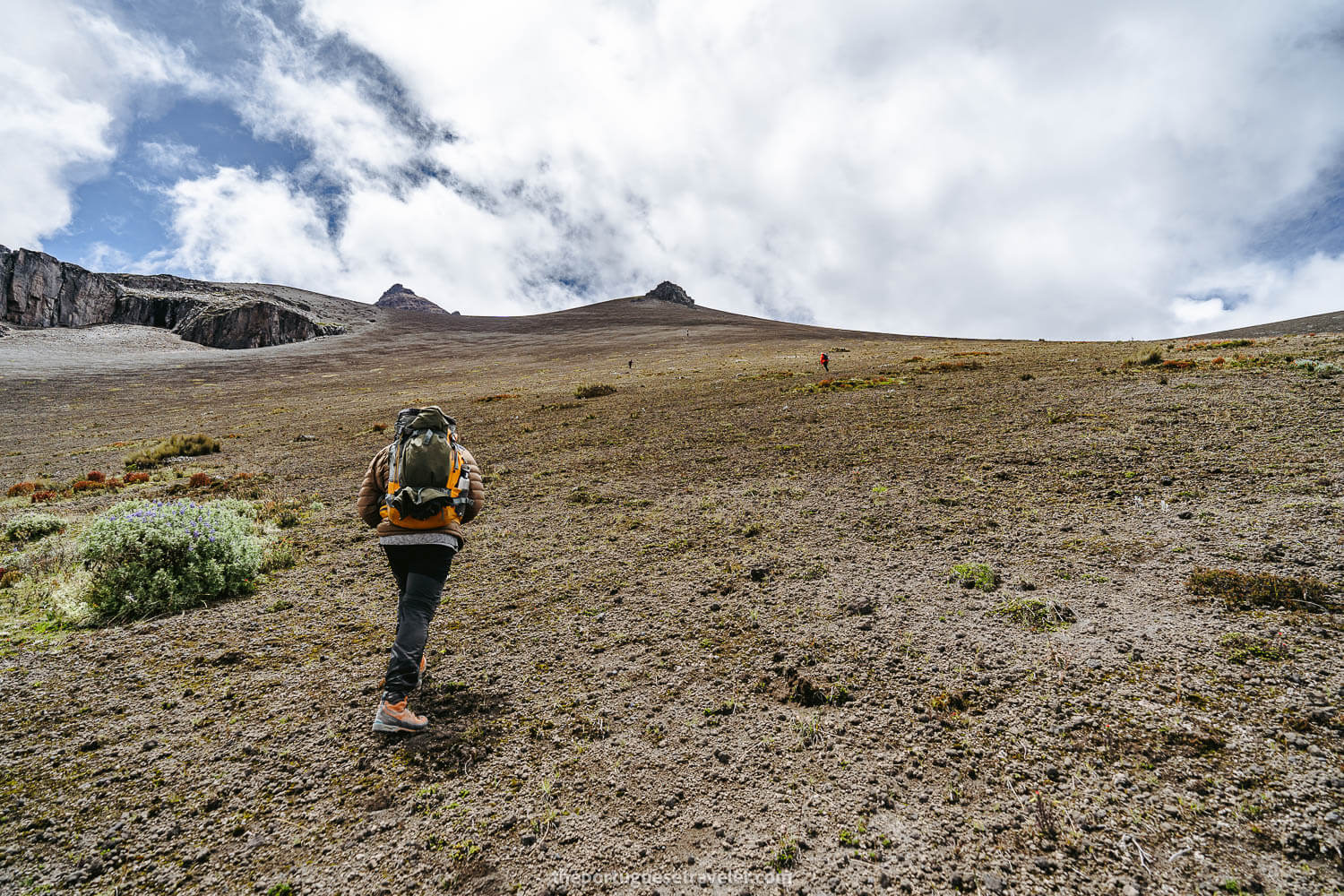
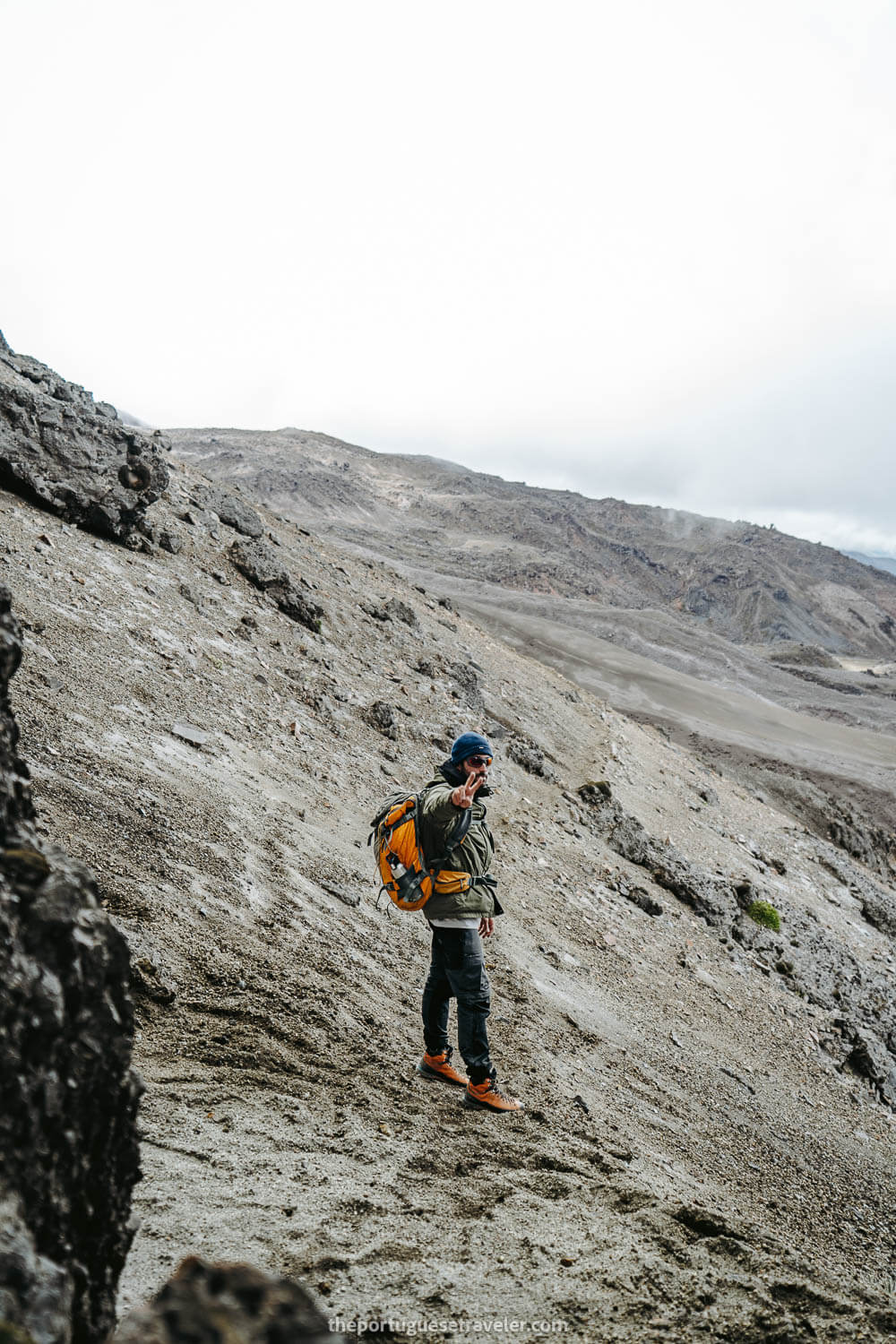
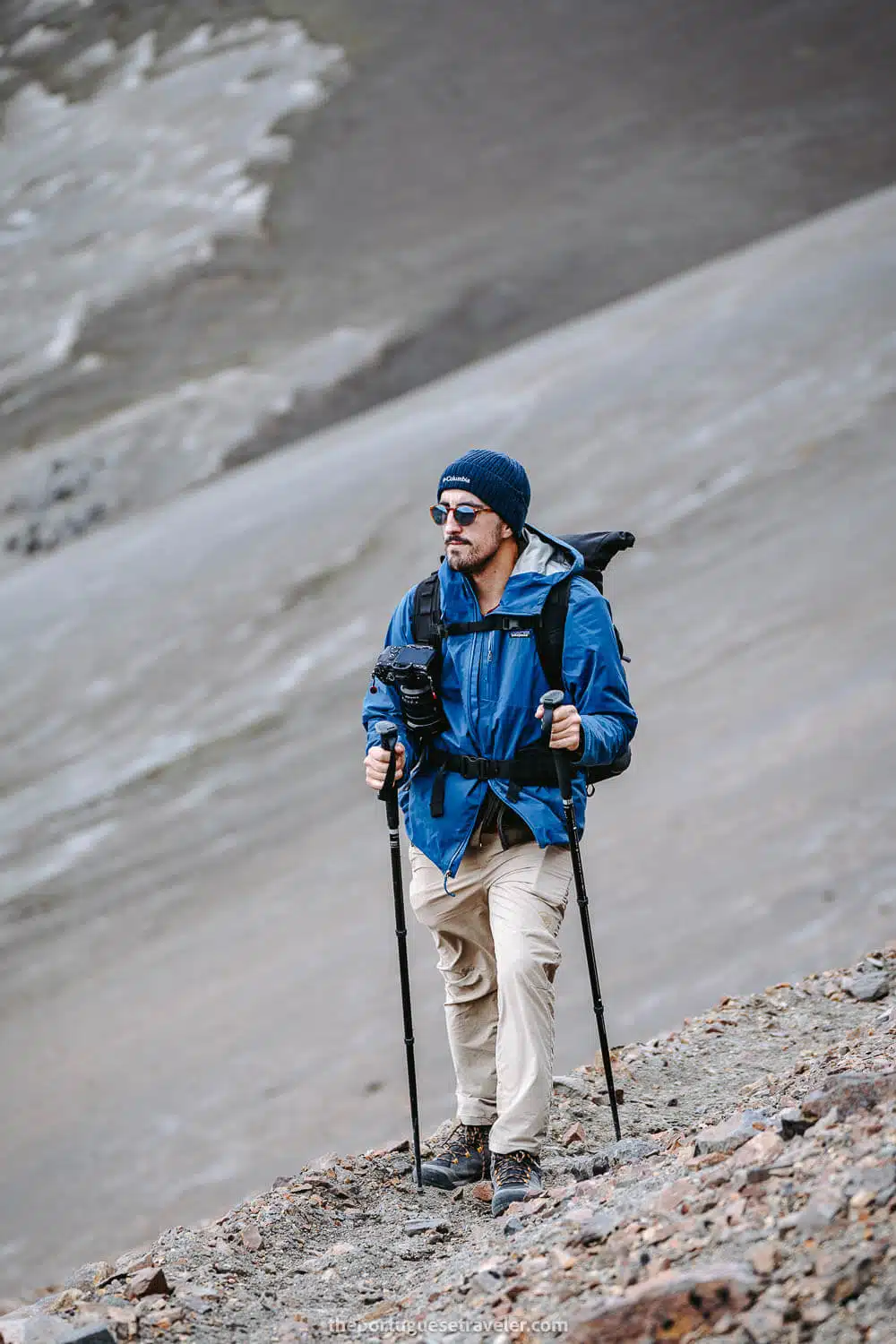
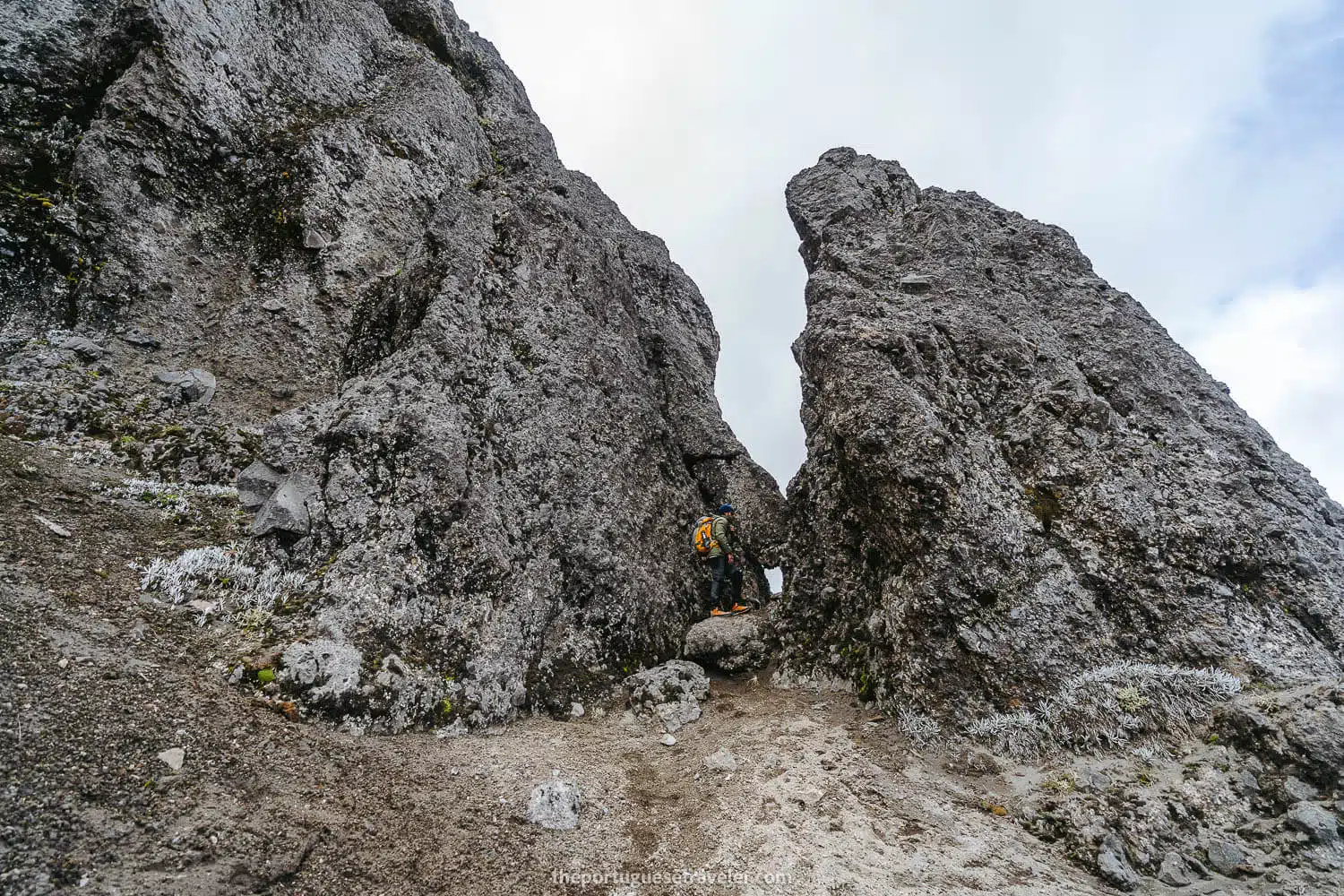
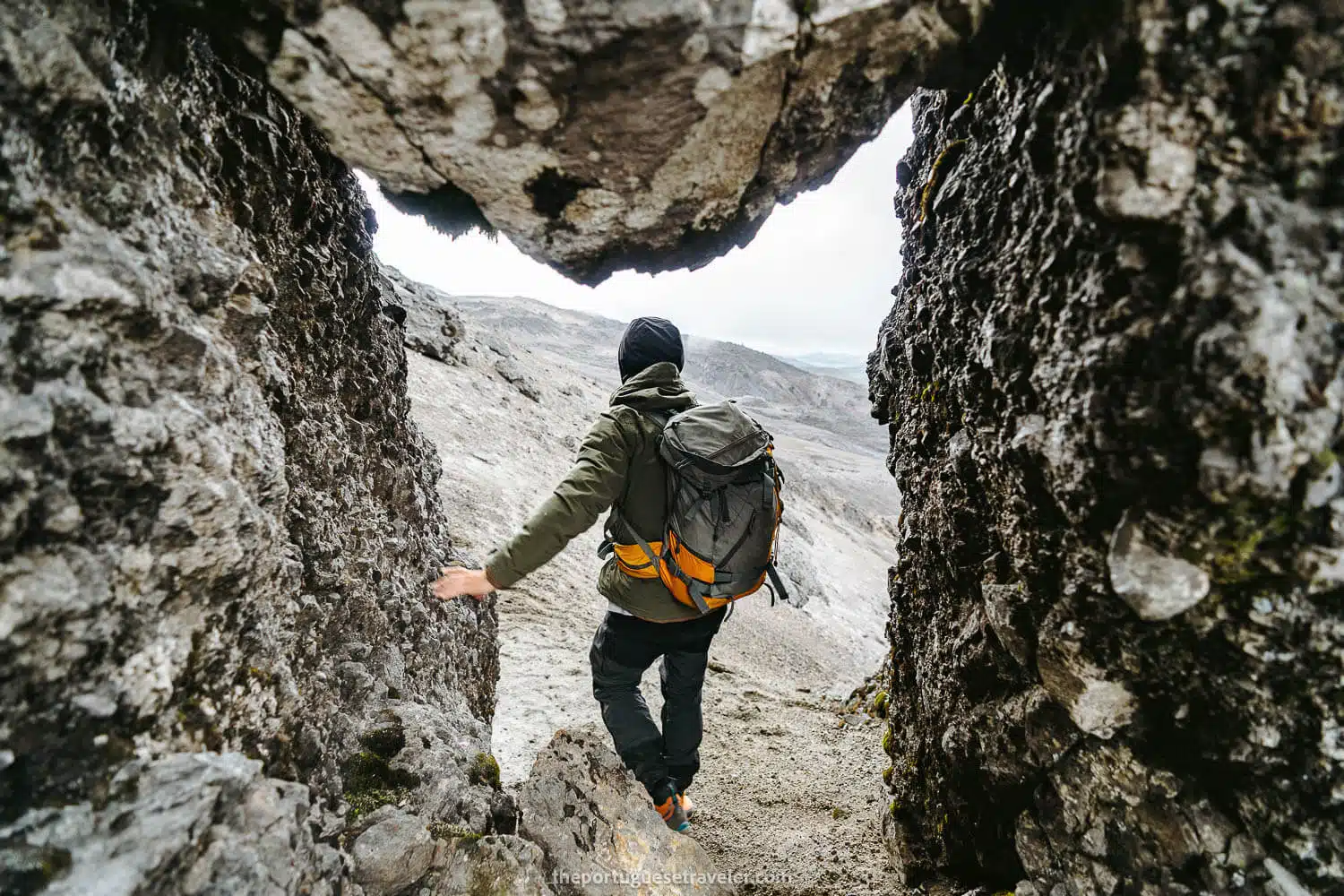
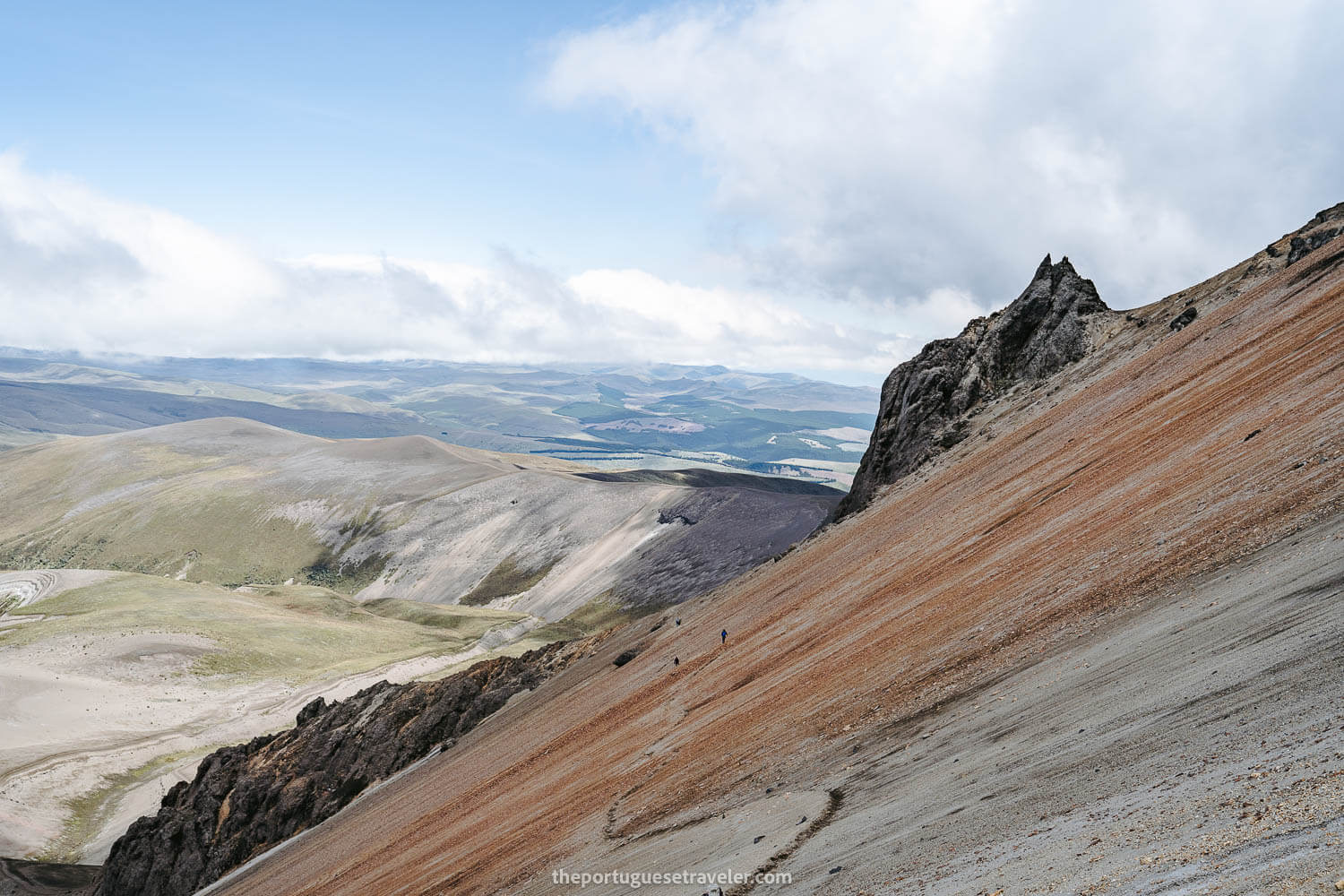
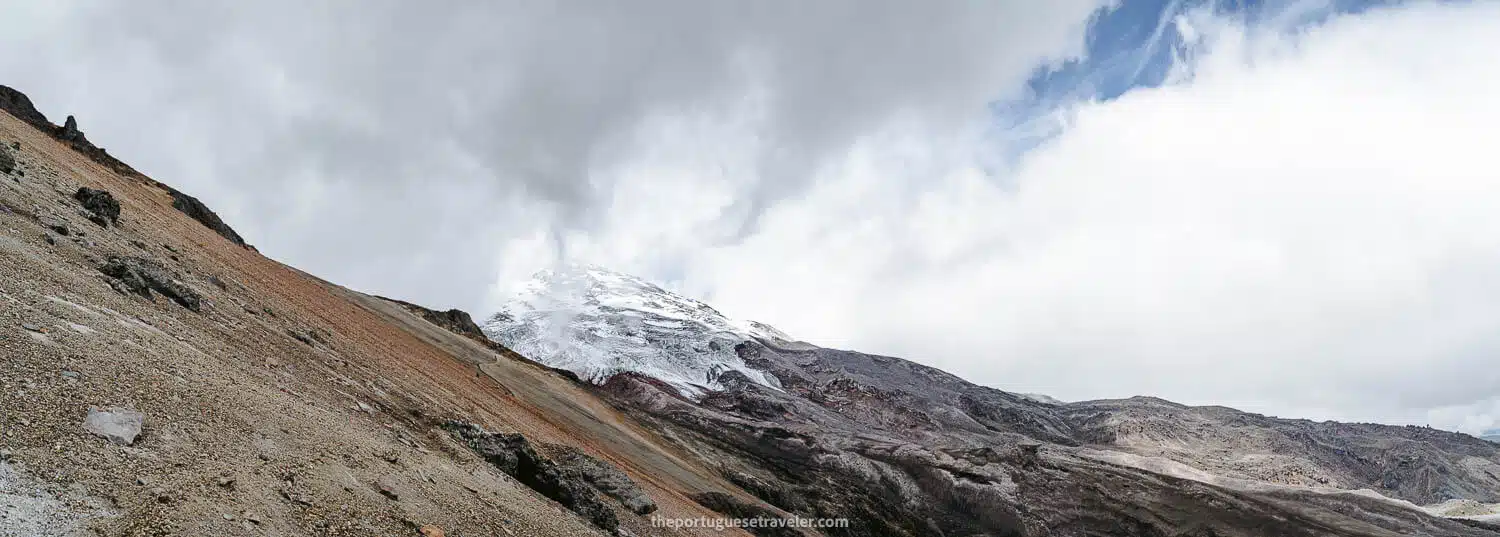
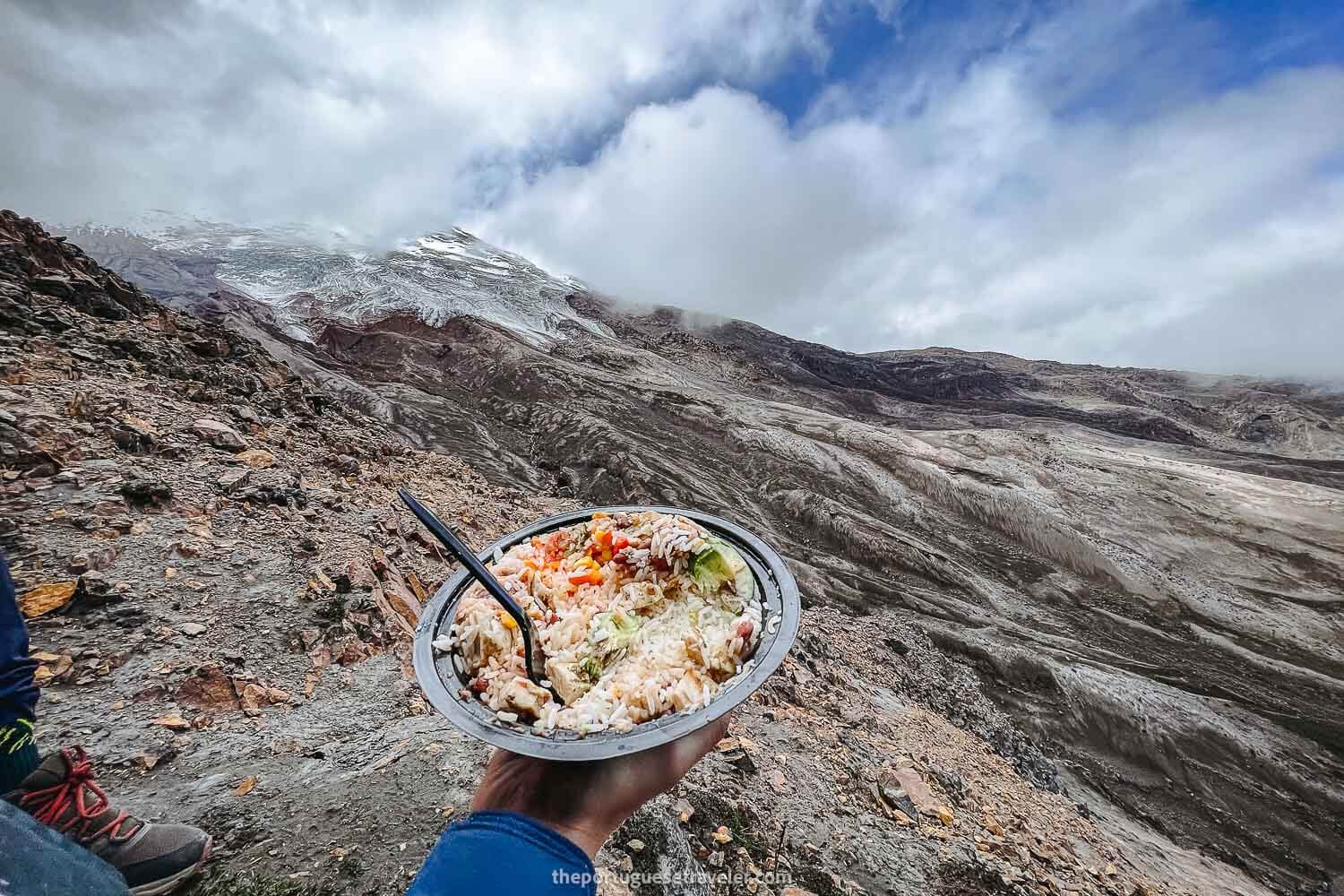
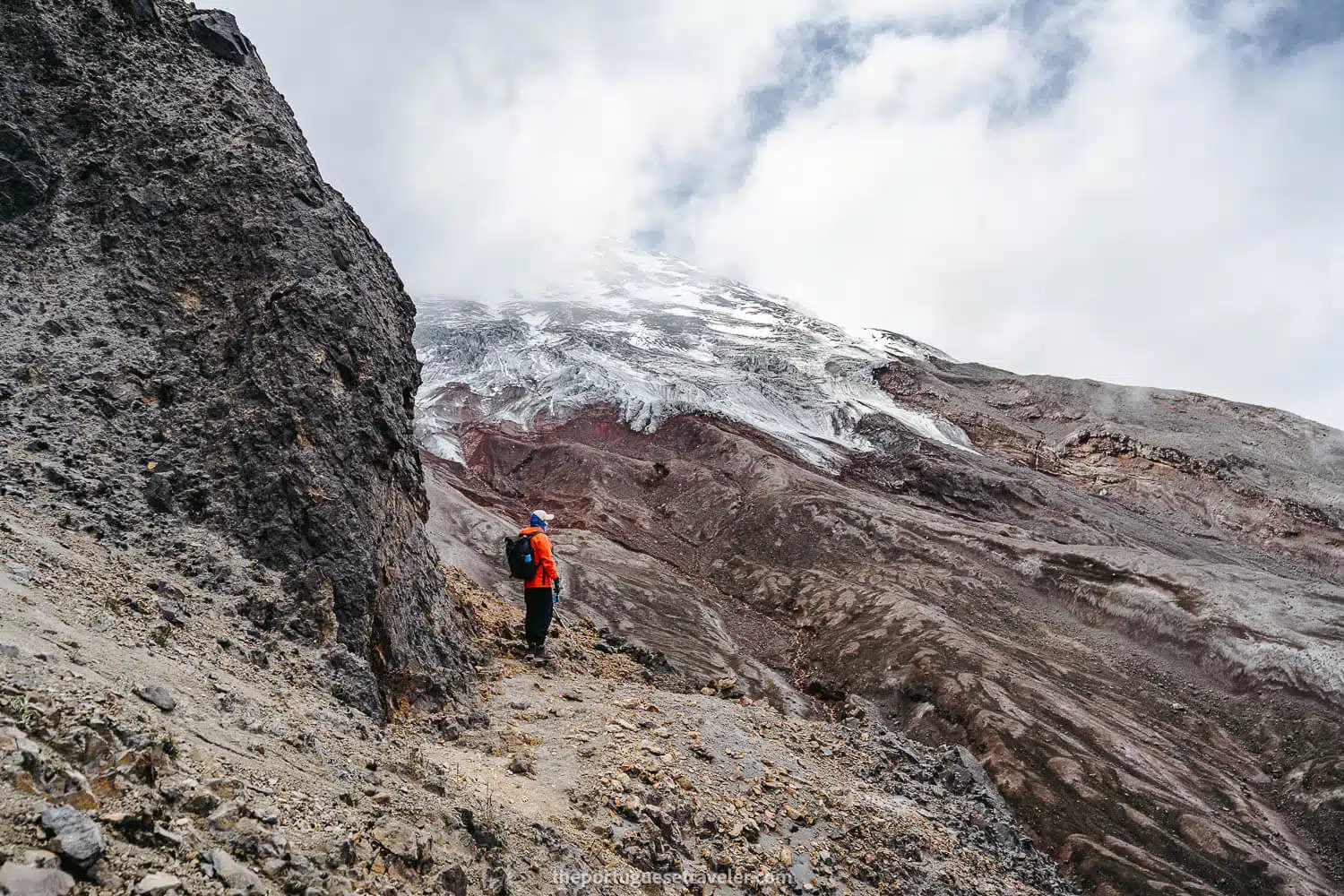
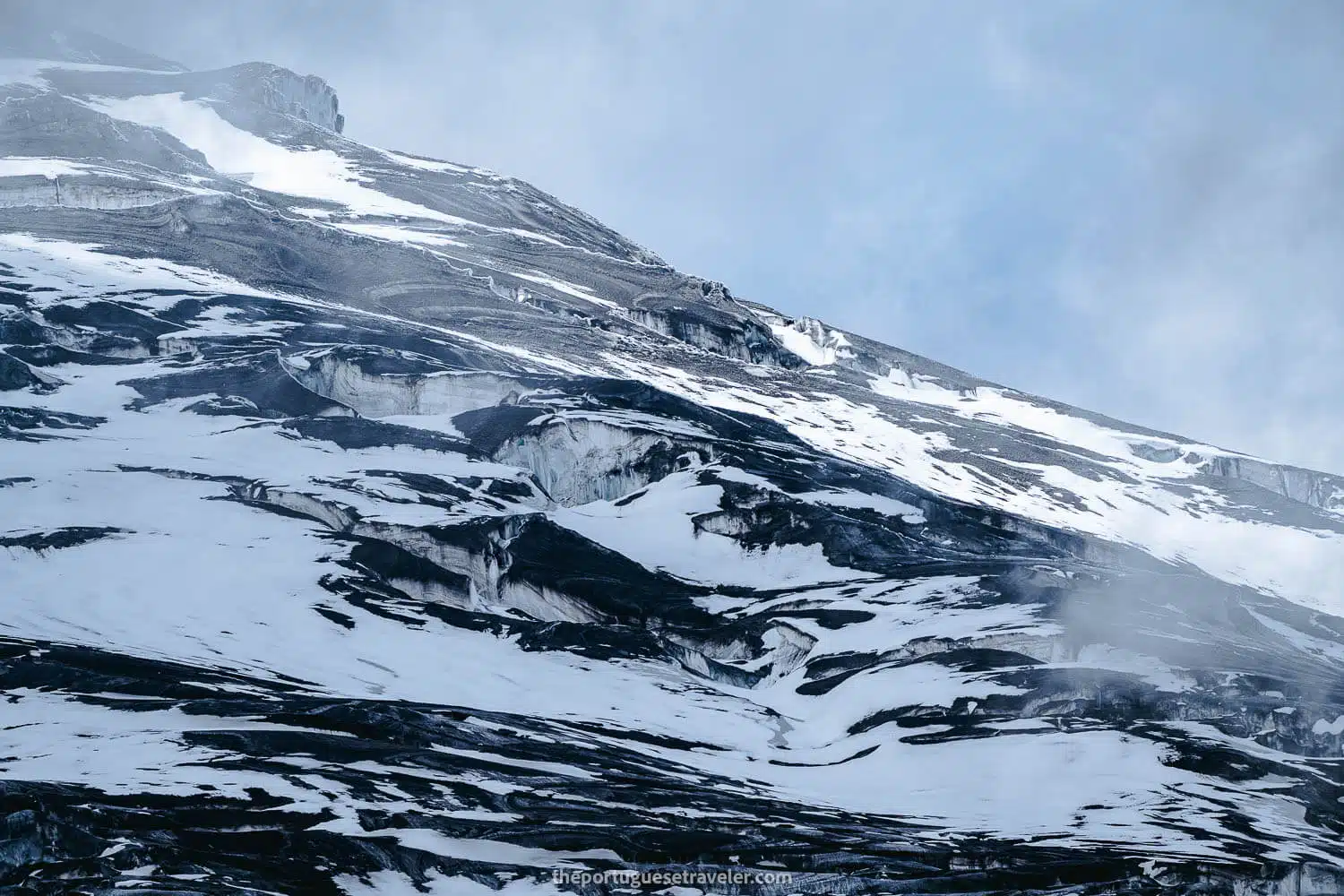
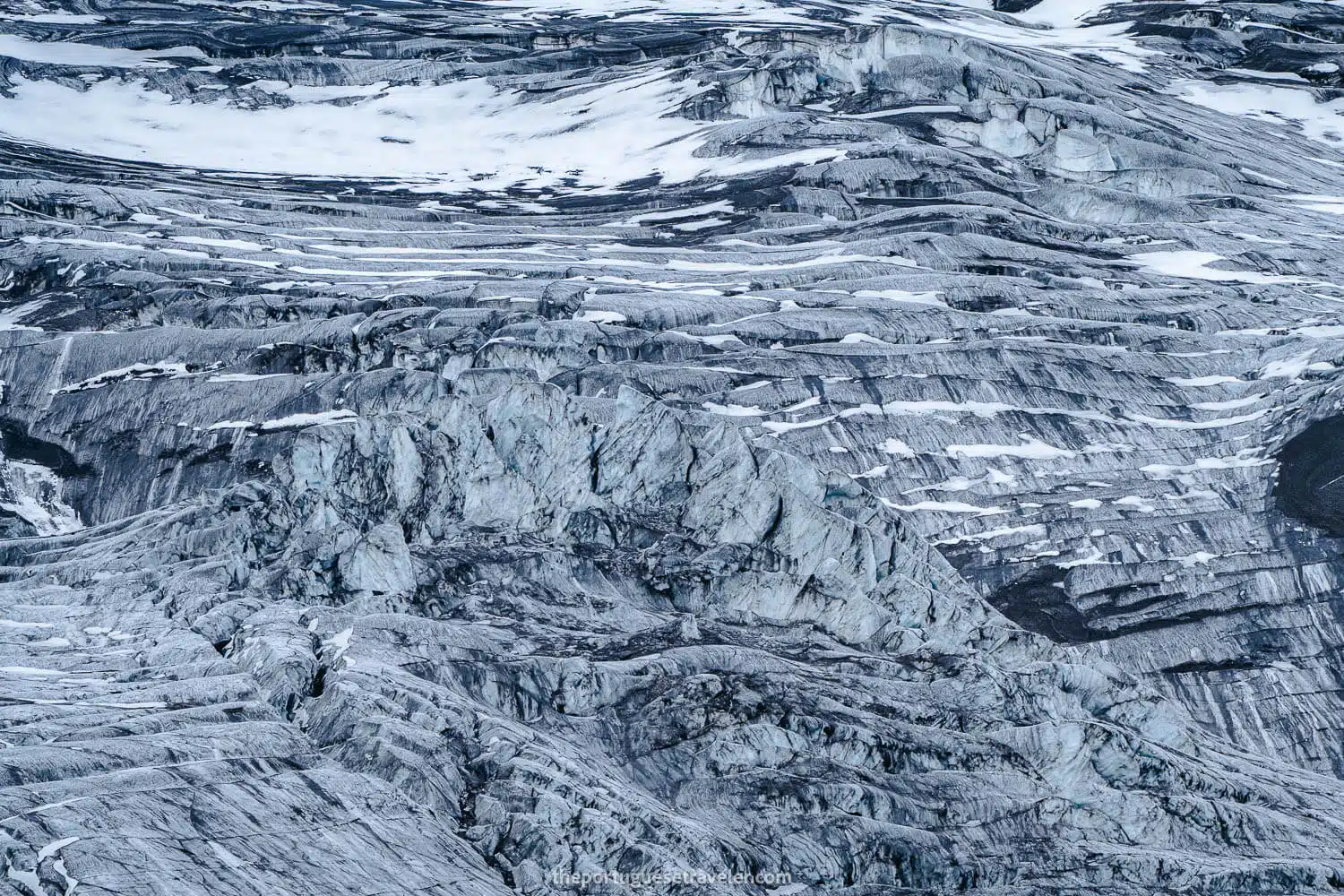
From the Glaciers viewpoint back to the Refuge
As we embarked on the initial section after lunch, a massive cloud engulfed Cotopaxi, obscuring it from our view for the remainder of the day. Undeterred, we continued our hike, only to find ourselves enveloped by clouds, rendering the path invisible.
Fortunately, Eddie had the hike’s map on Wikiloc, which enabled us to discern the correct direction. Additionally, the guide from the previous group joined us, confirming the route’s authenticity.
Although we eventually spotted wooden signs pointing the way once the cloud dissipated, I must say that without Eddie’s guidance and the assistance of the other guide, we would have likely become lost, especially considering that sunset was approaching. It was a somewhat perilous situation for those lacking proper knowledge of the area, compounded by our extreme exhaustion.
Following that episode, the sky cleared before us, allowing us to leisurely trek back to the refuge, retrieve our car, and return to Quito.
Along the way to the refuge, we encountered wild horses and enjoyed splendid views of the Chimborazo Volcano.
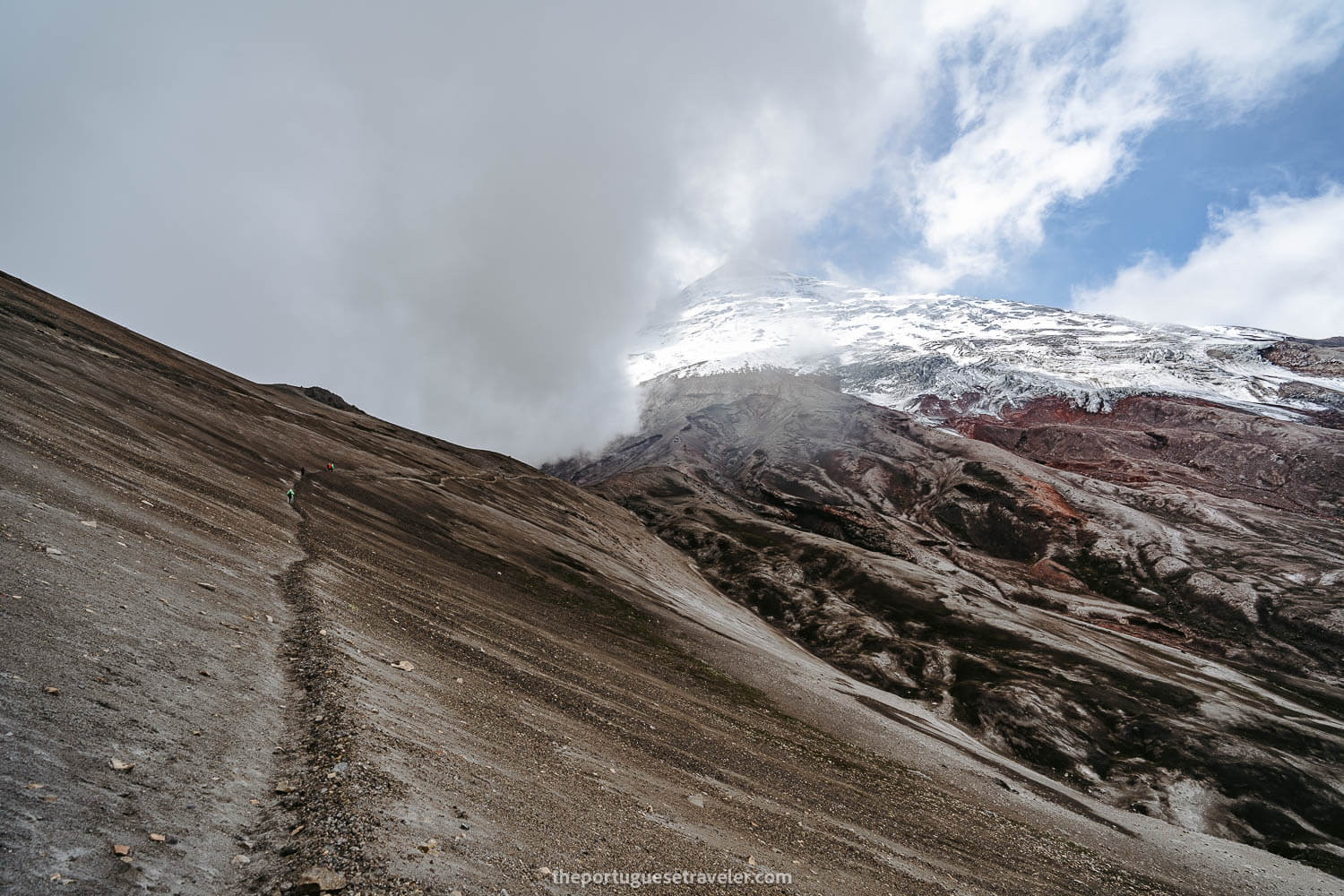
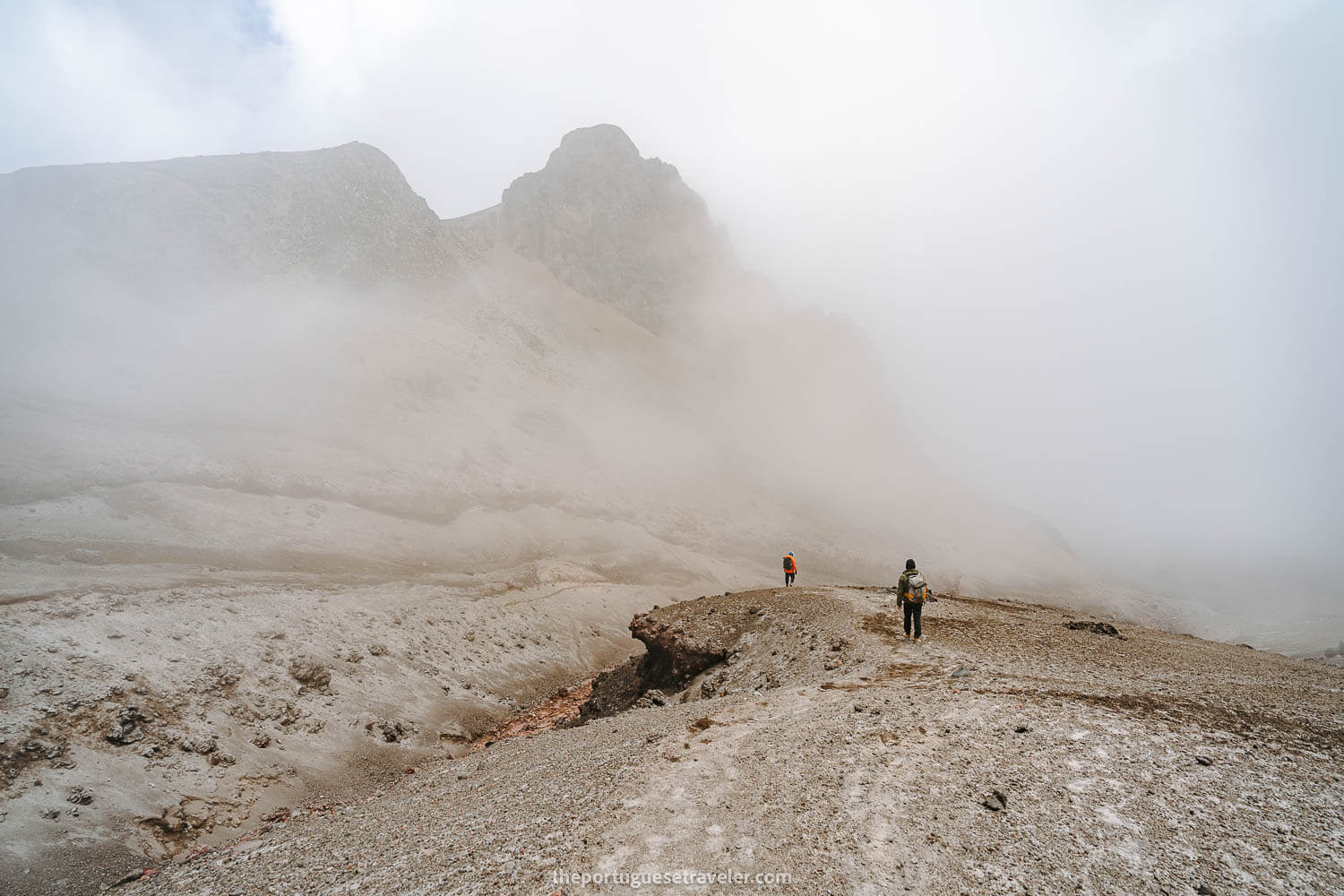
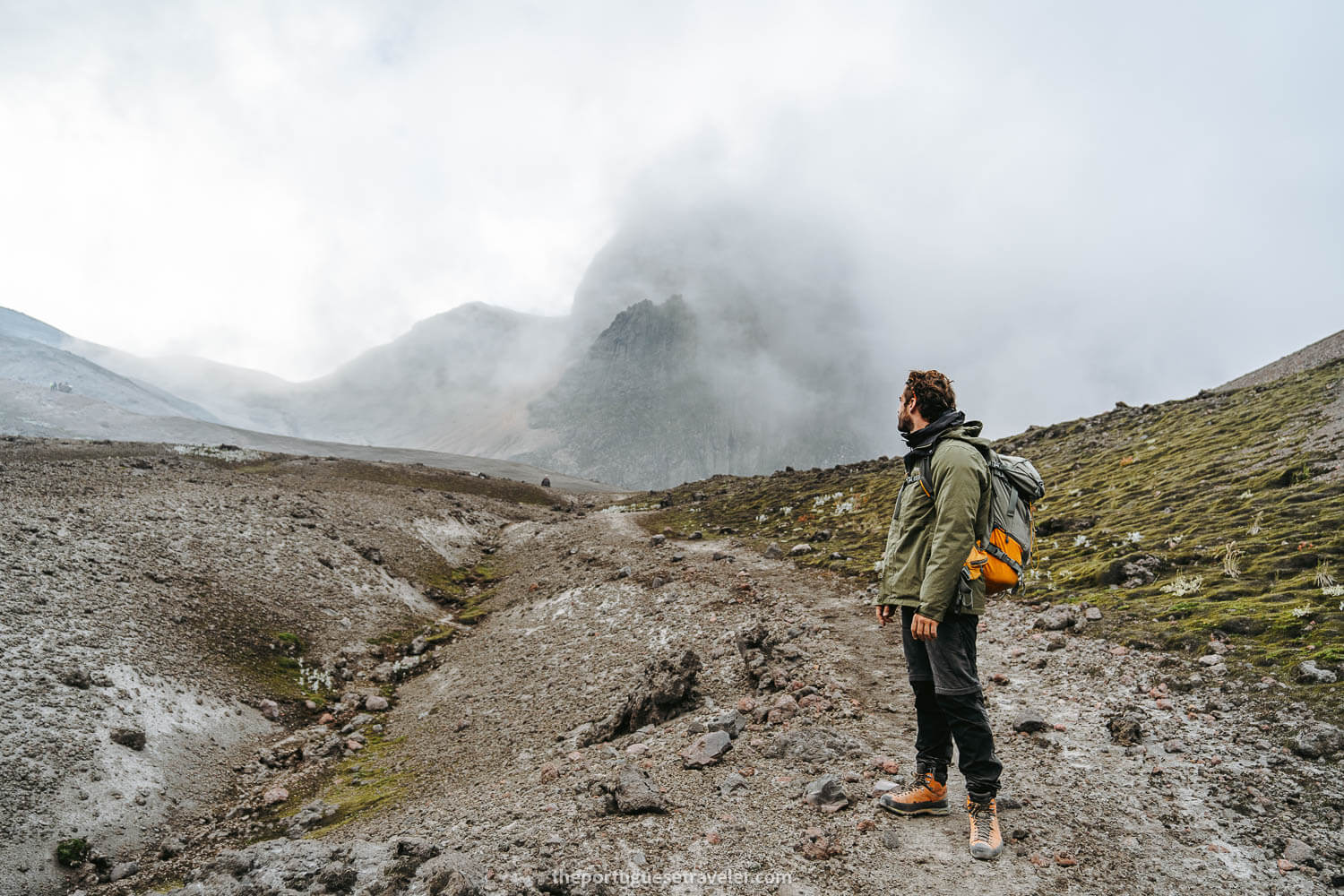
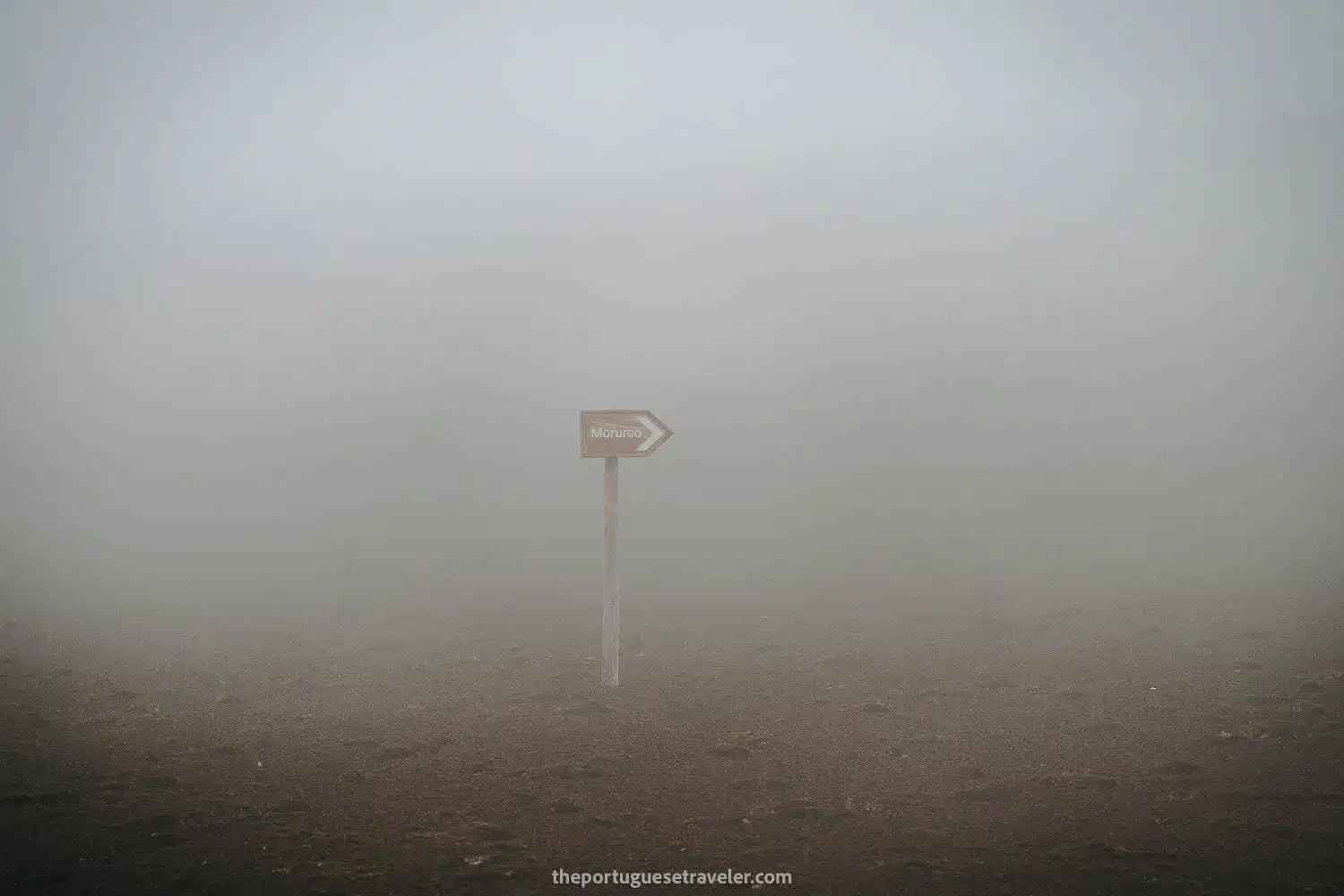
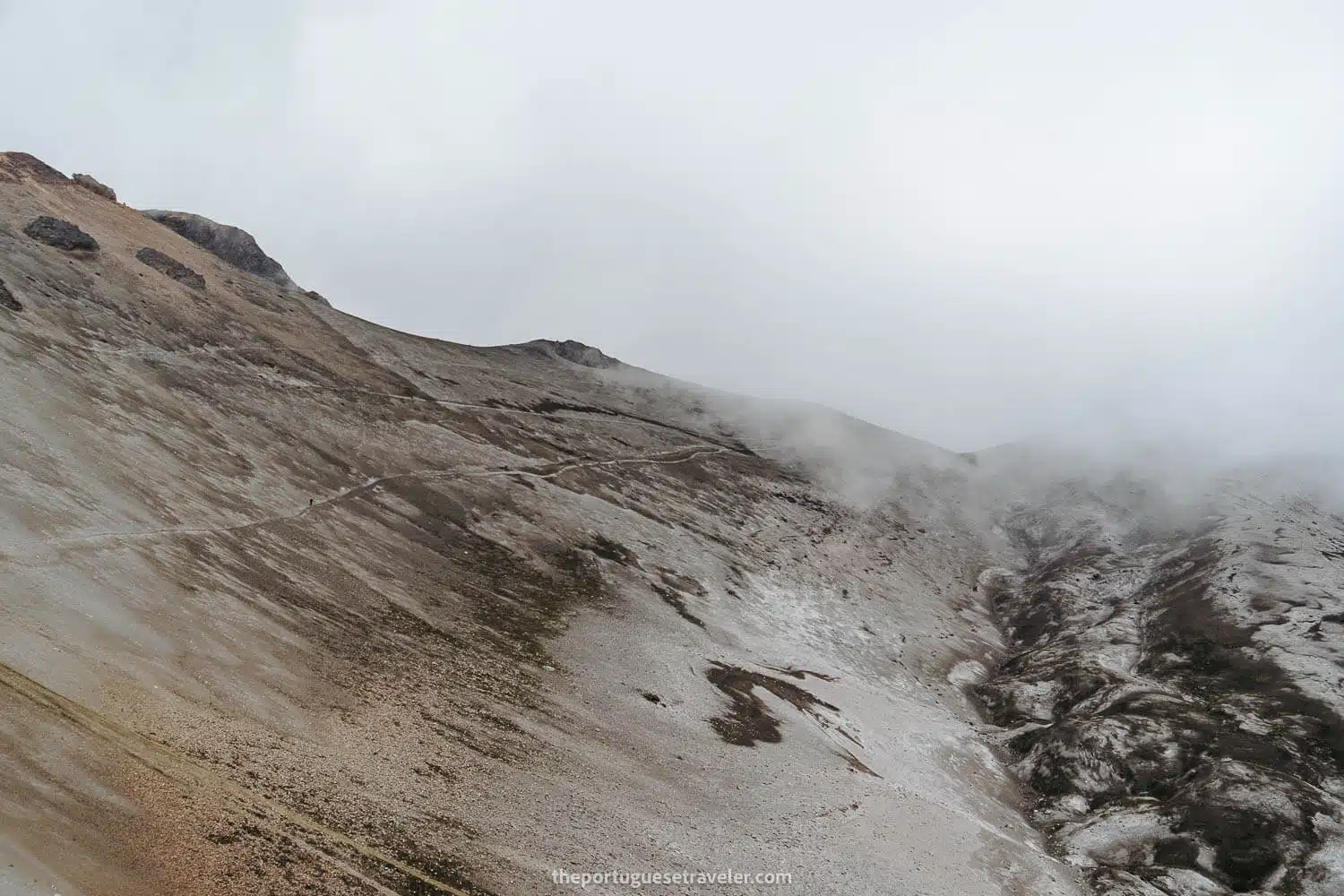
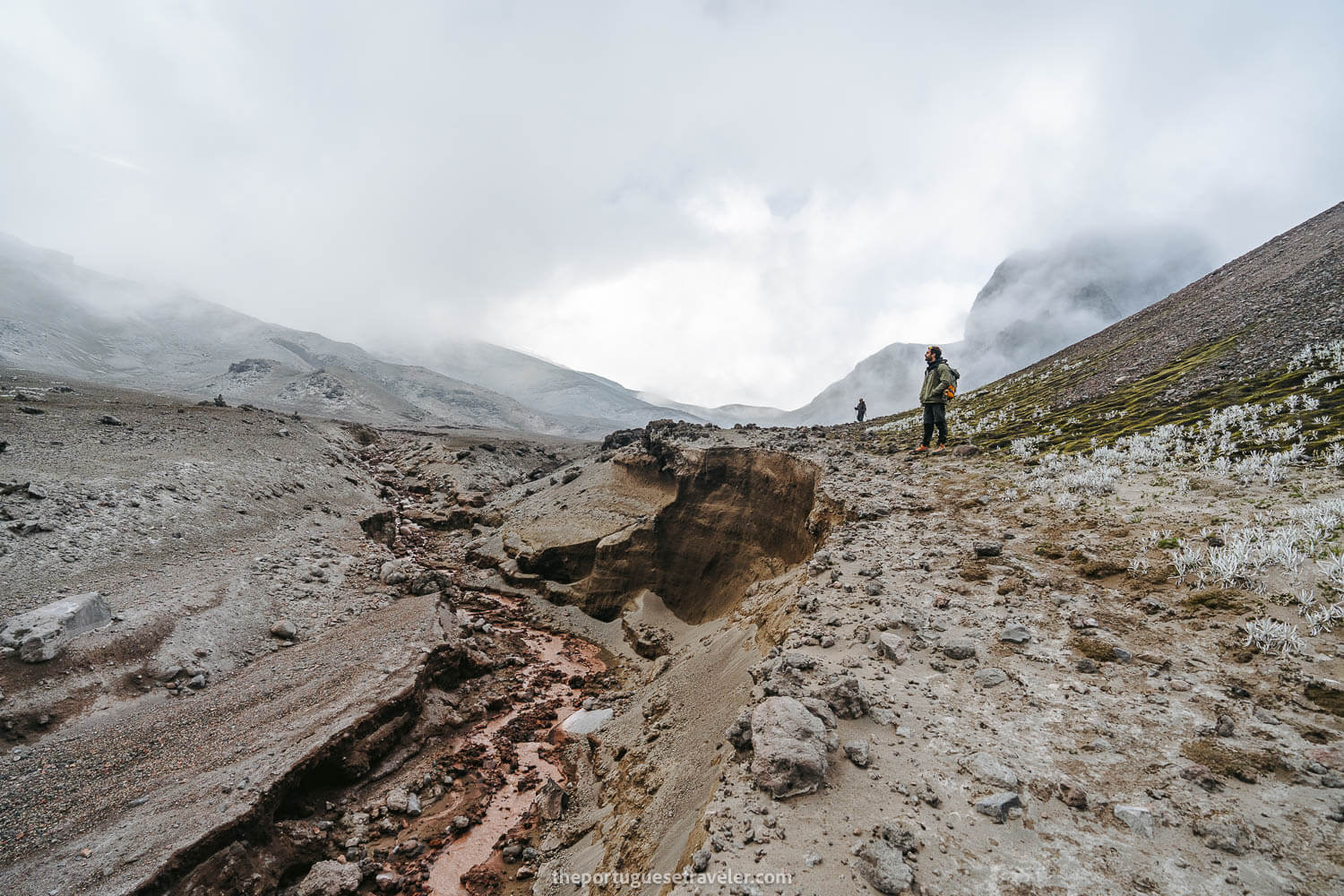
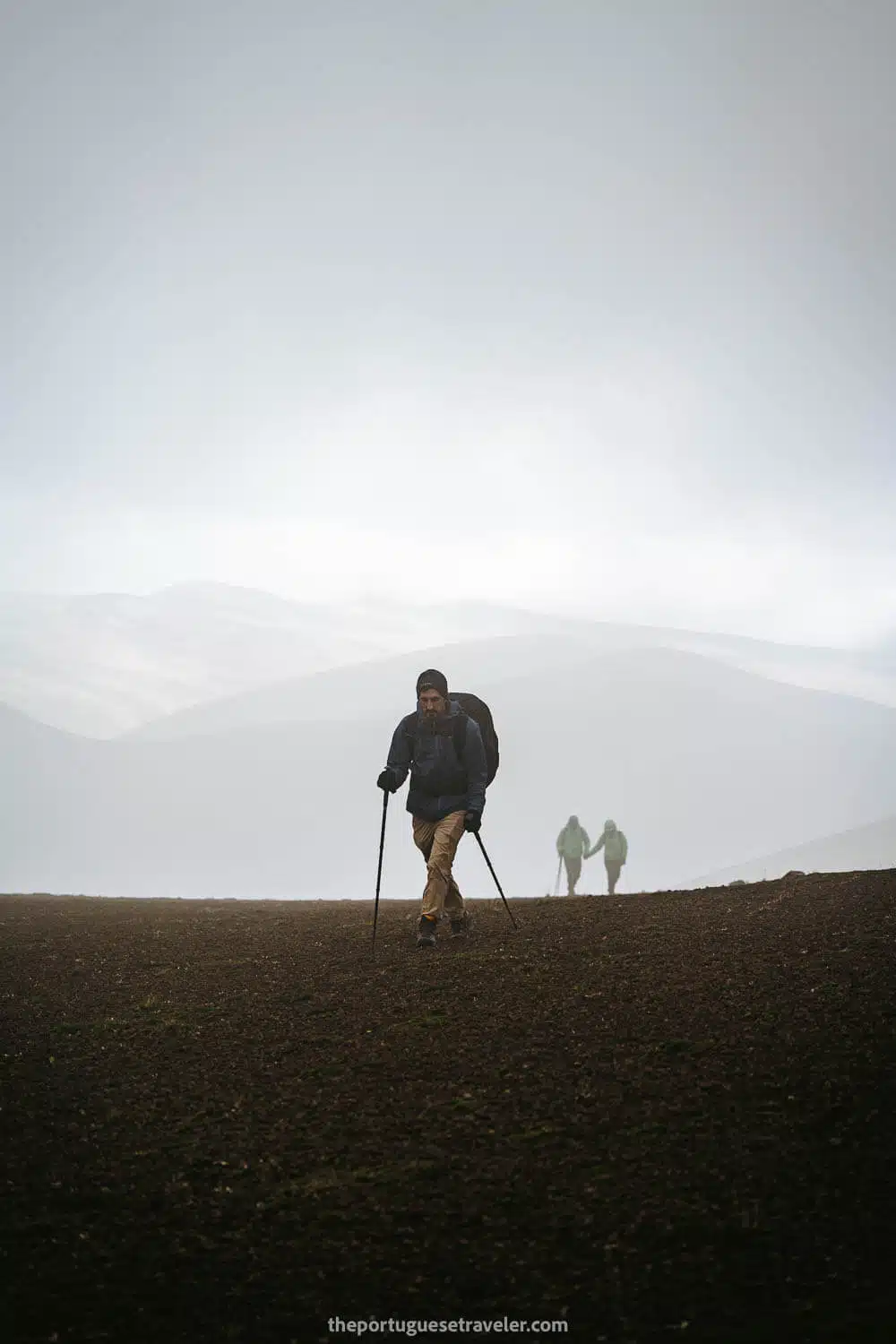
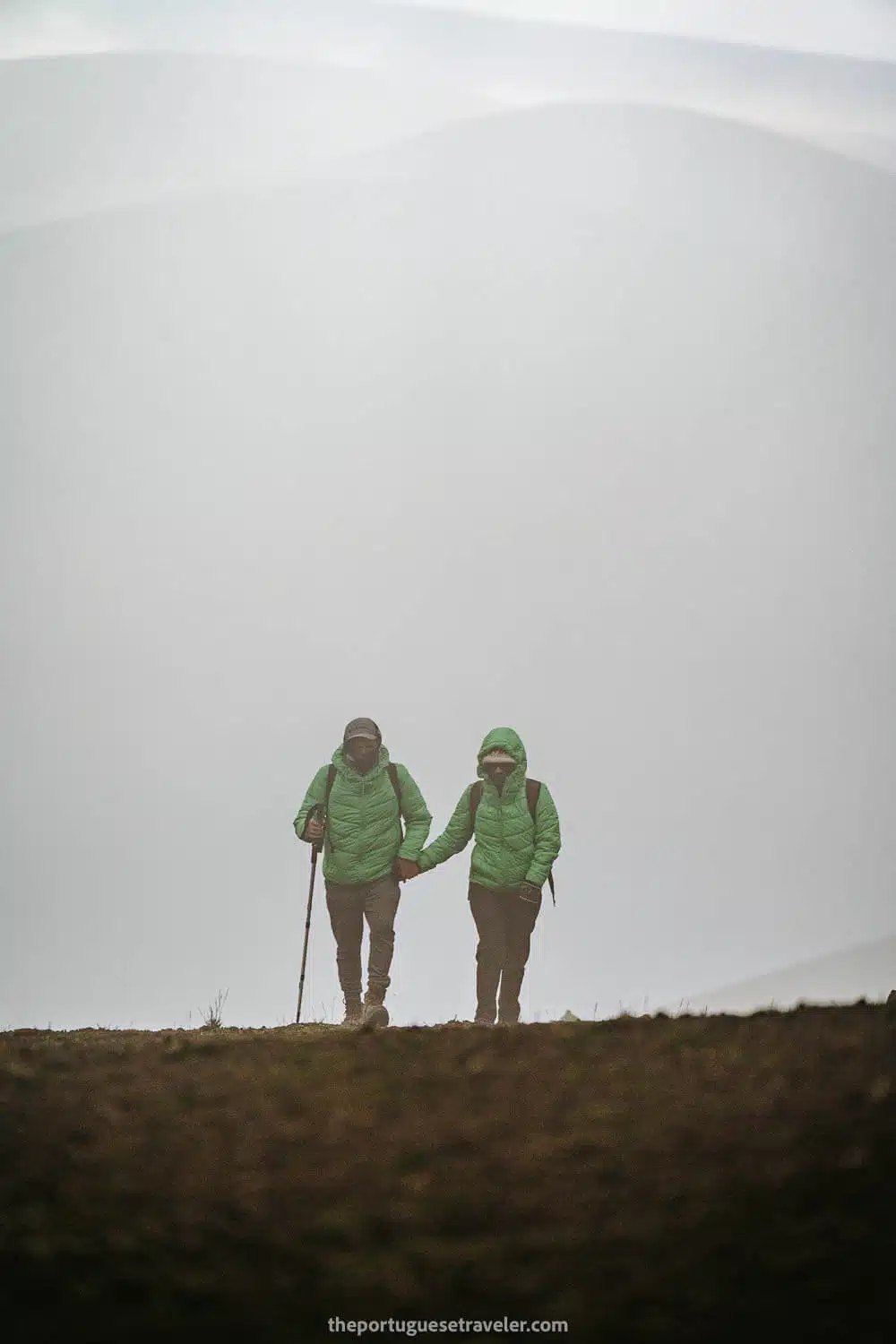
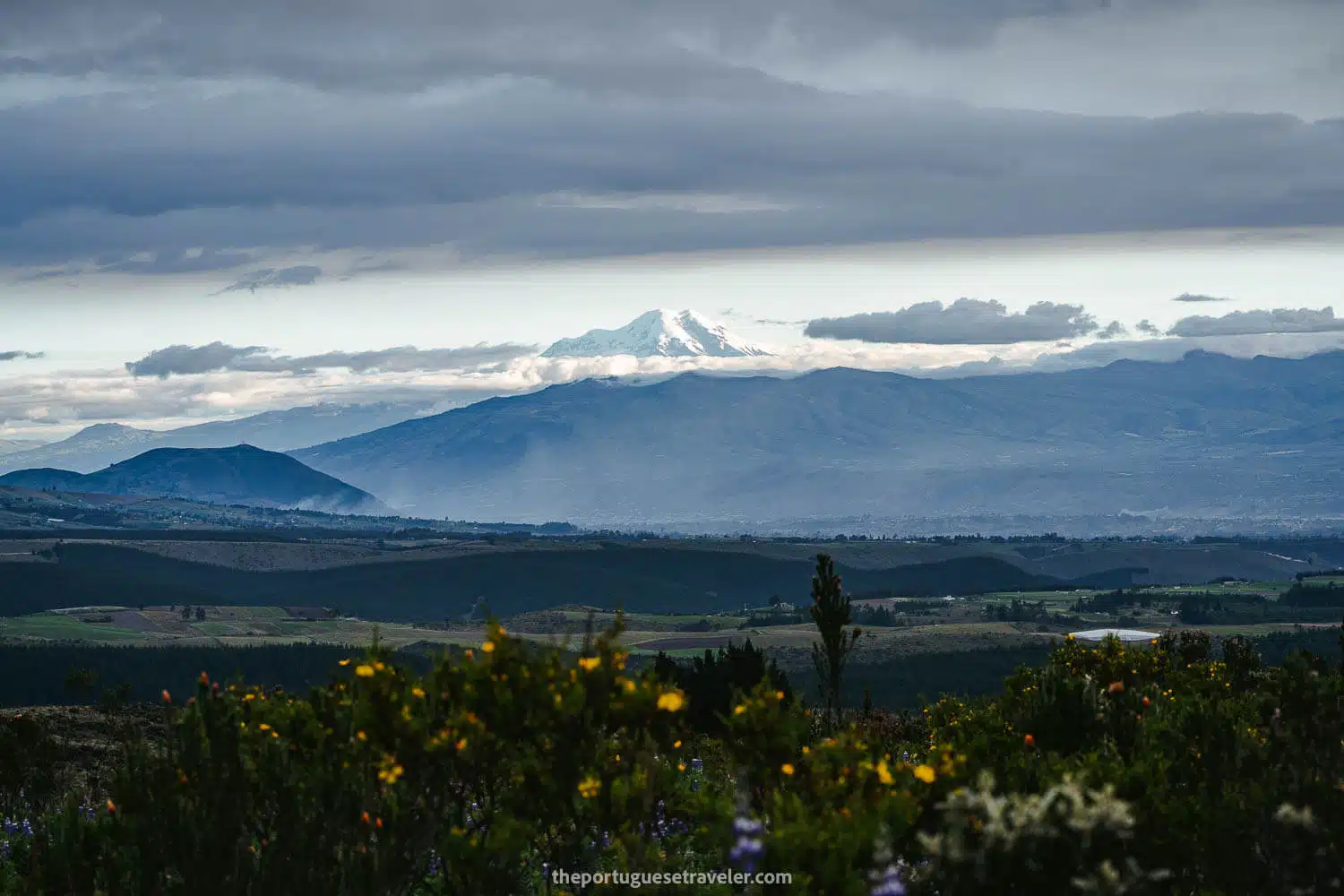
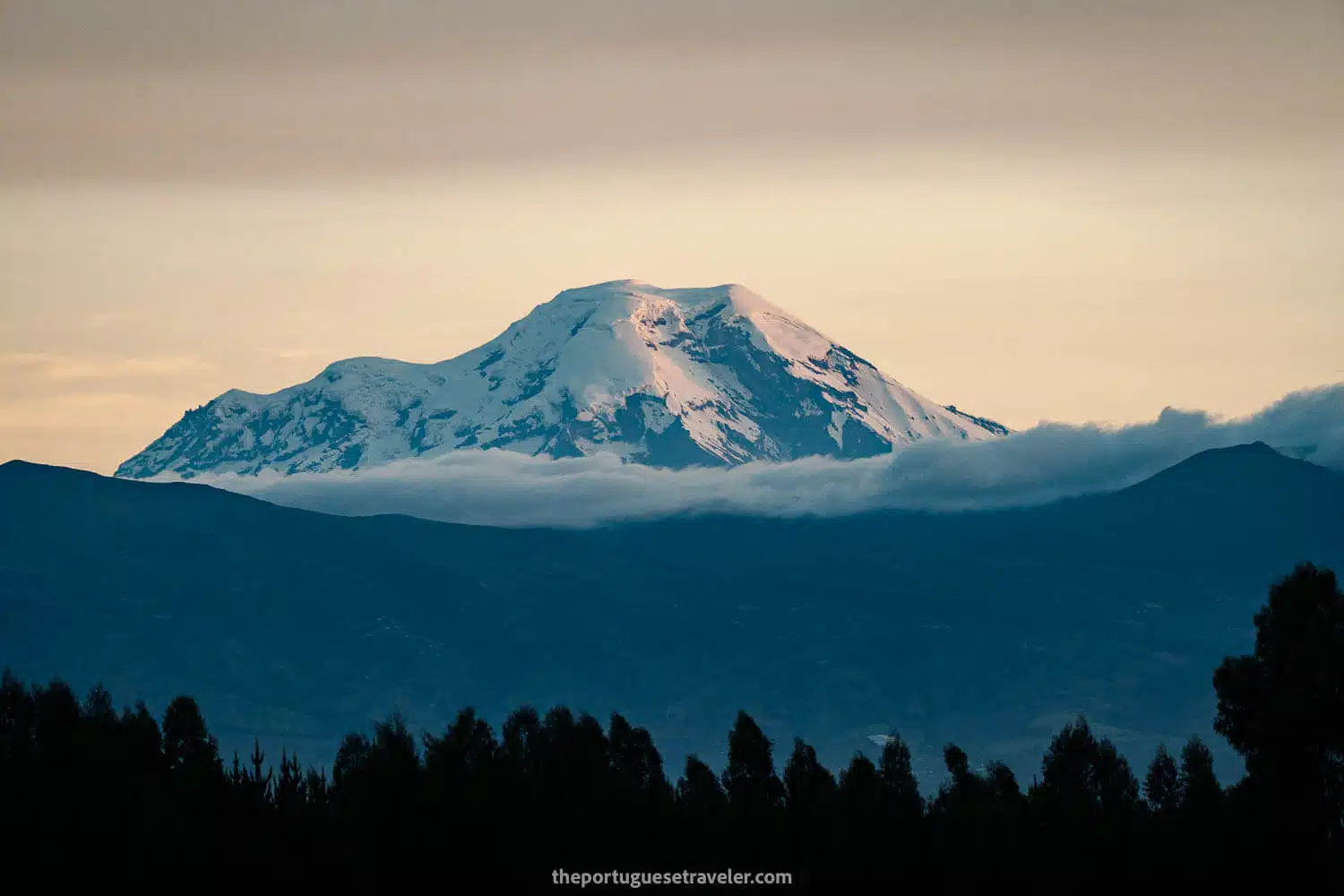
Have you had the opportunity to do the Morurco 360 Hike? If yes, I would love to hear about your experience. Please share your thoughts and opinions in the comments below.
Thanks for reading through and I hope you have fun on this adventure. I will drop more of my favorite shots underneath, enjoy!
Photo Gallery
From the Parking lot to the Canyon
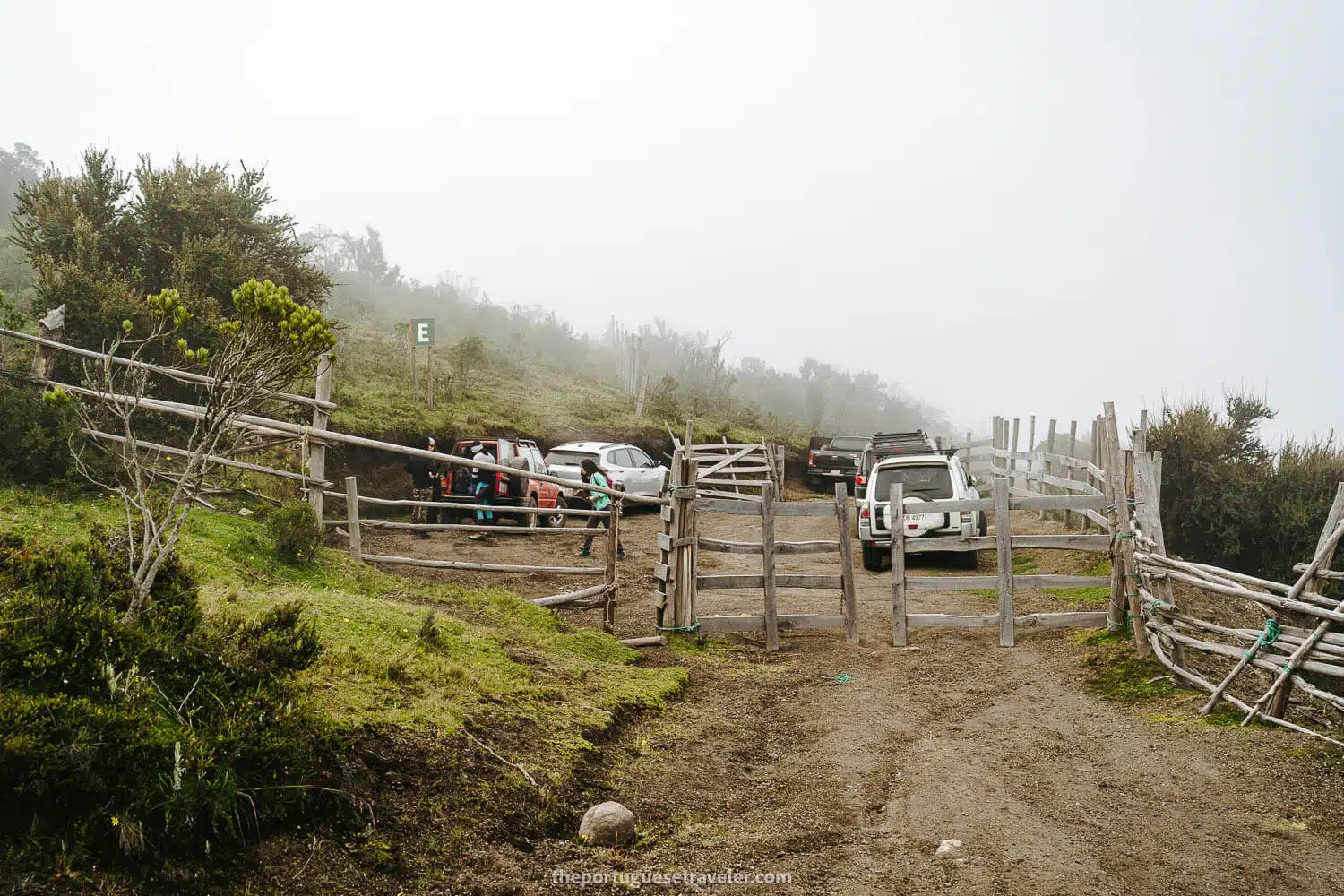
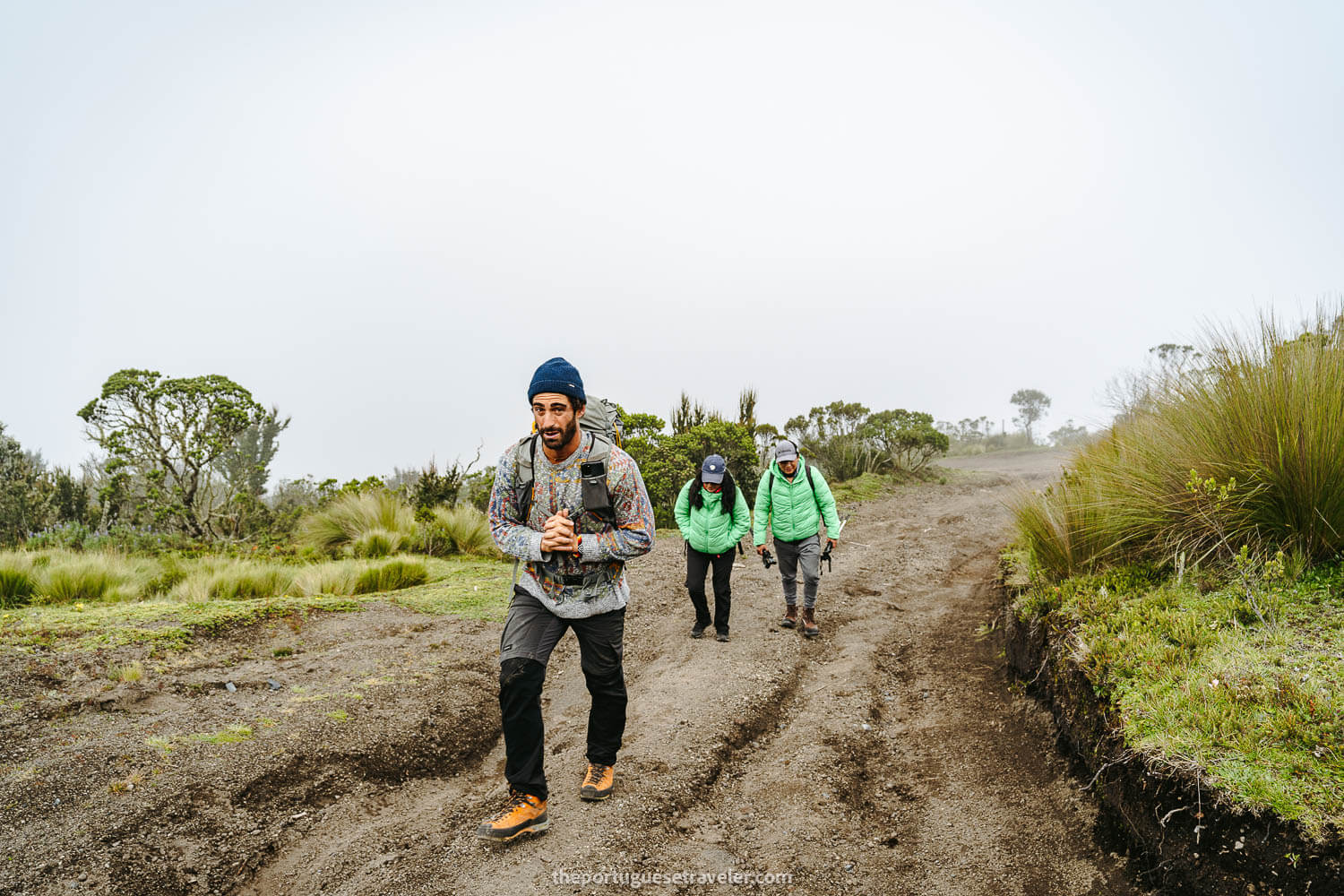
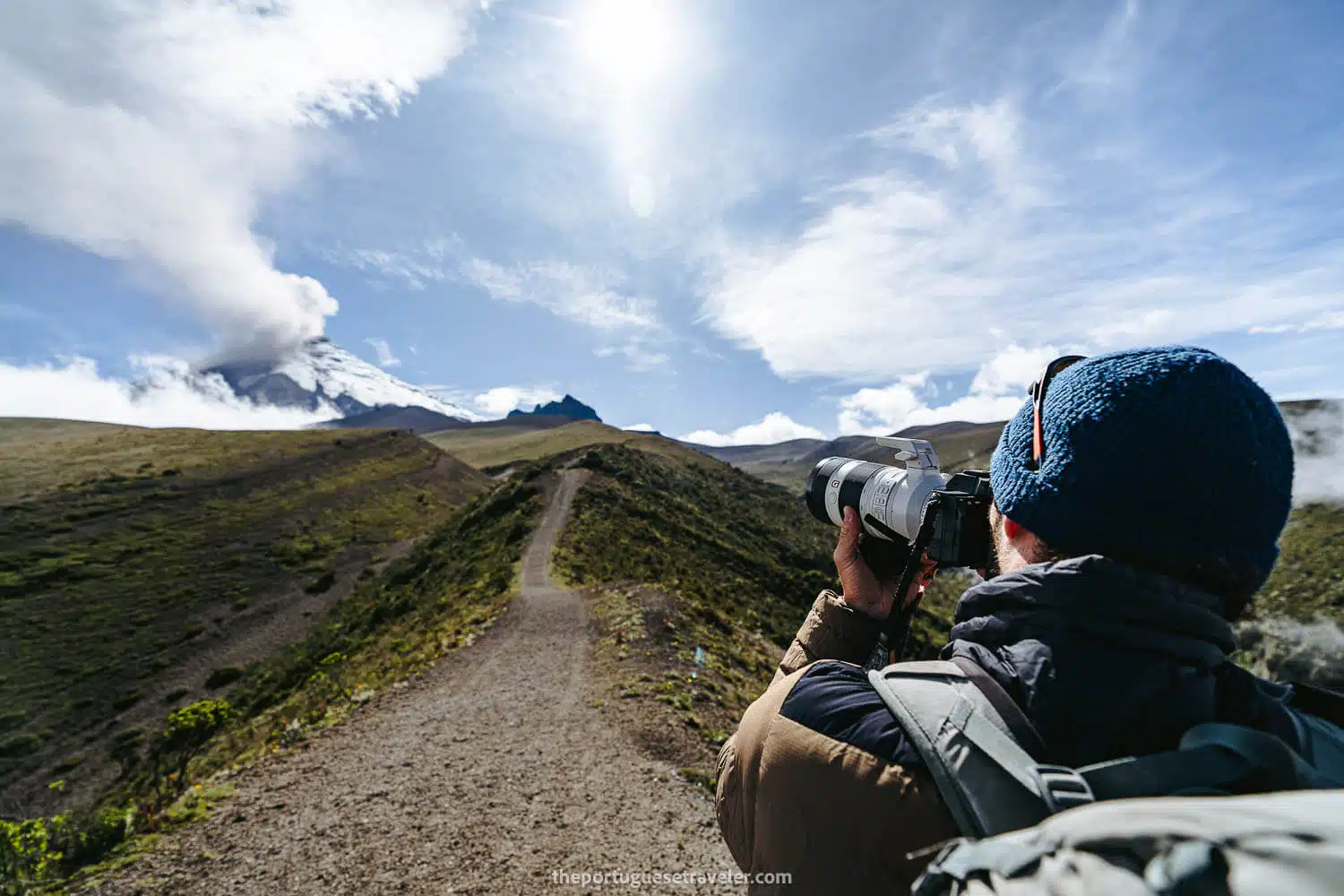
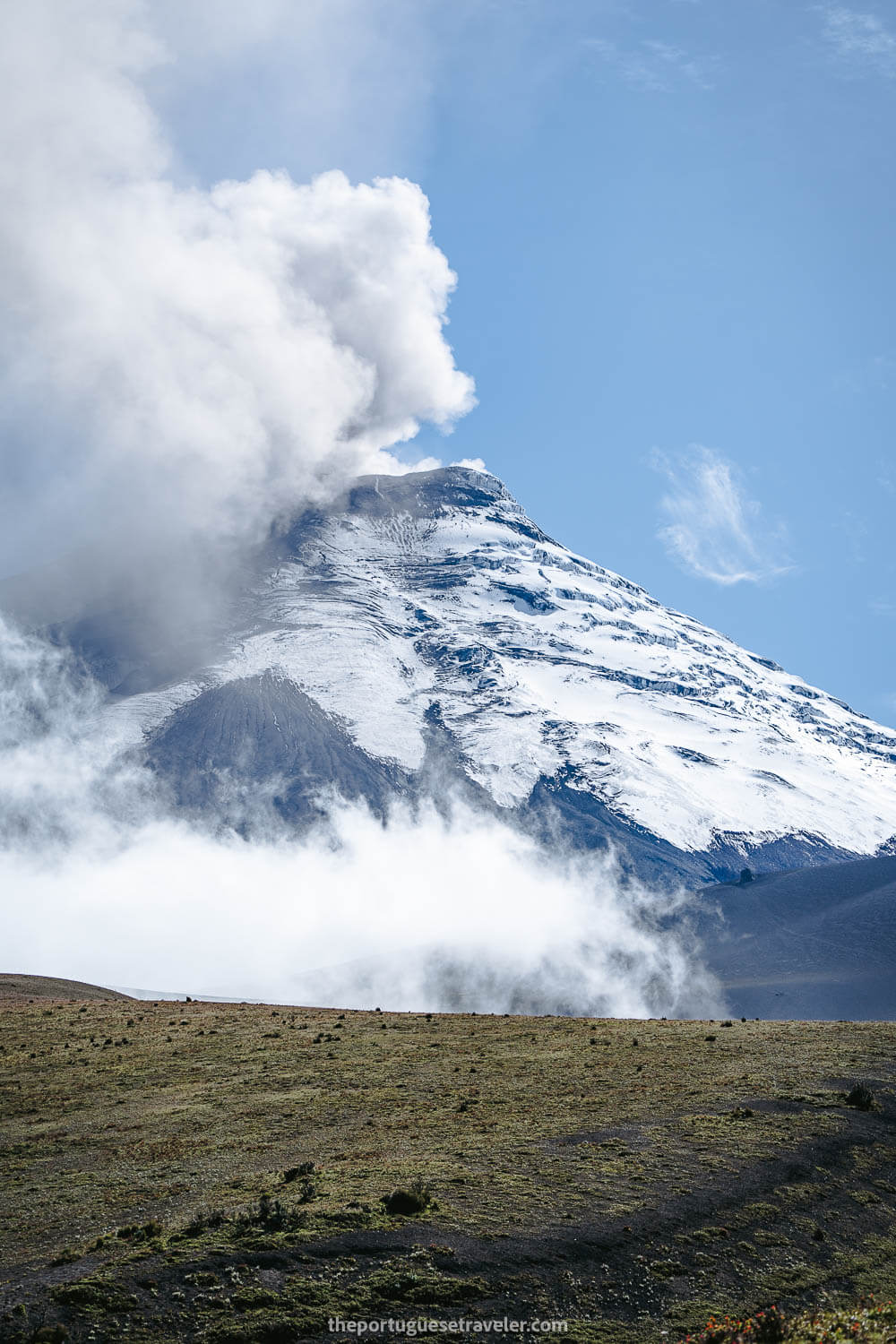
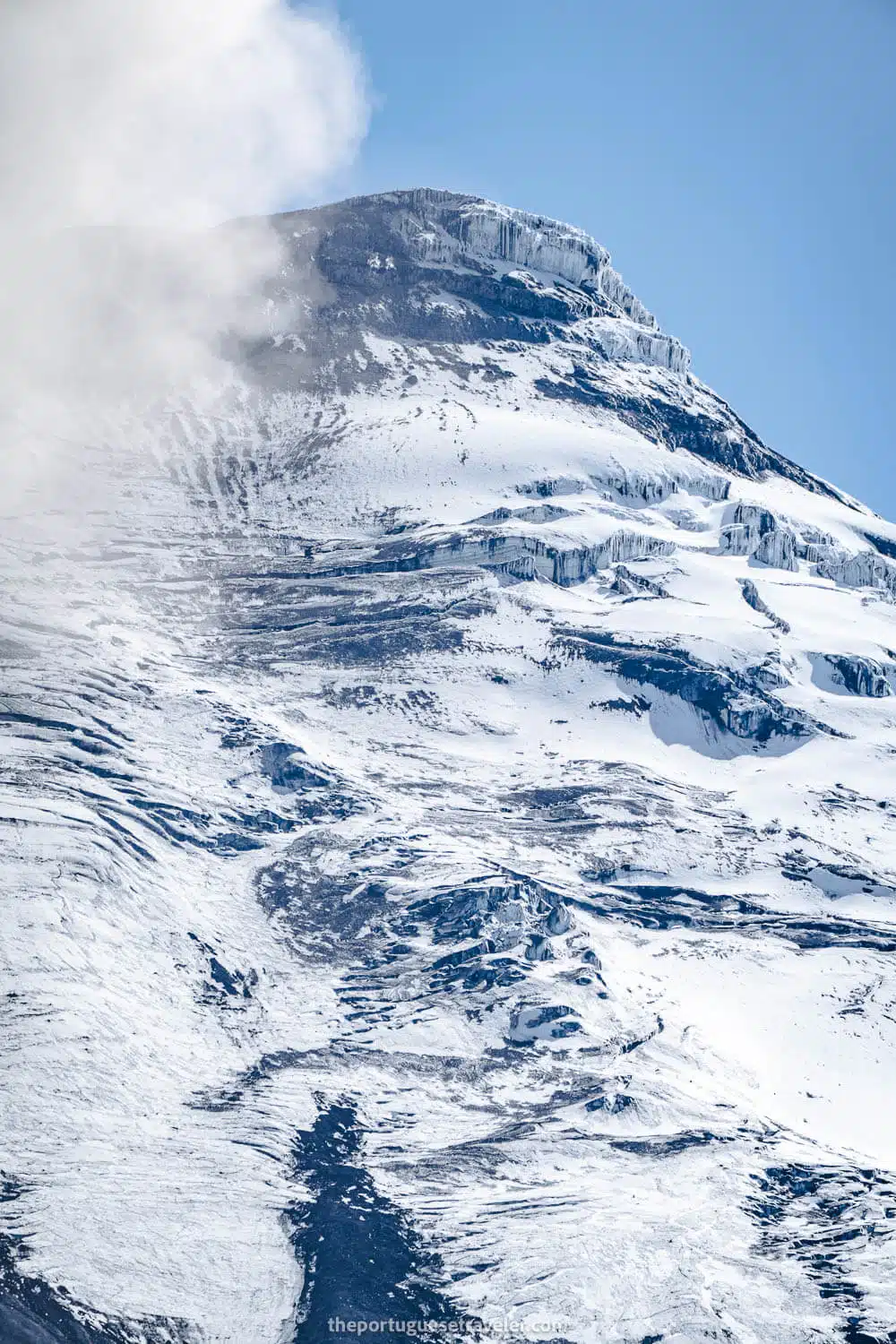
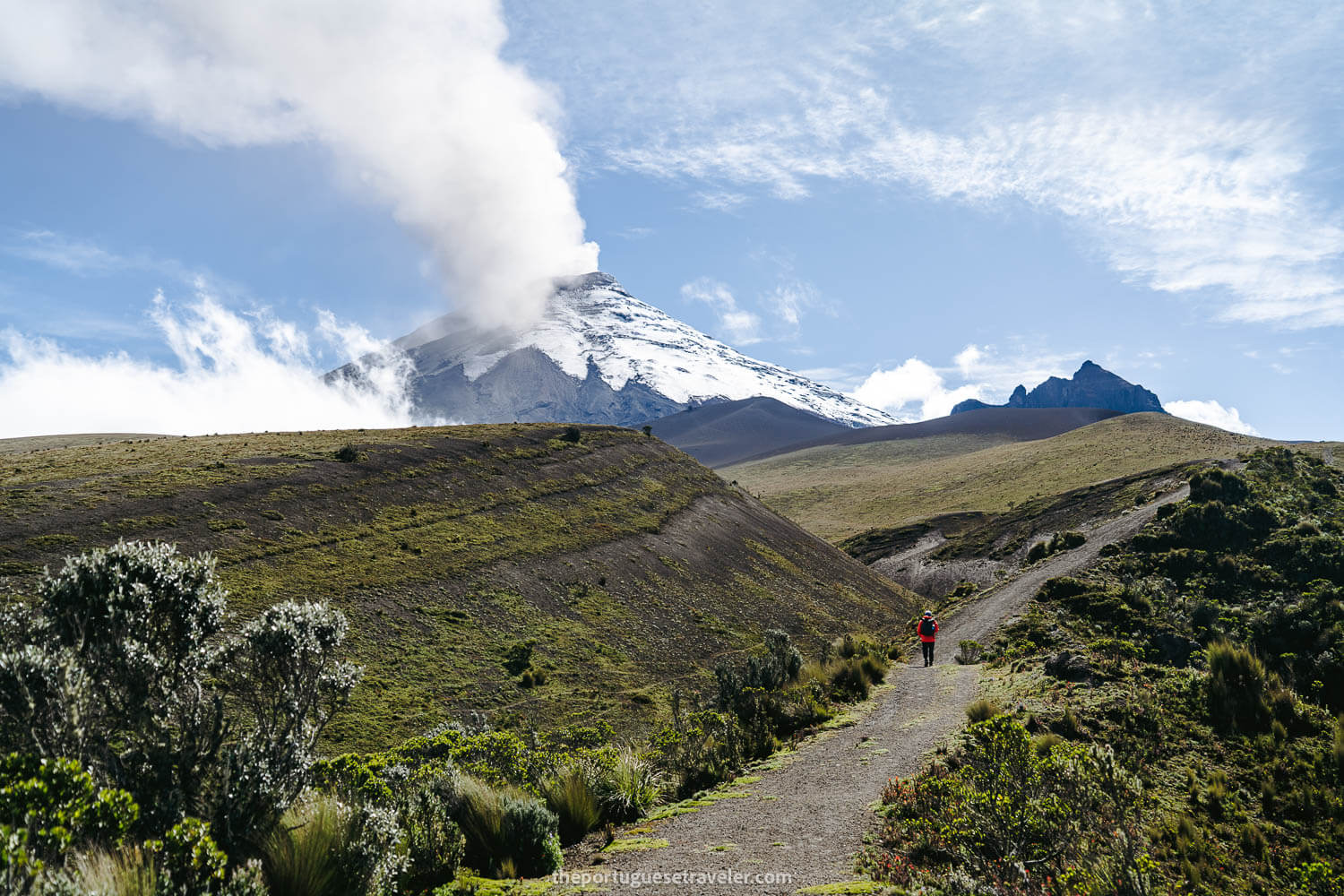
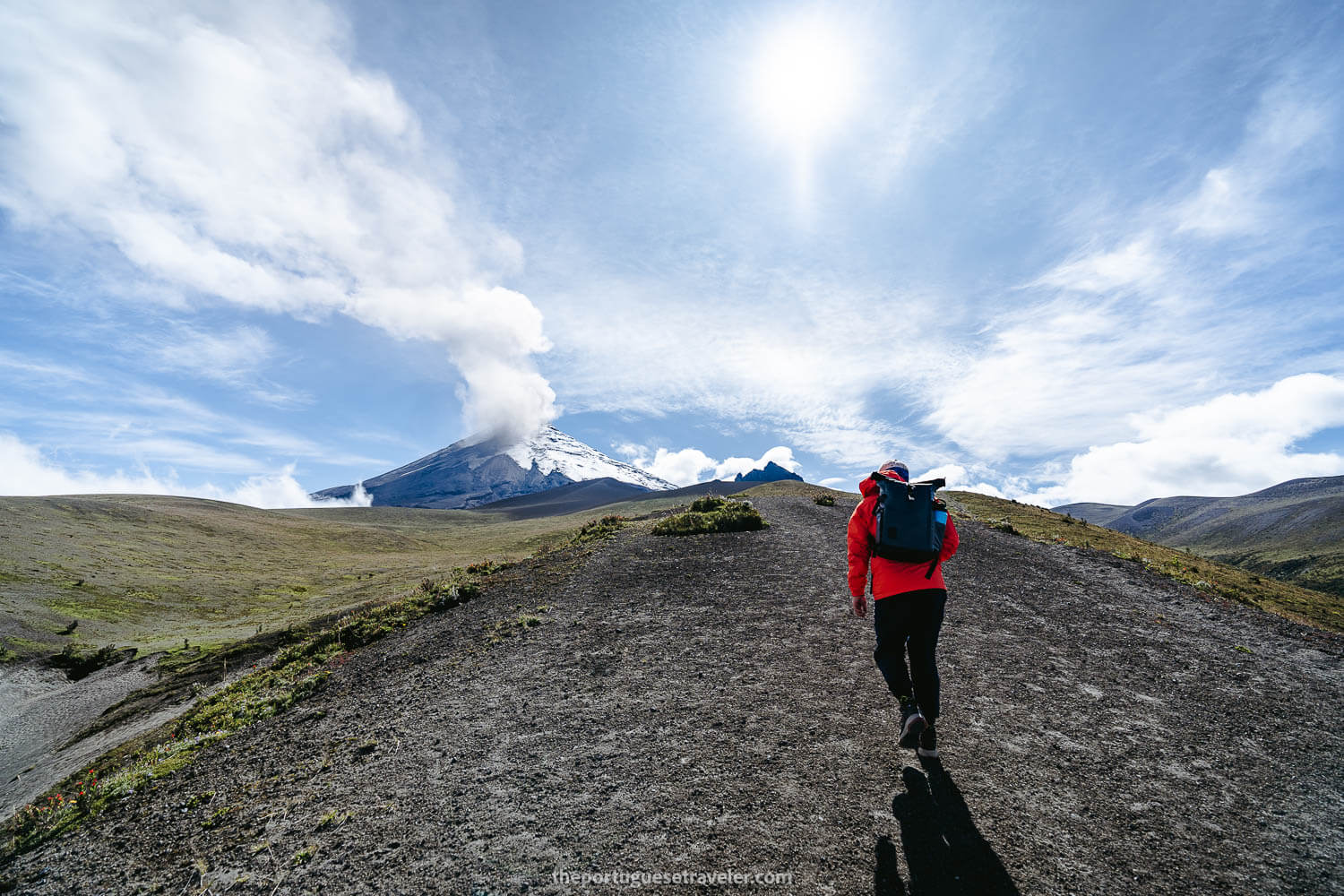
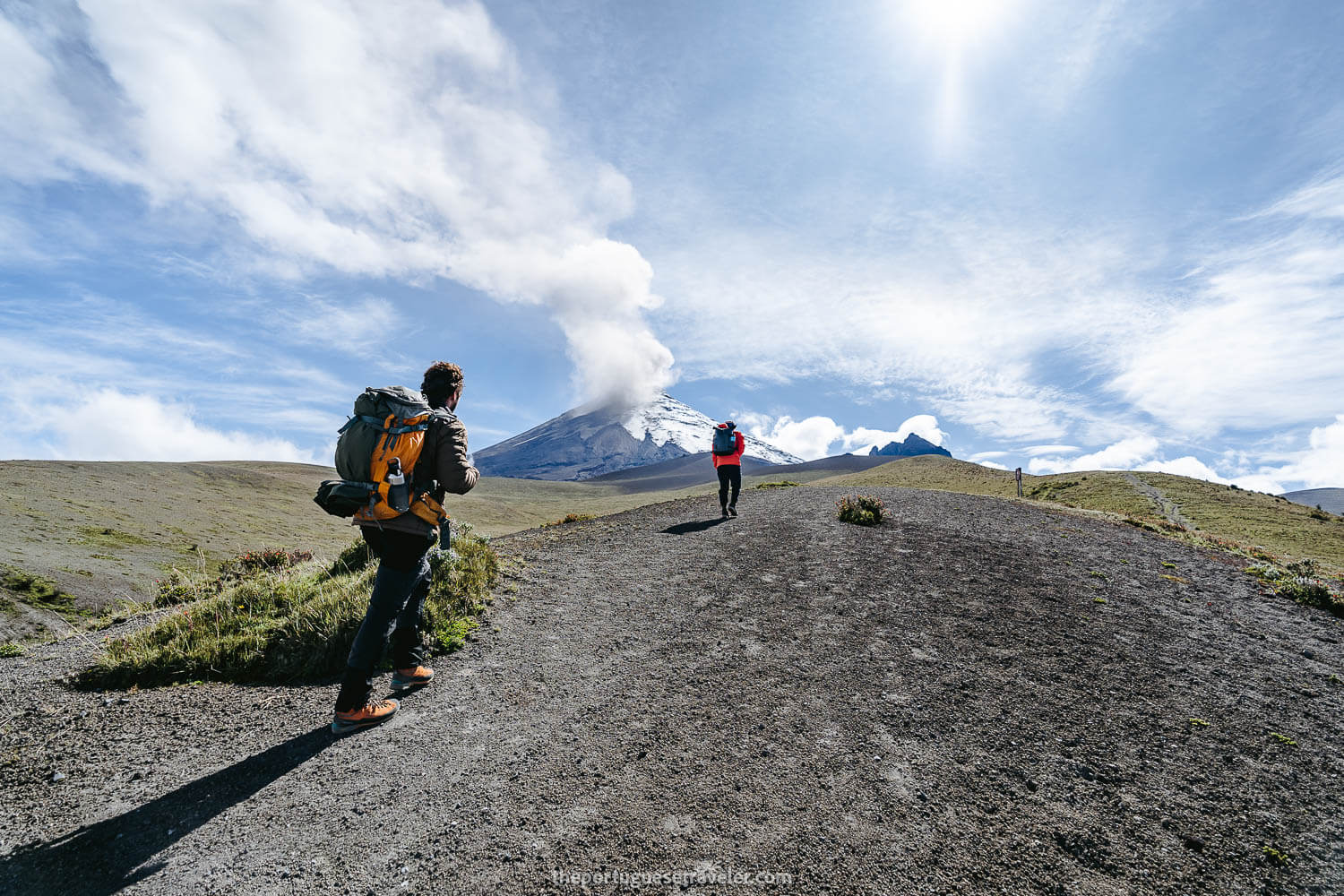
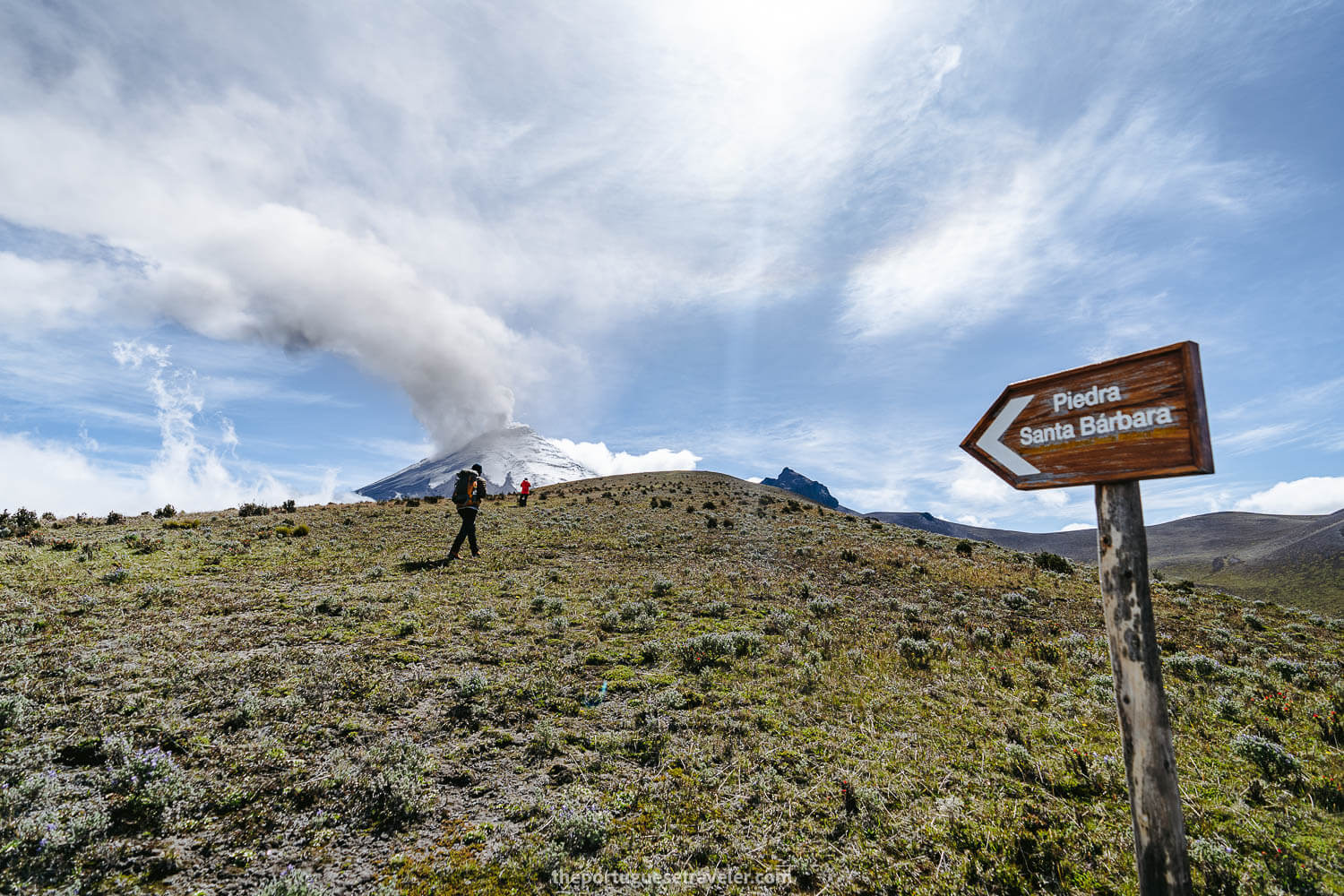
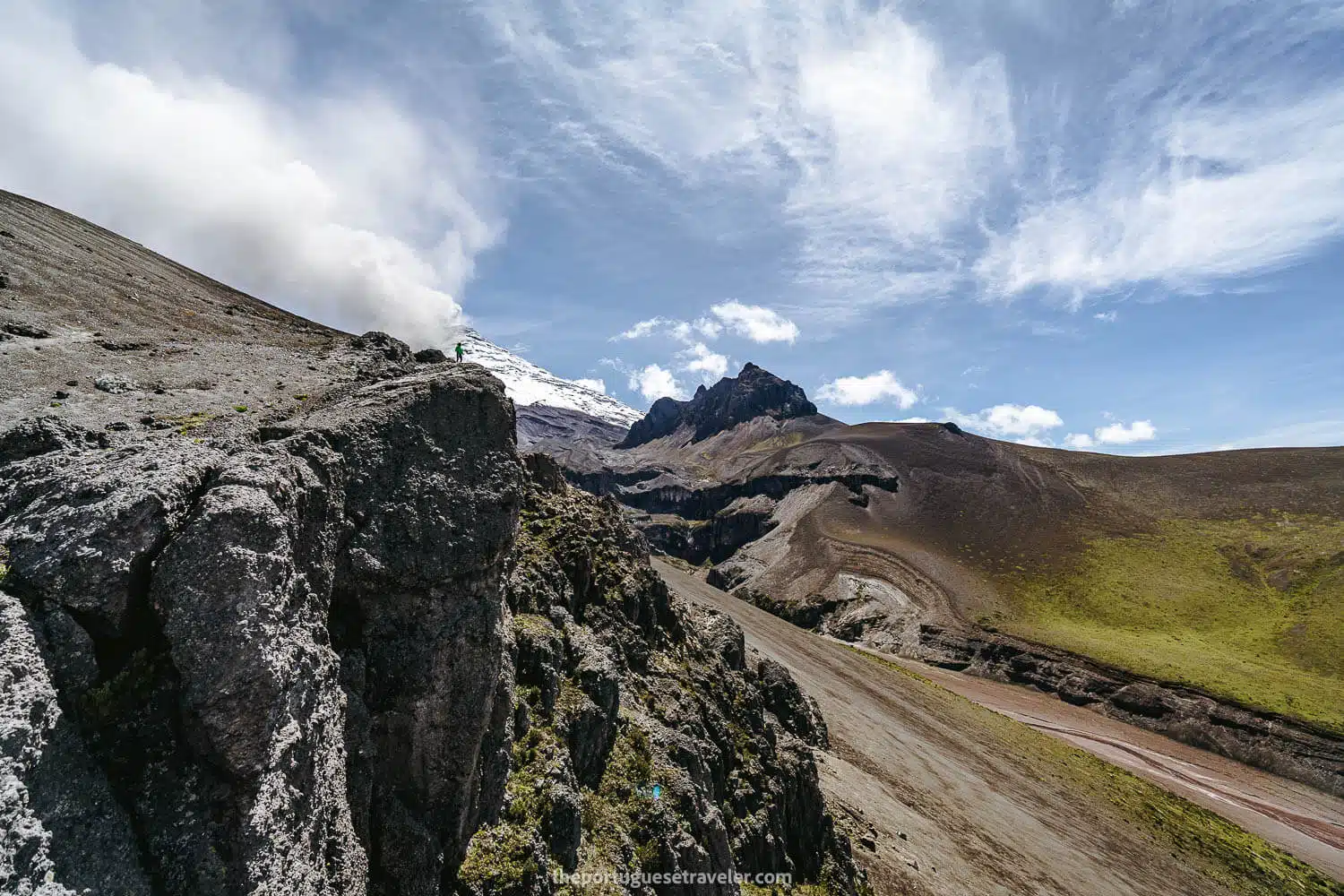
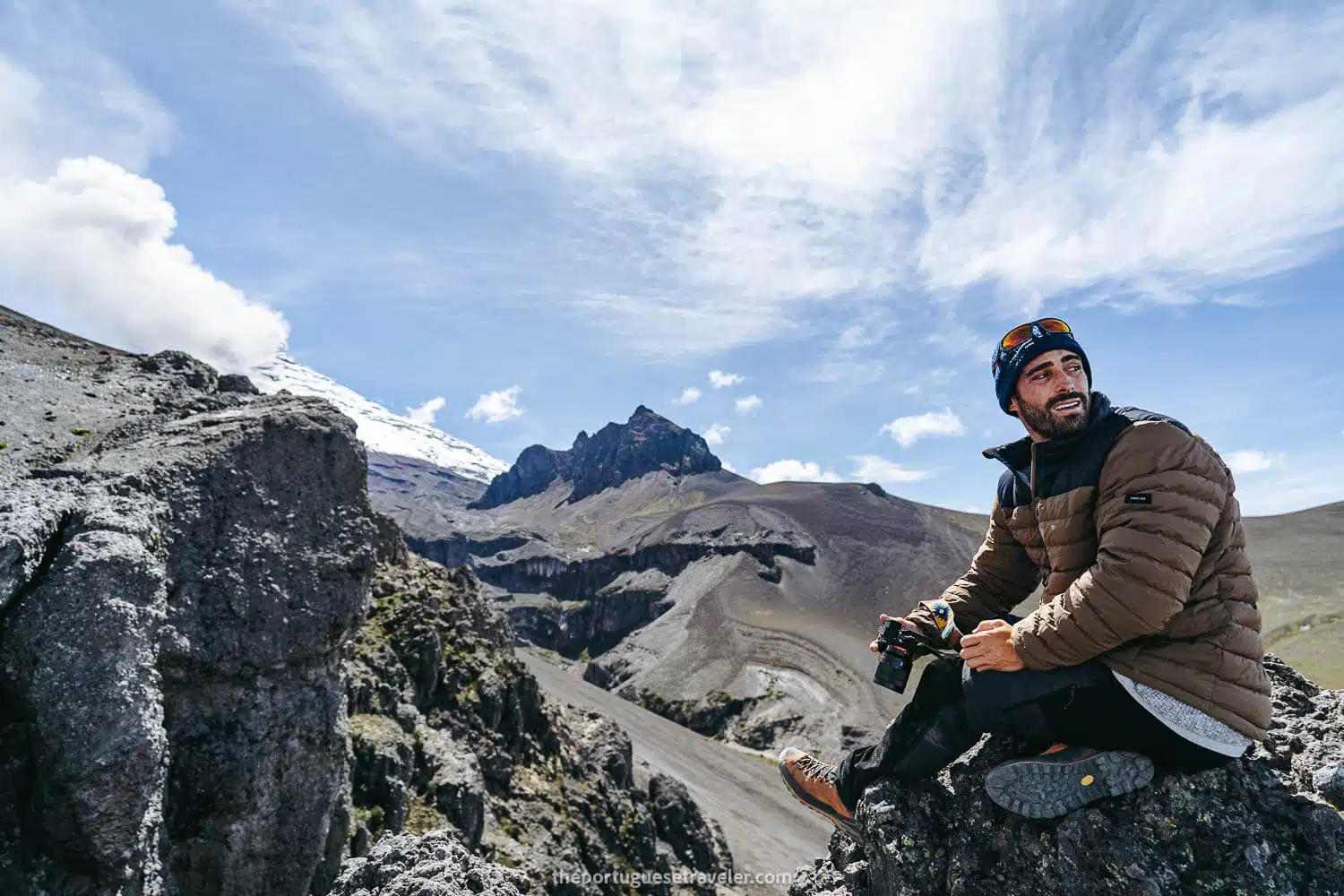
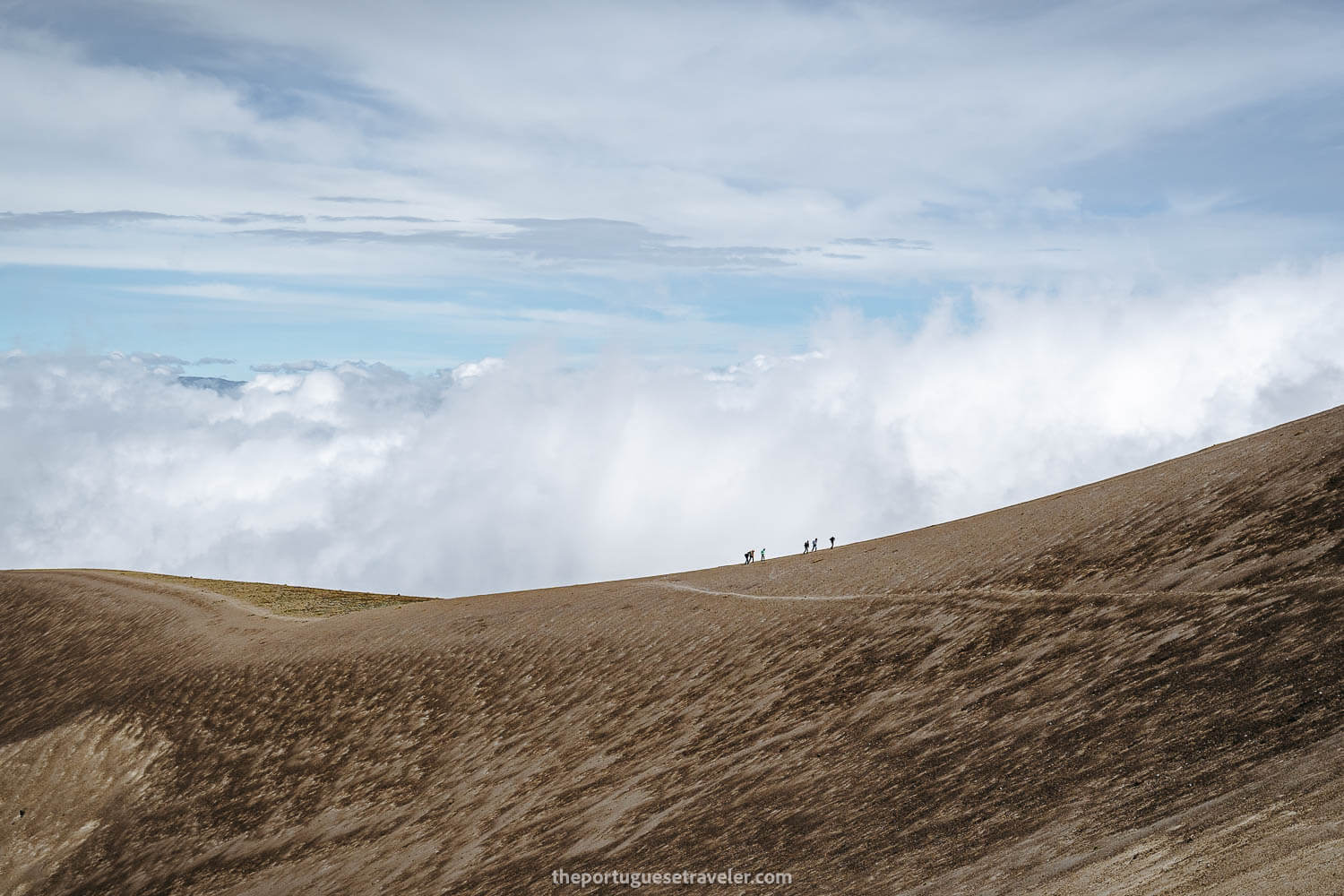
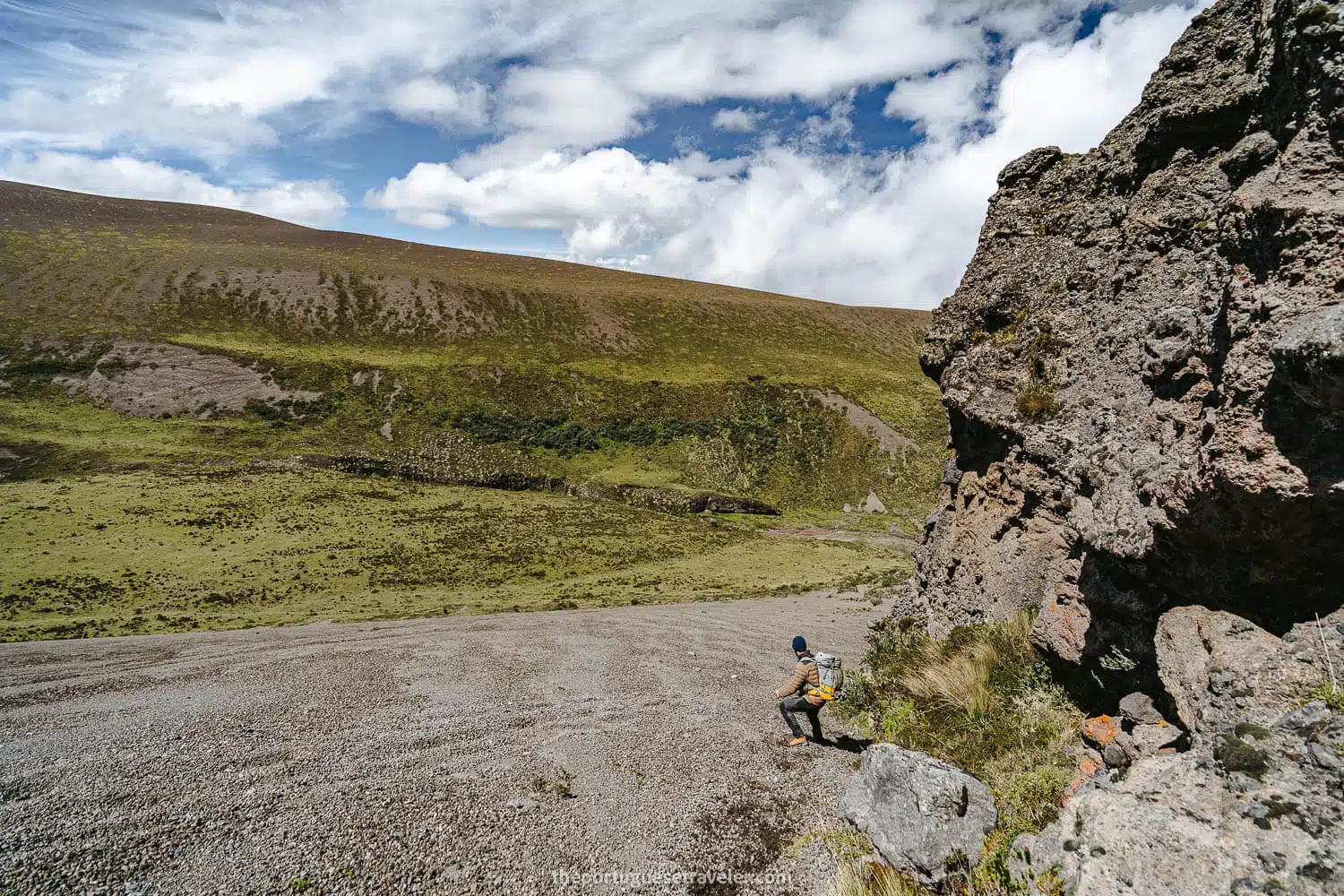
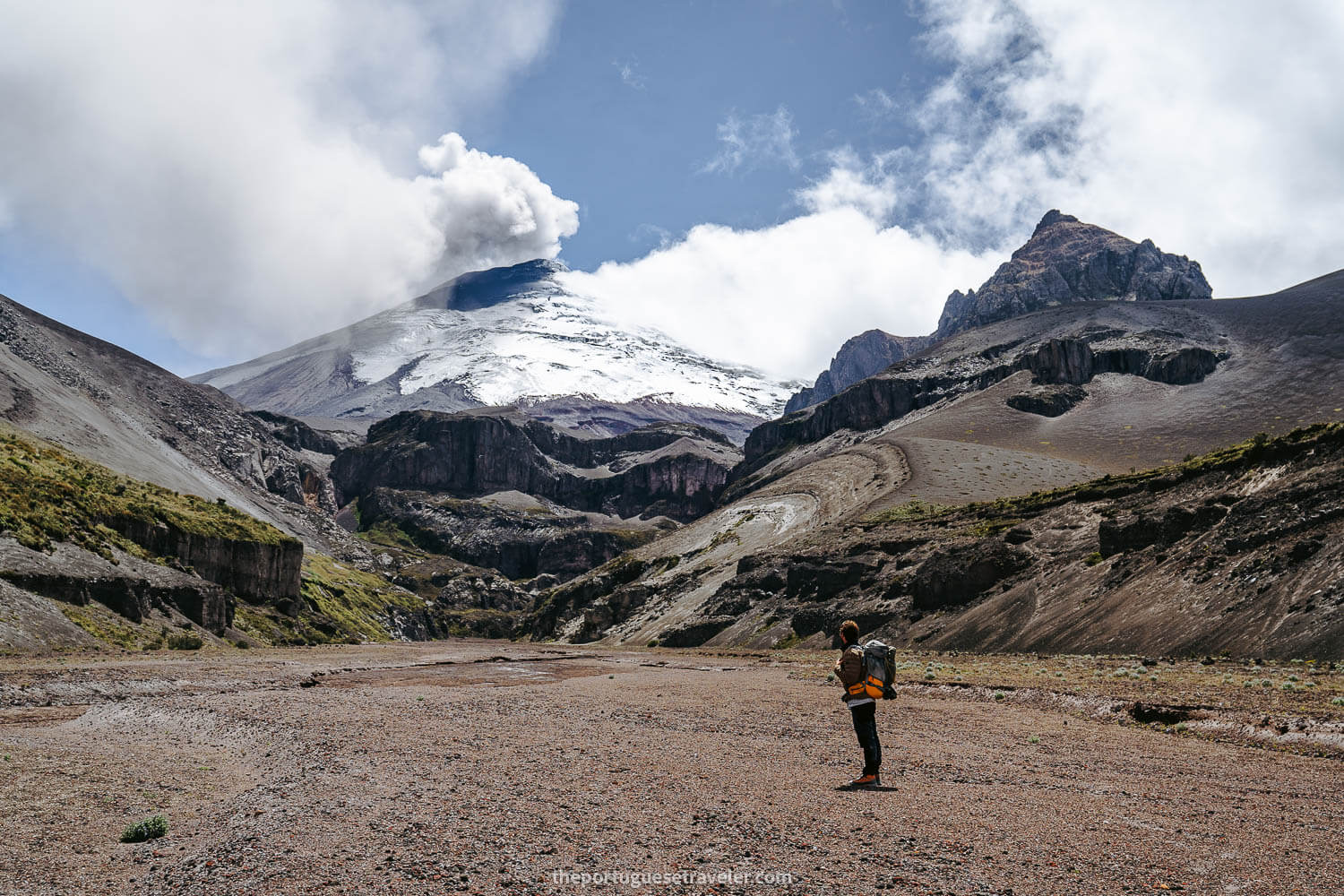
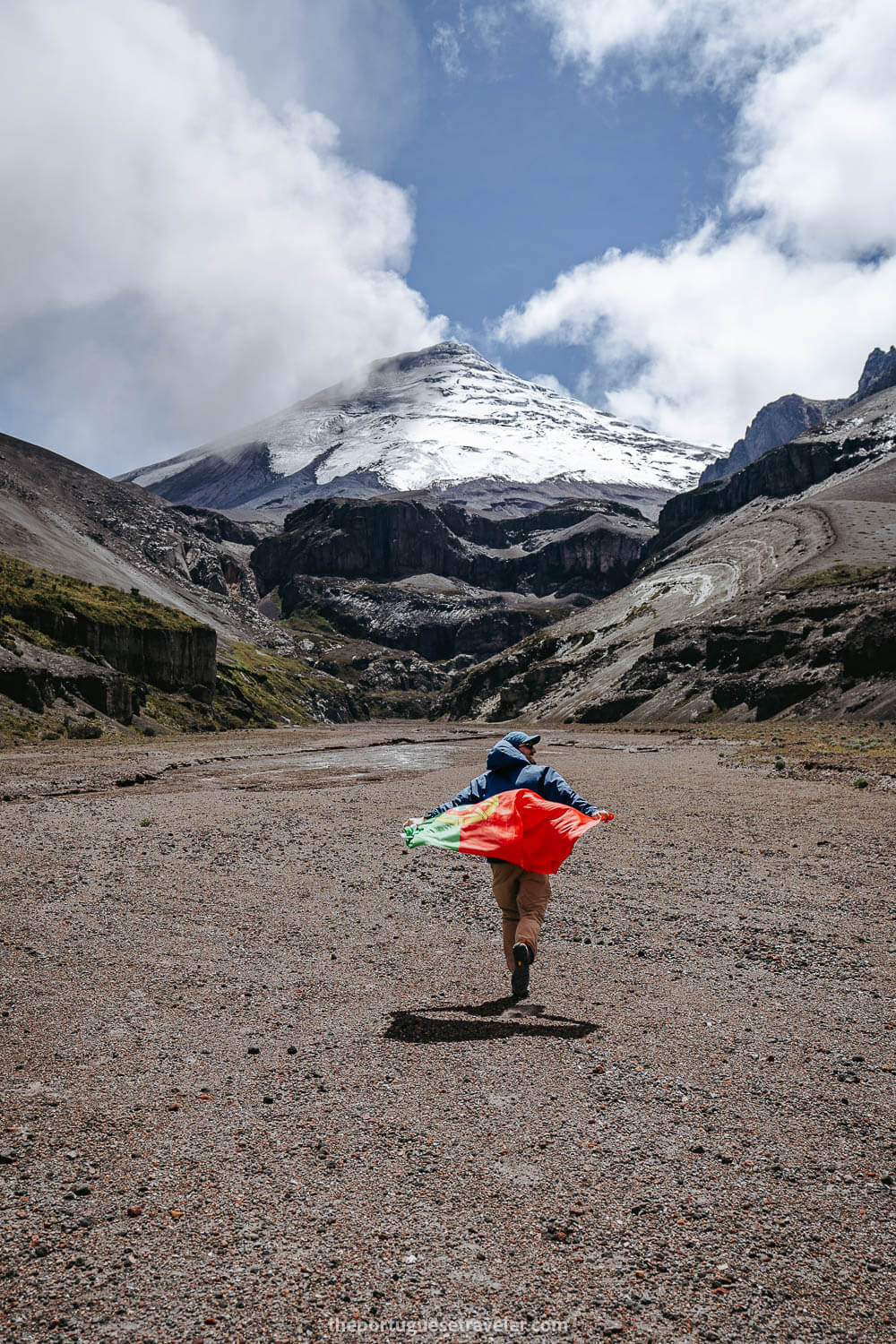
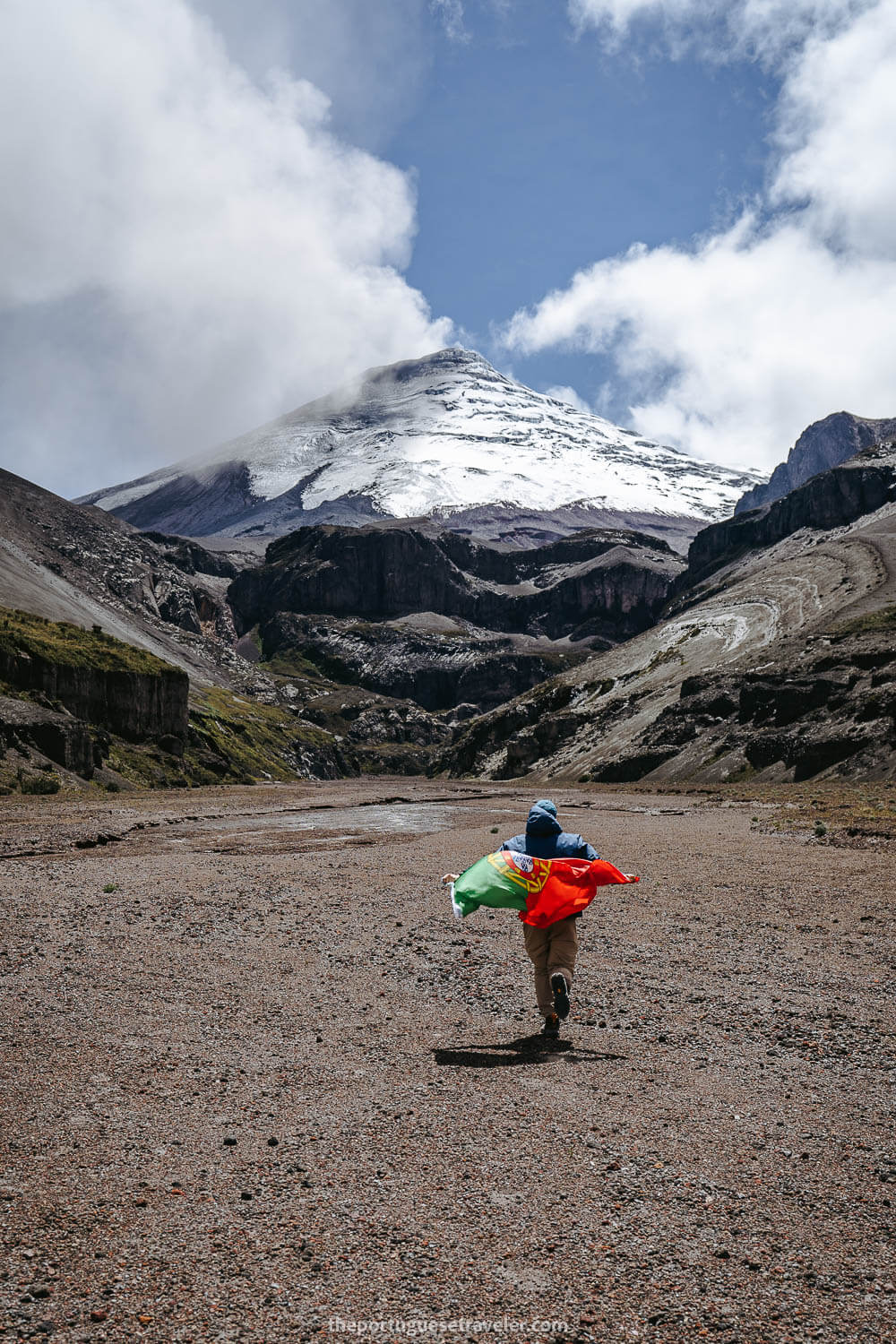
From the Canyon up until the Glaciers viewpoint
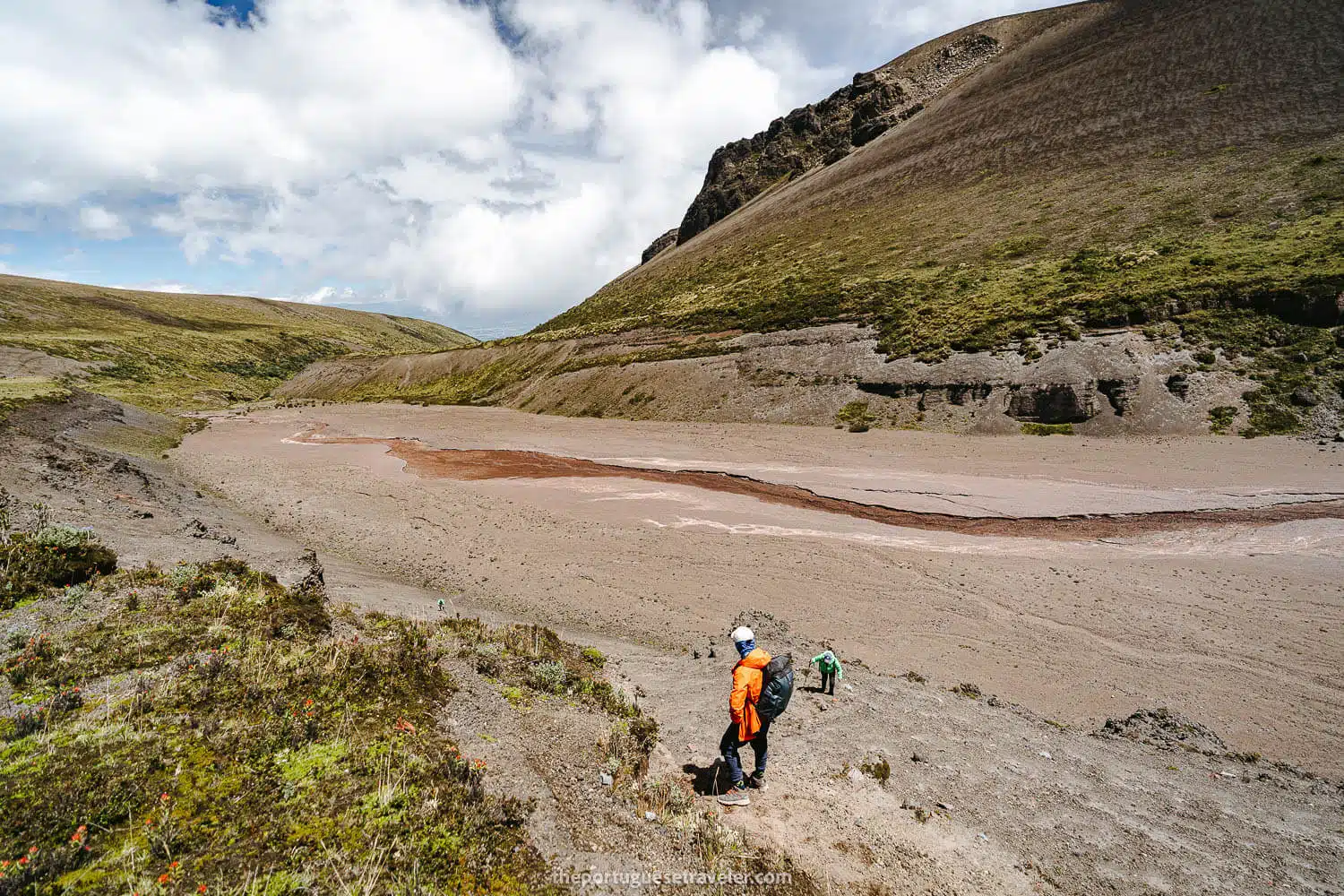
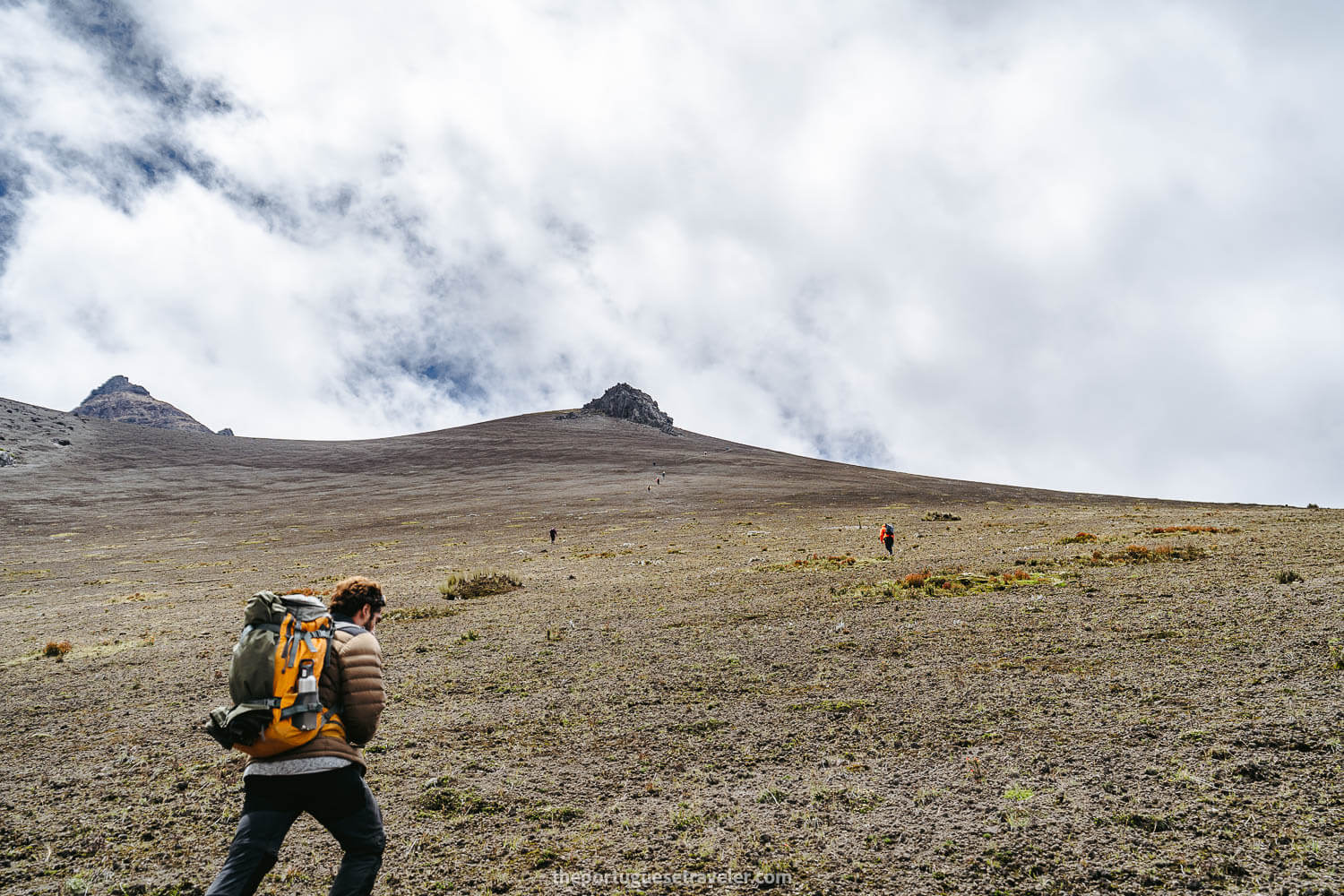
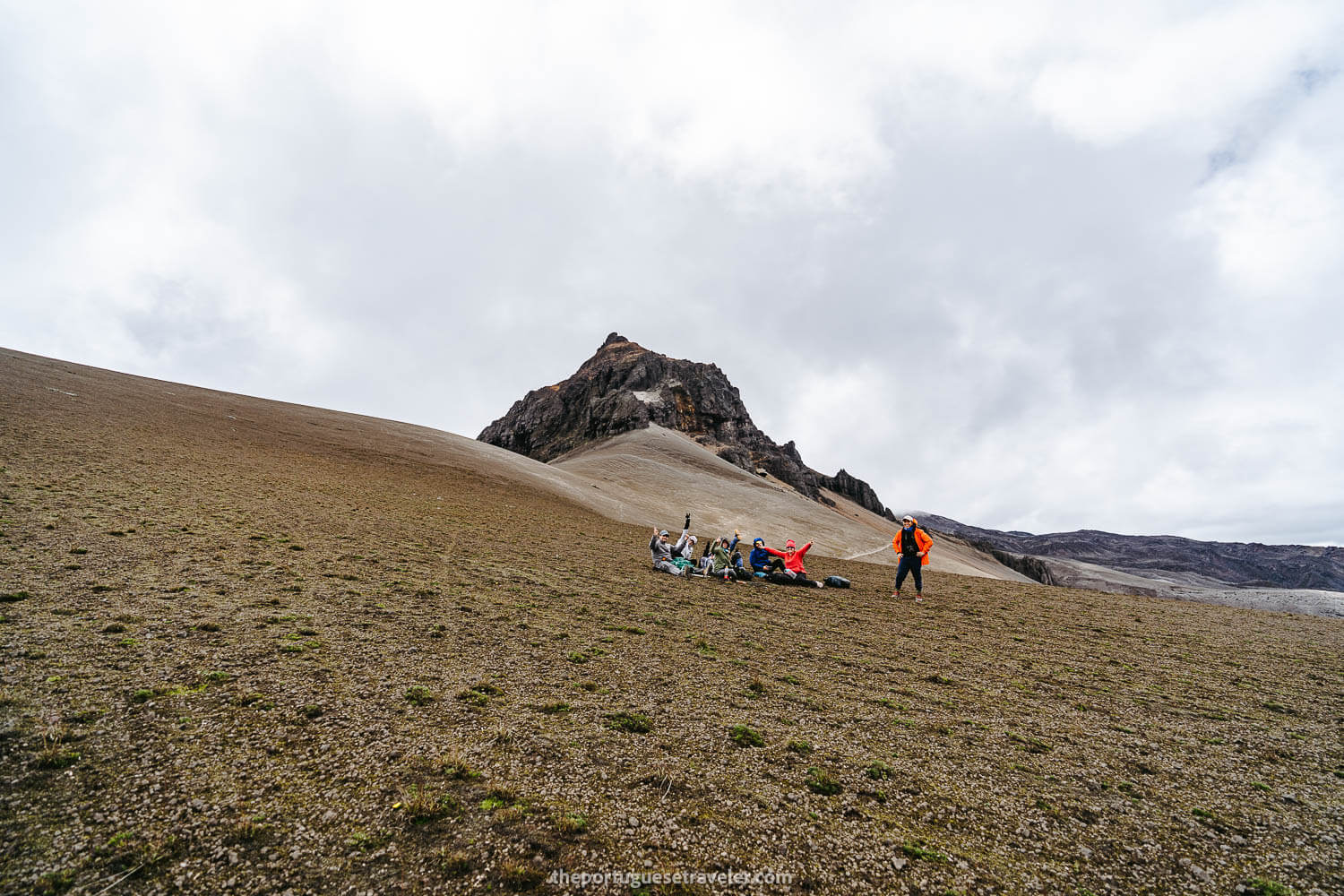
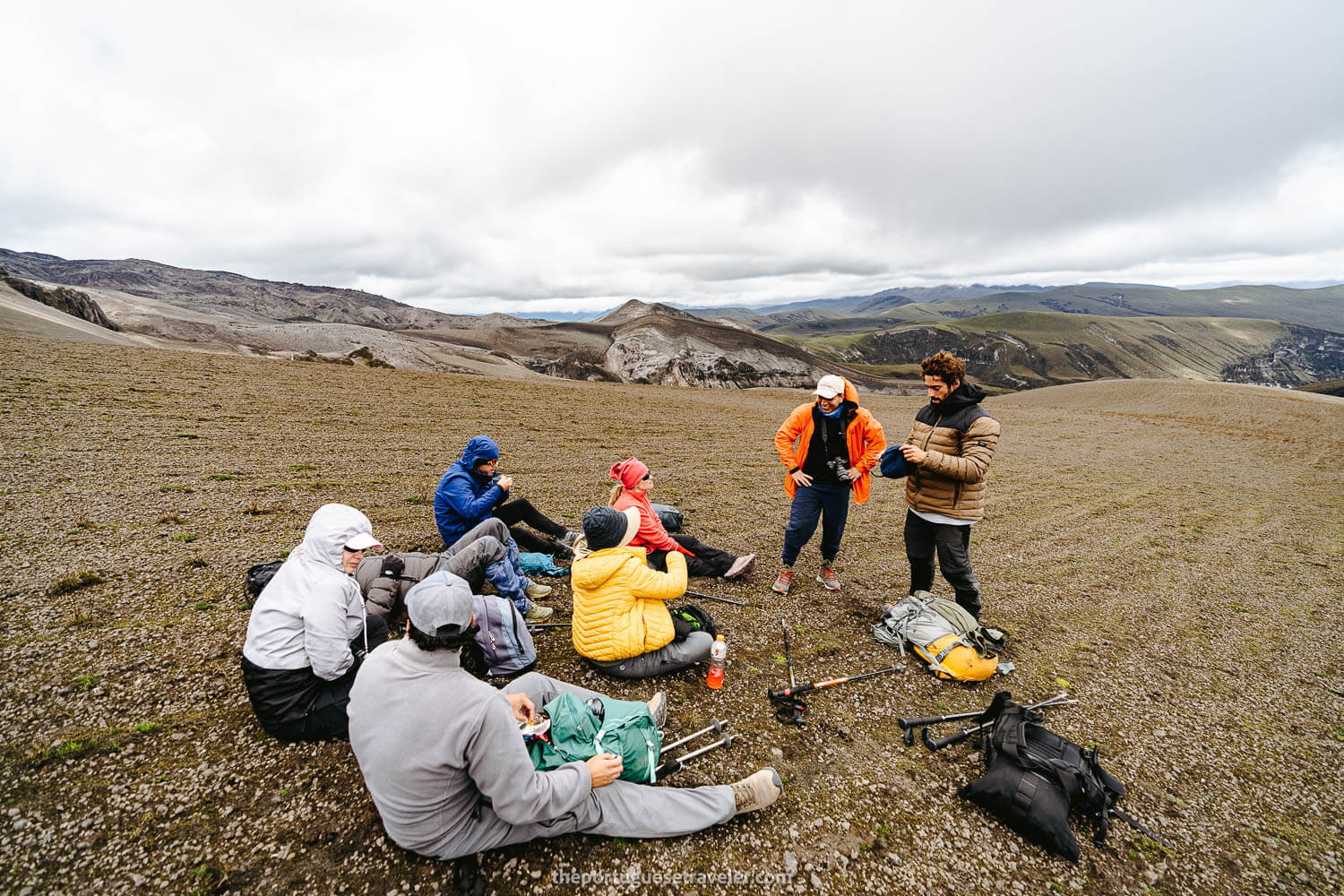
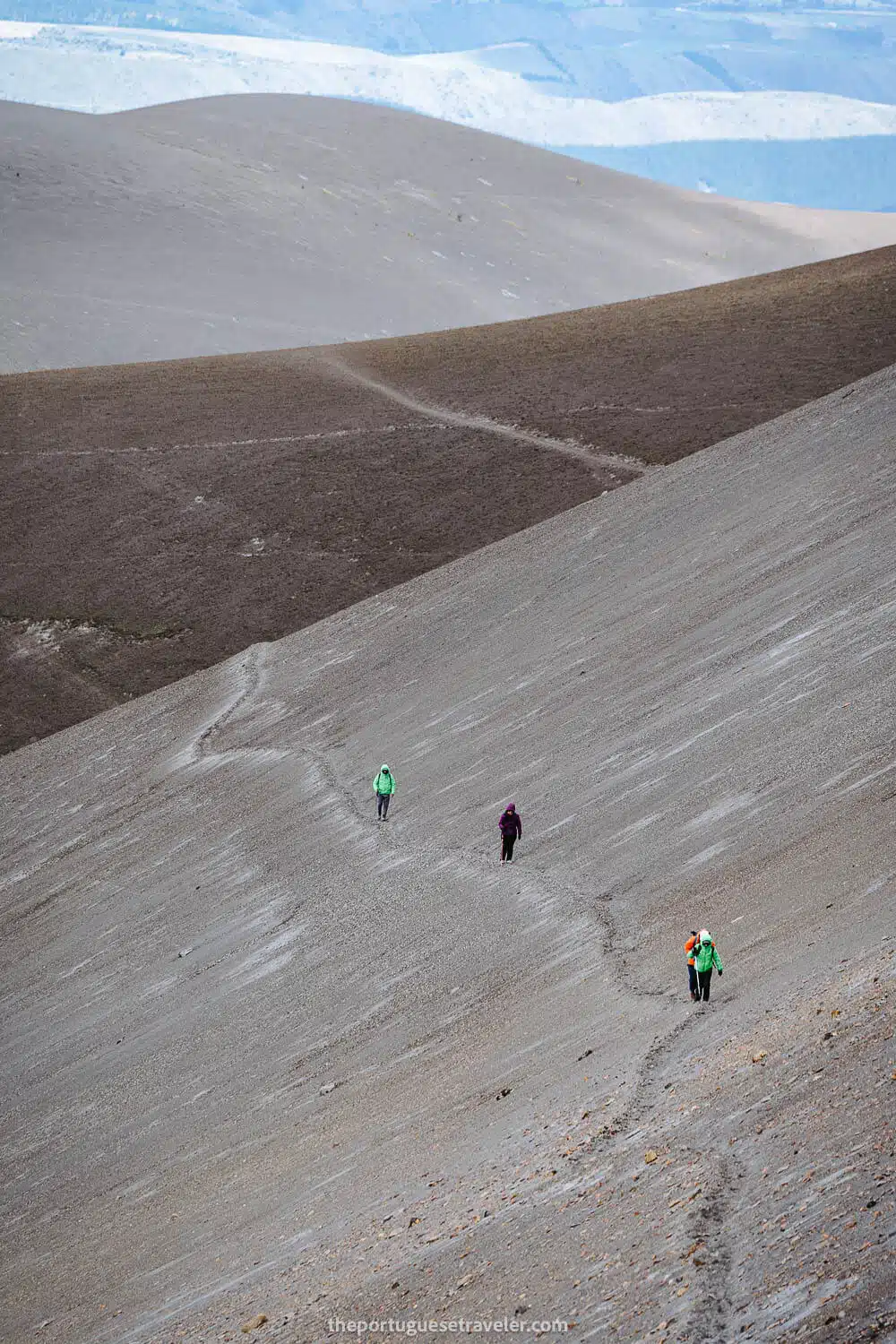
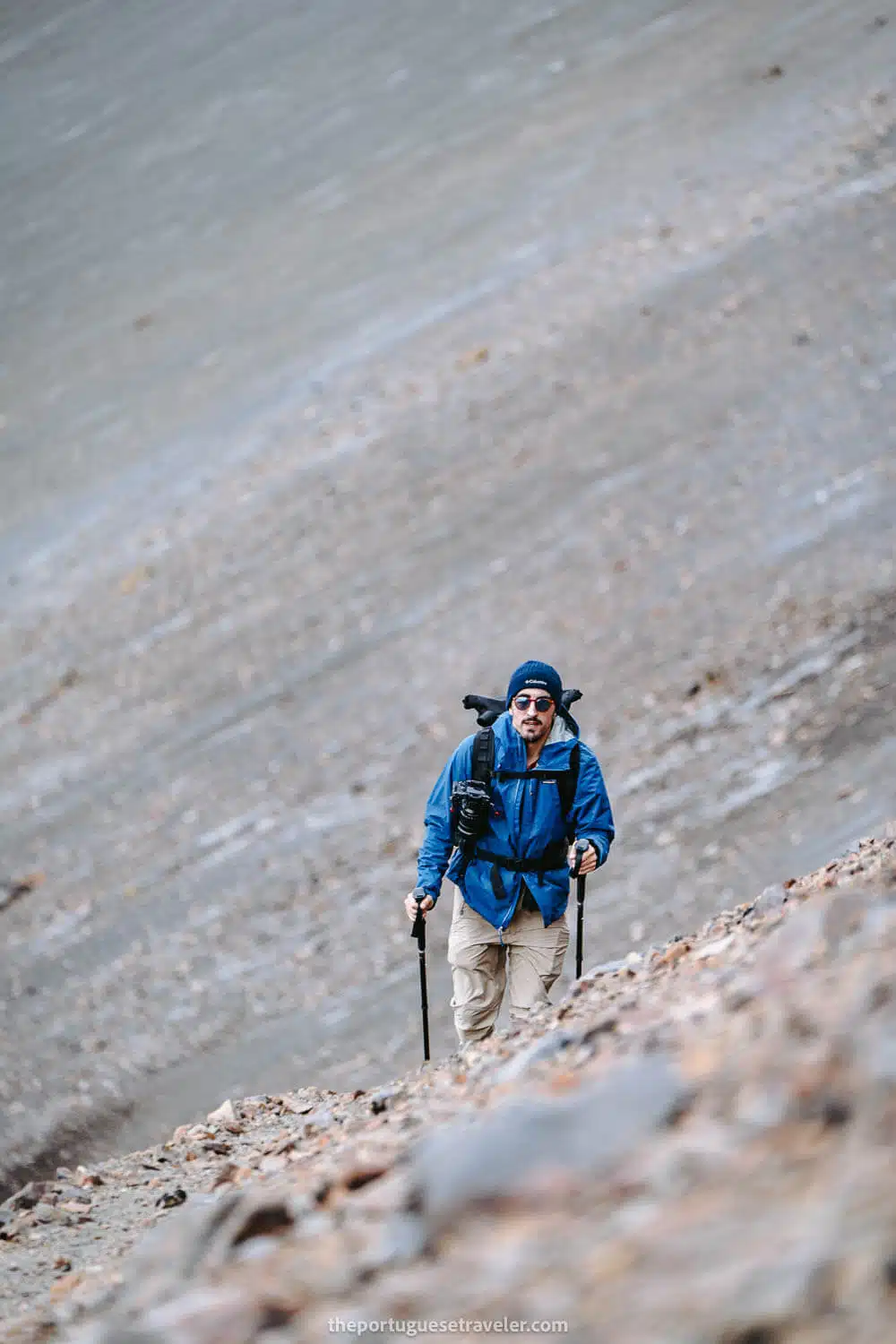
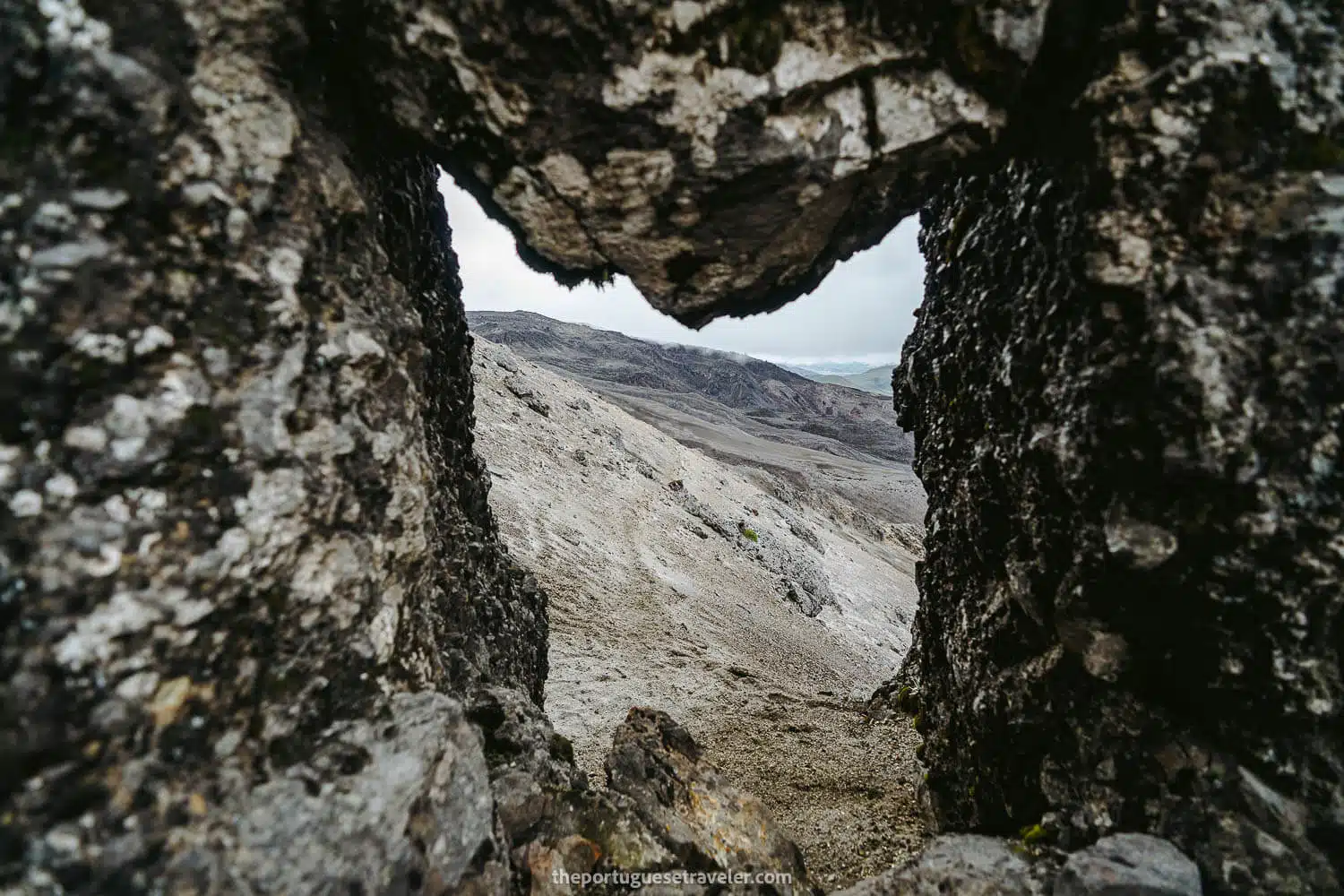
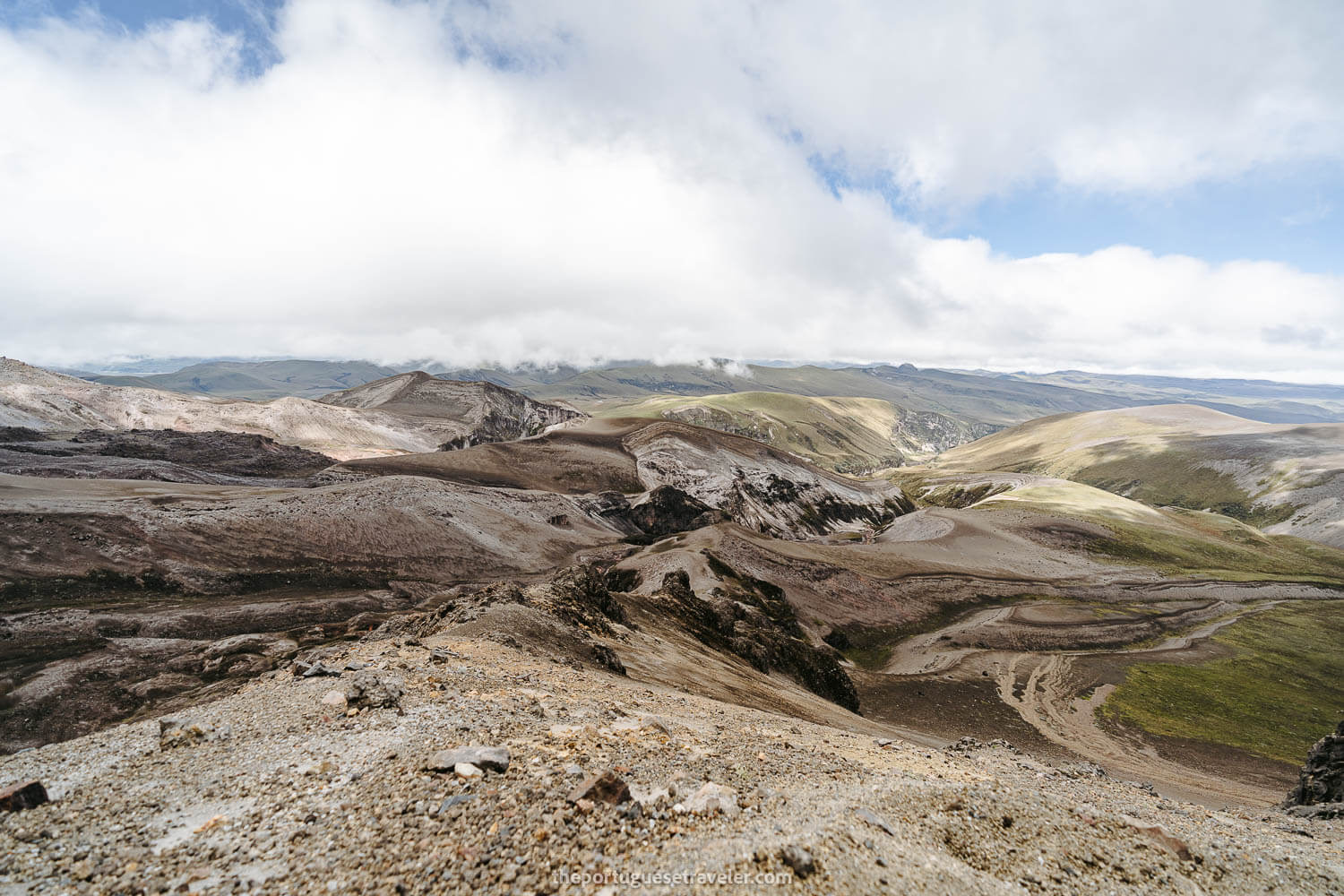
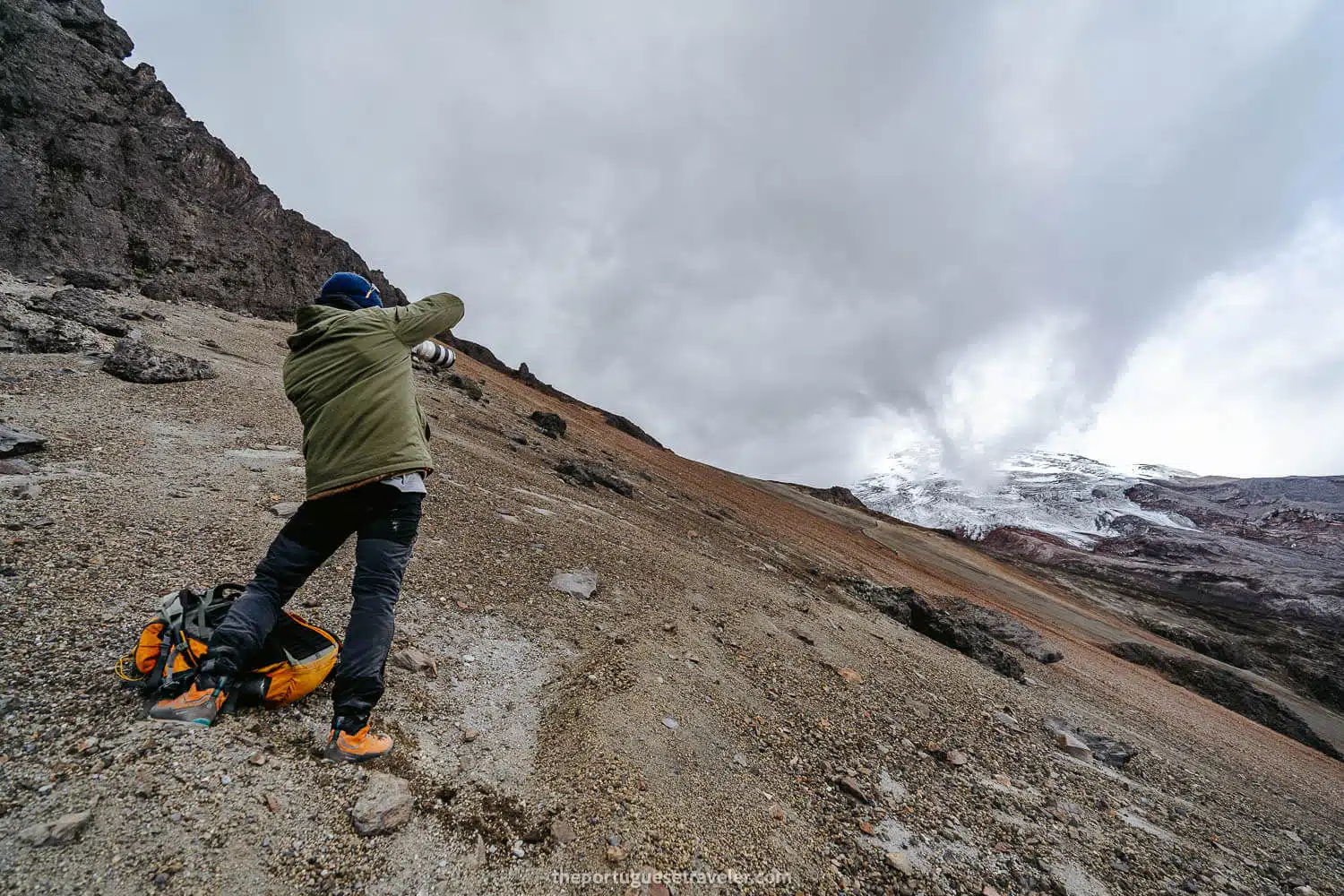
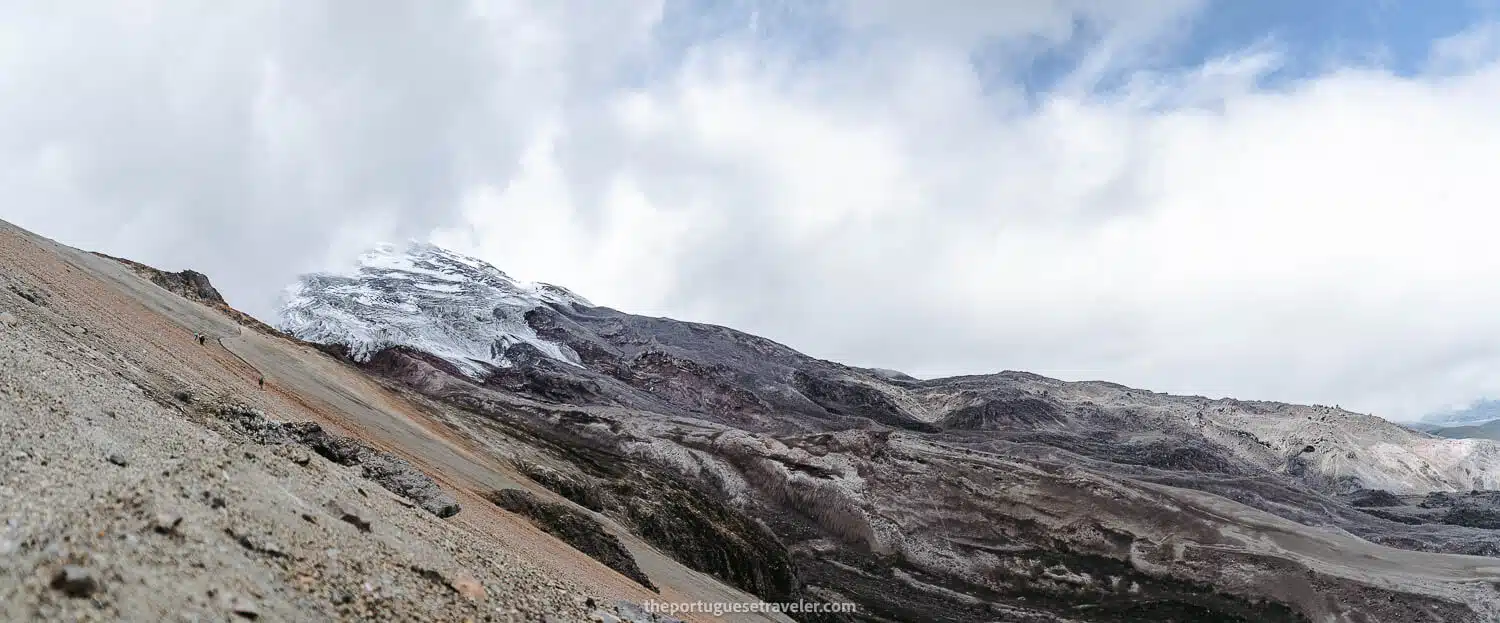
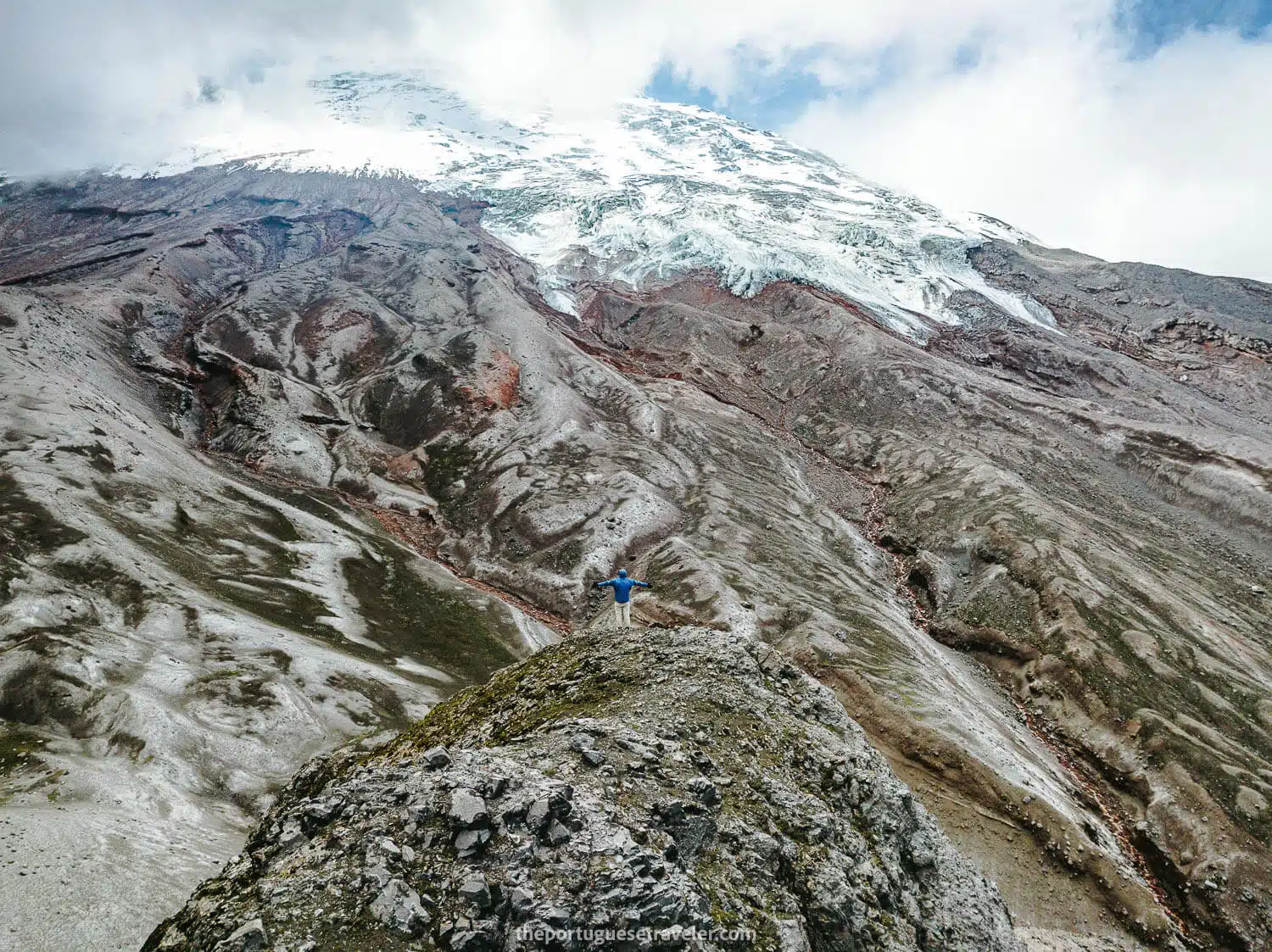
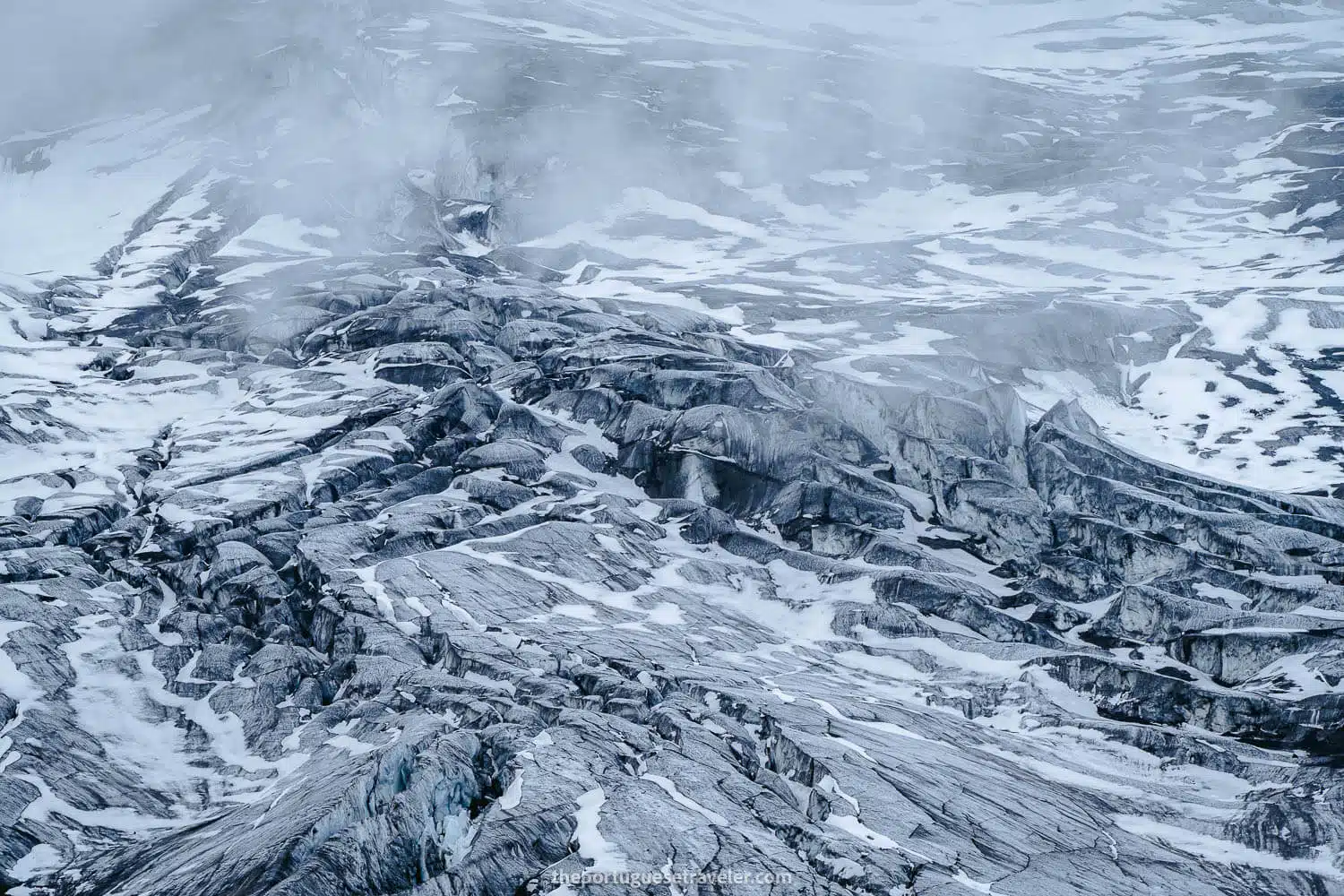
From the Glaciers viewpoint back to the Refuge
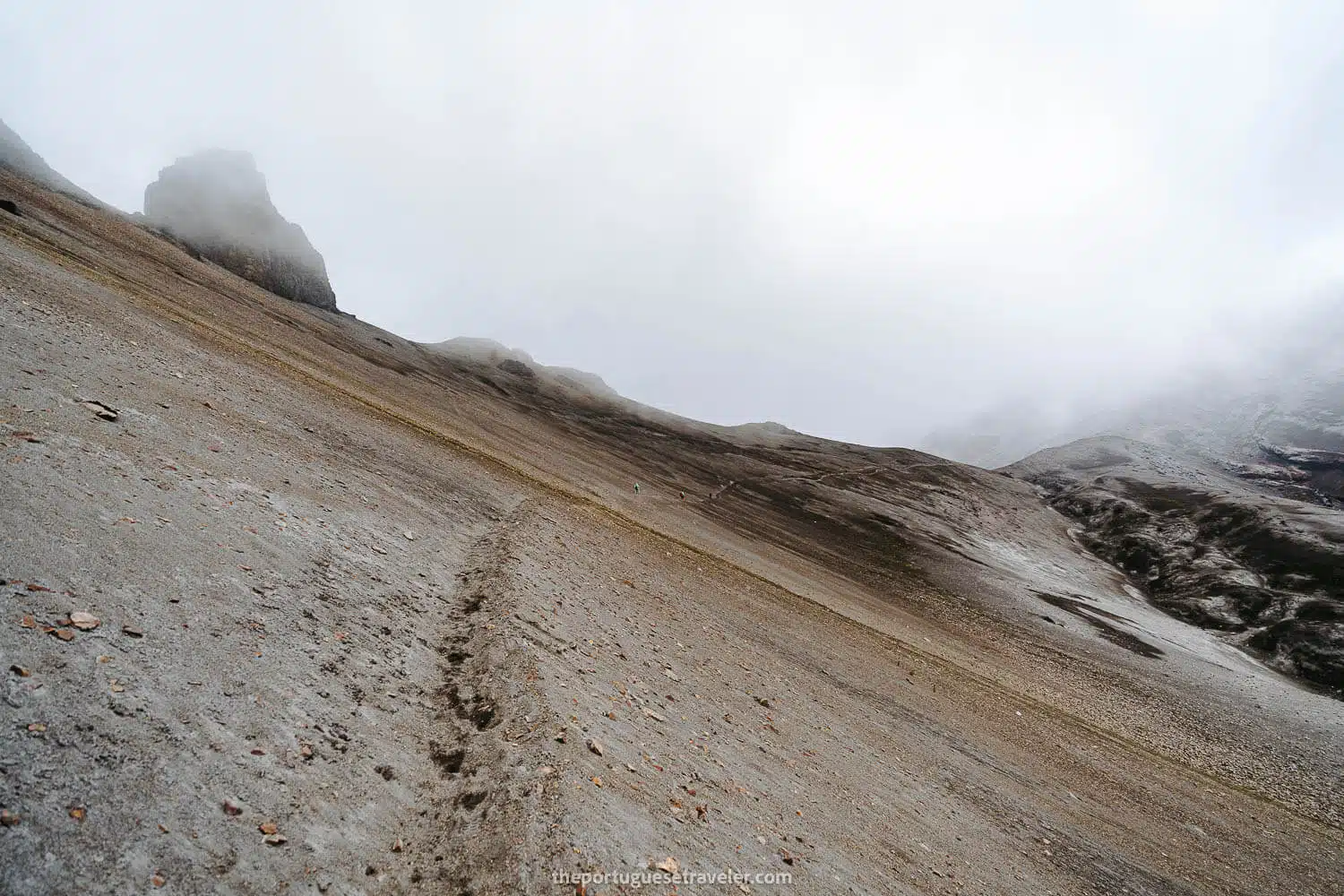
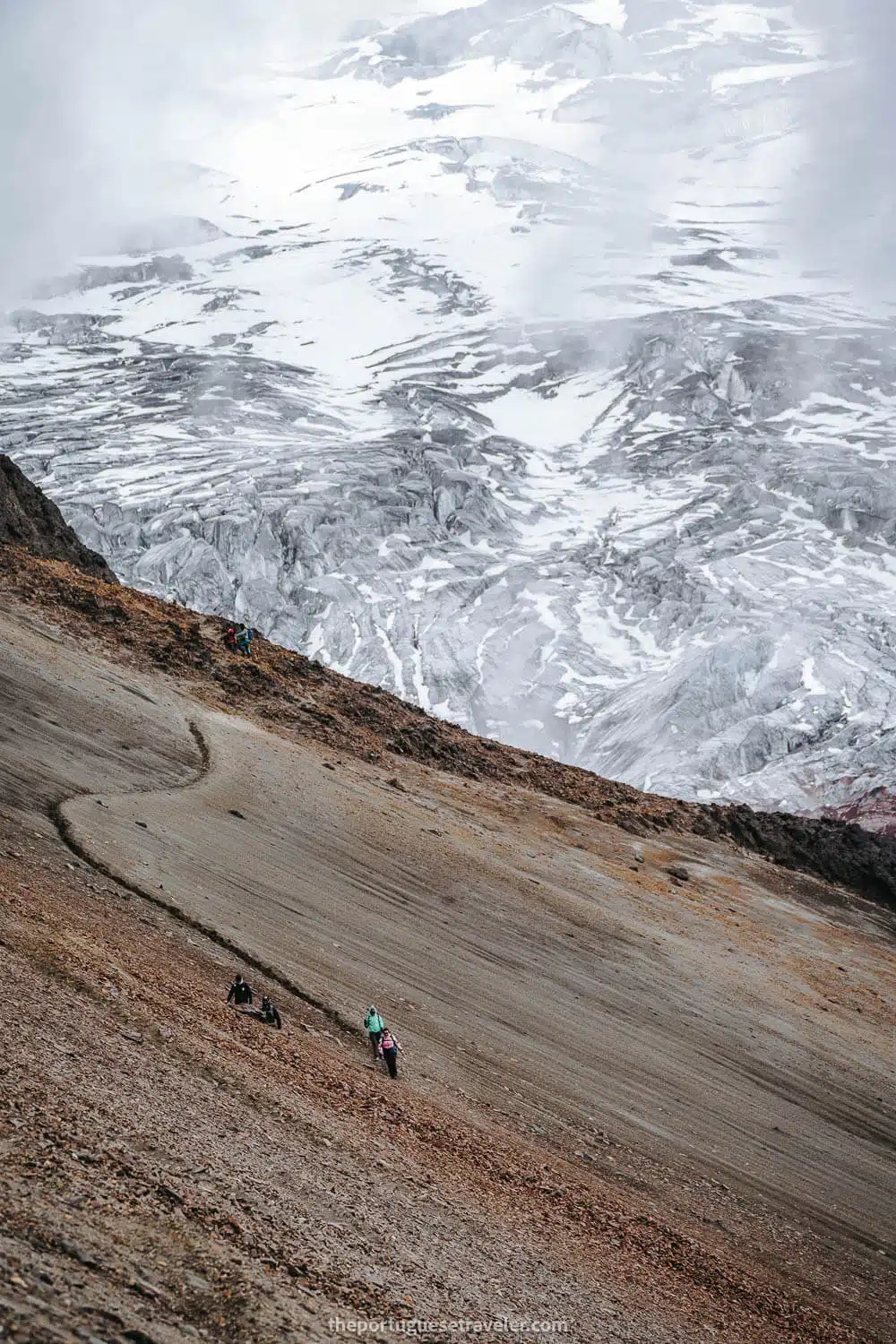
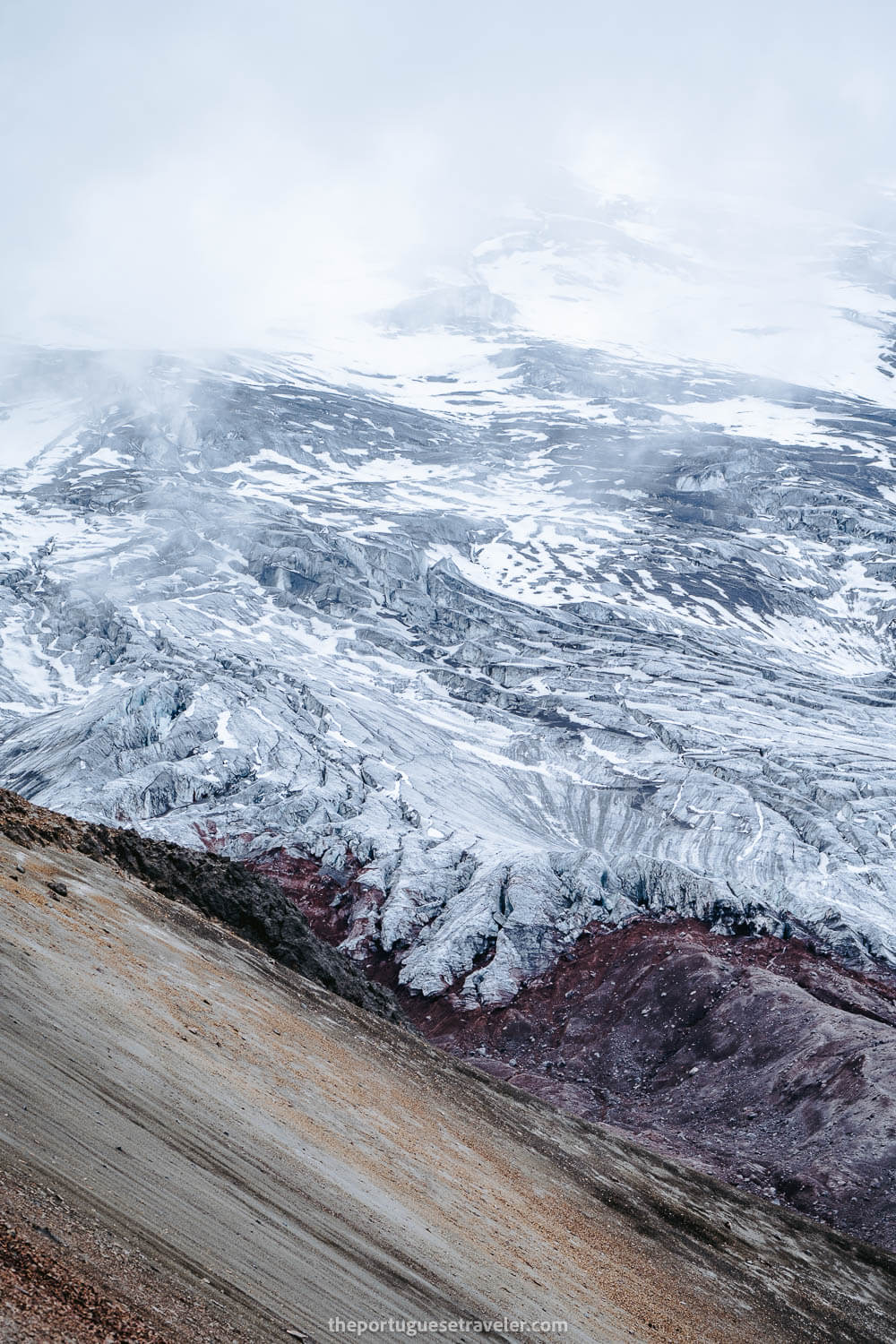
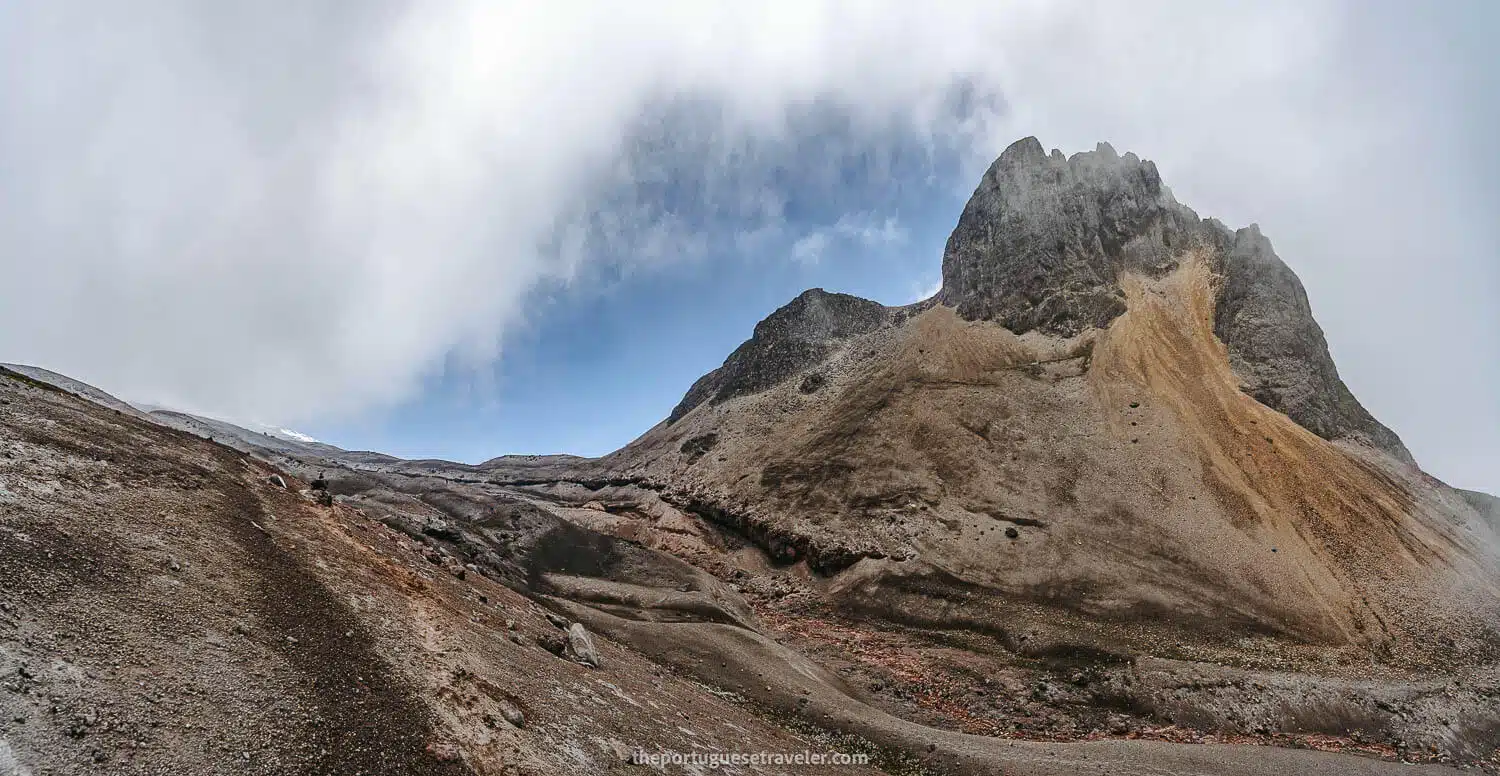
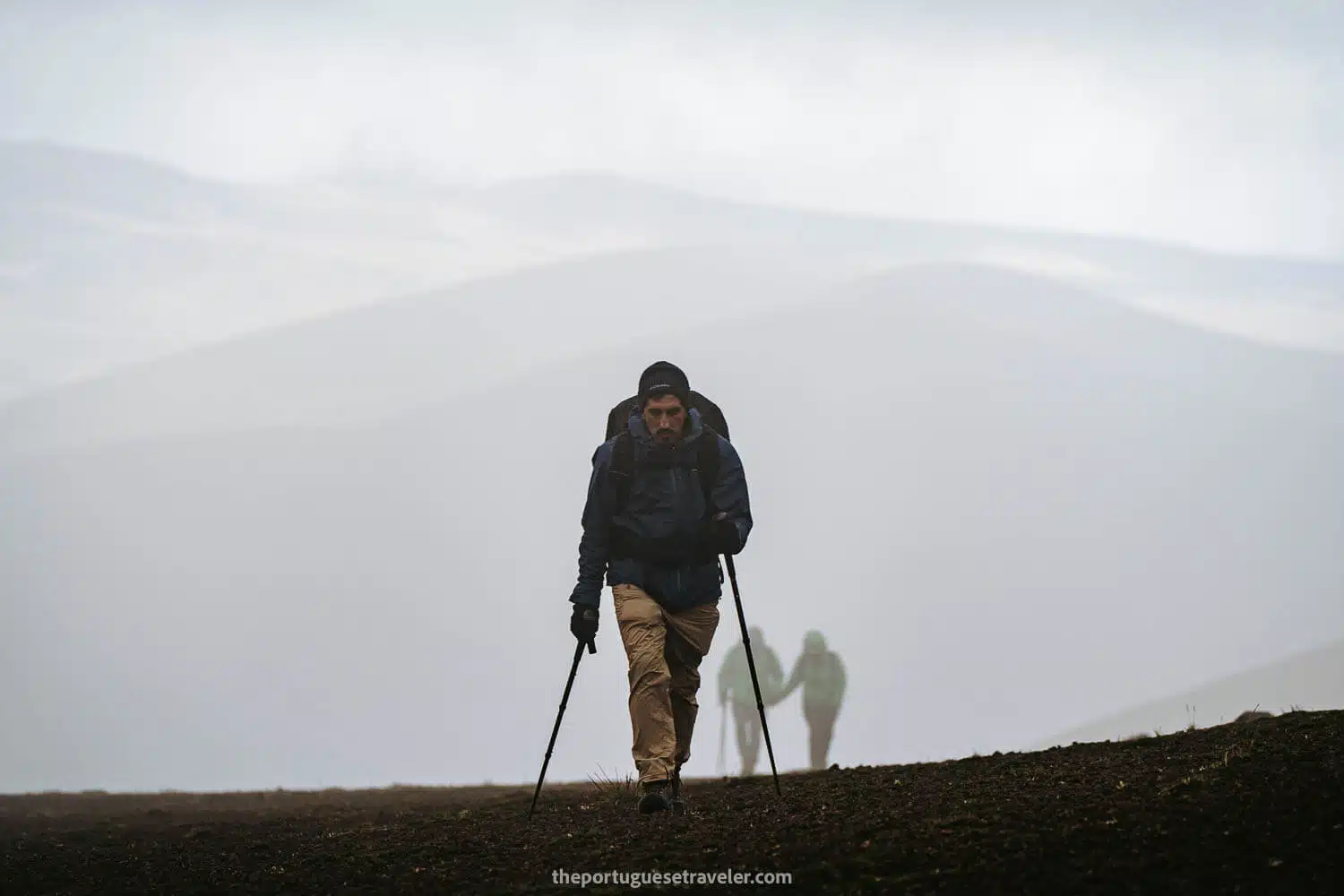
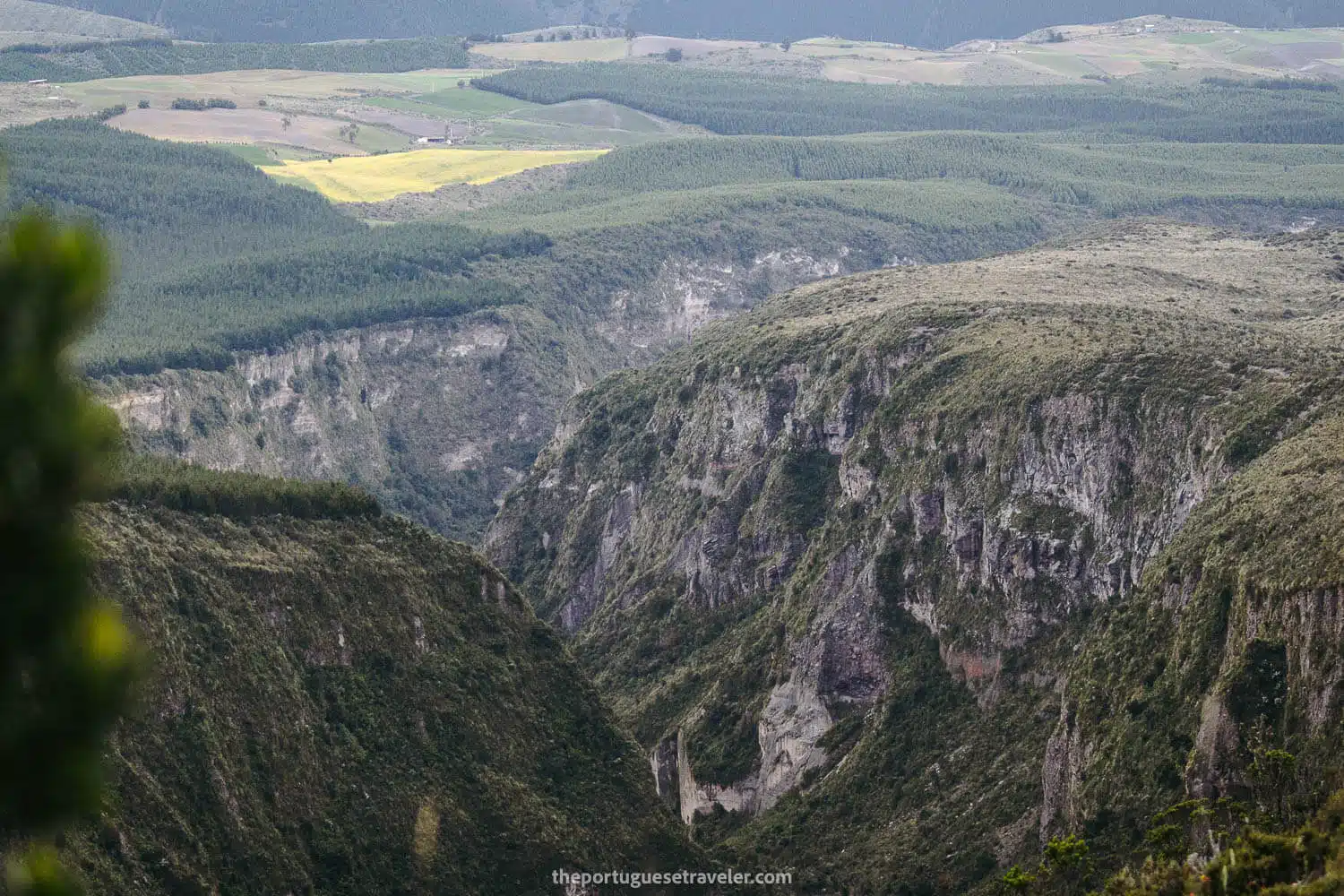
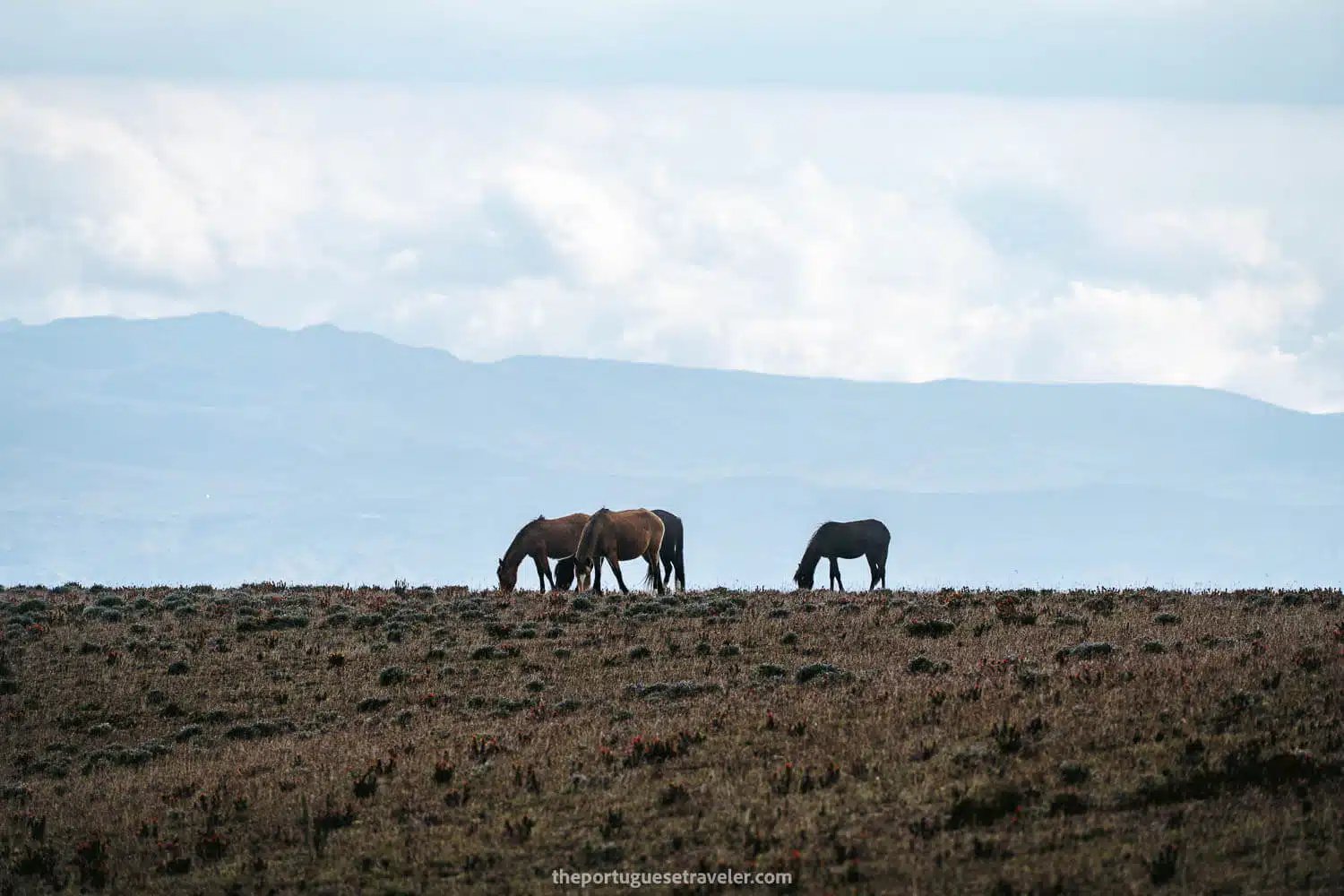
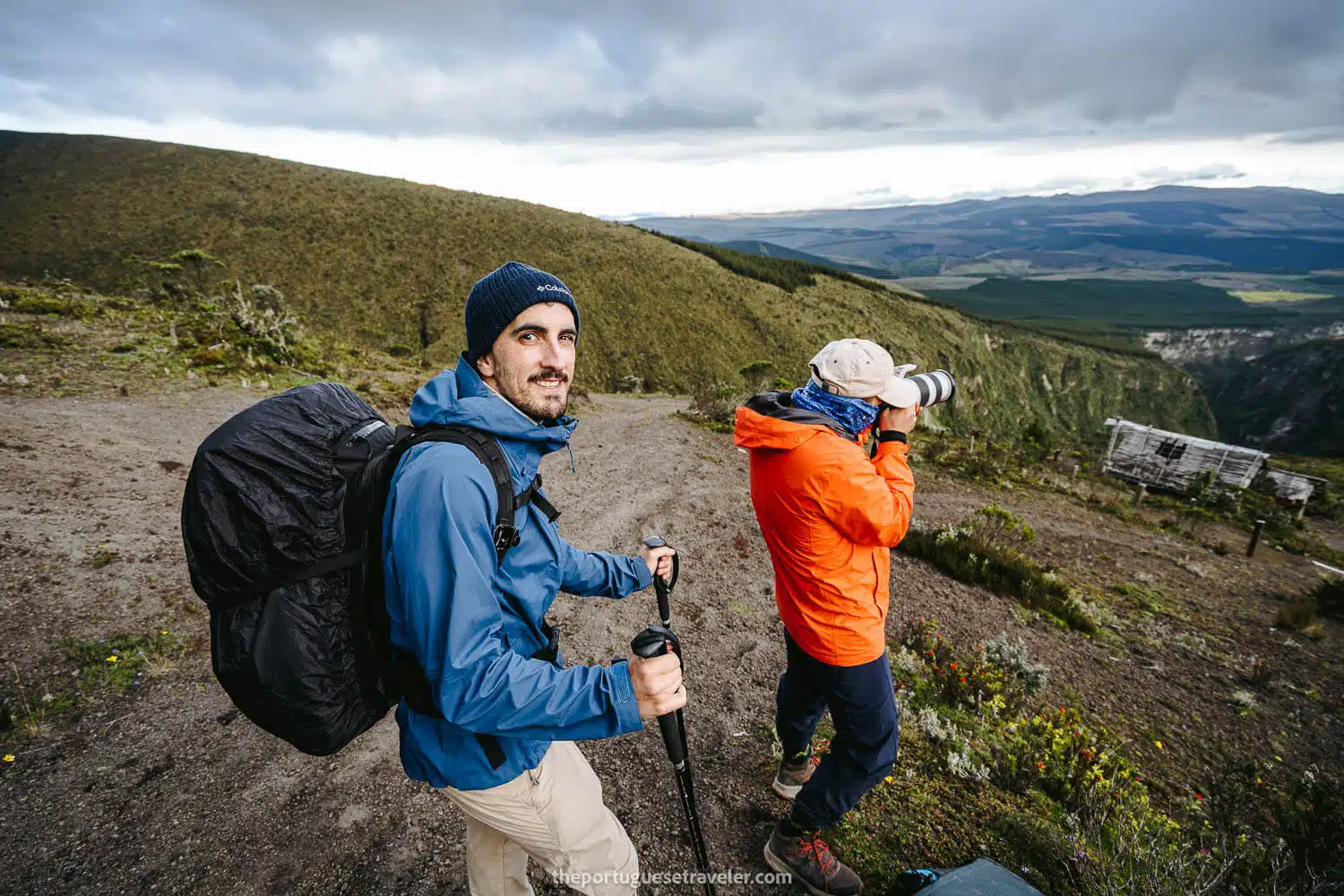
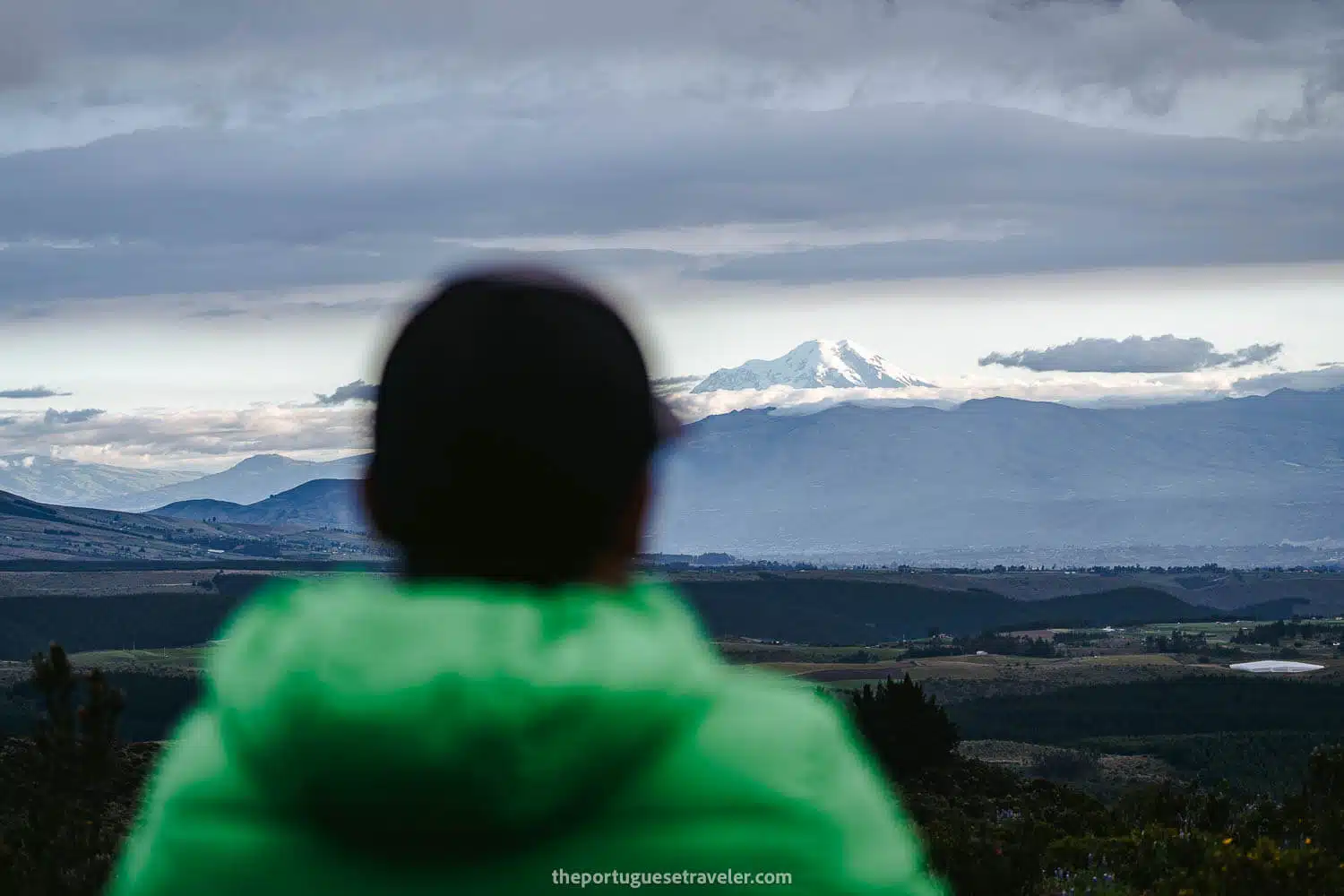
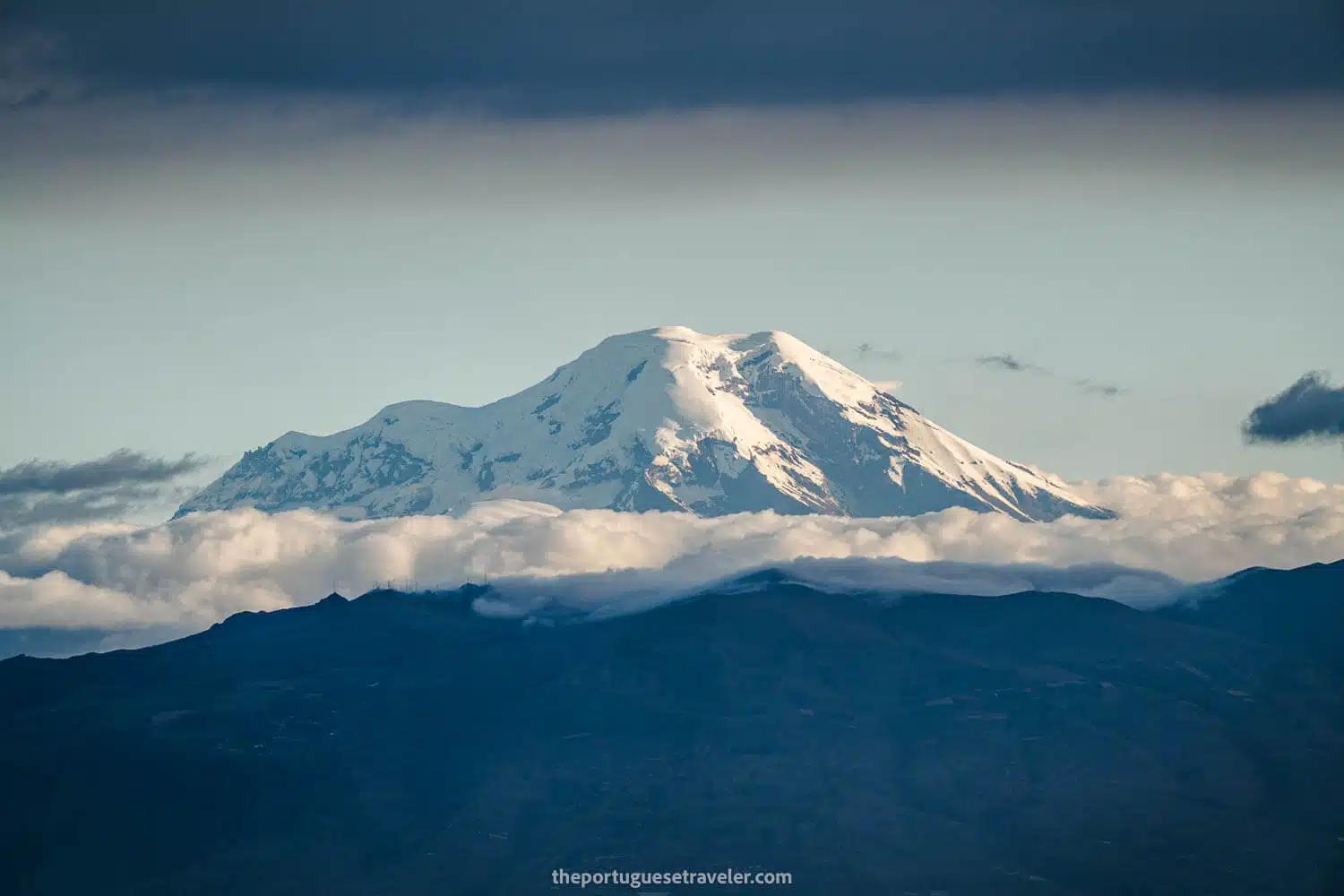
All the articles about Ecuador
Galapagos Islands – Experience the wonders of nature and unique wildlife in this pristine archipelago.
Amazon Rainforest – Immerse yourself in the lush greenery and rich biodiversity of the world’s largest tropical rainforest.
The Andes – Embark on an adventure in the Ecuadorian Andes, a majestic mountain range with diverse landscapes, ancient sites, and captivating wildlife.
Plan your next adventure with us!
Here are the links we use and recommend to plan your trip easily and safely. You won’t pay more, and you’ll help keep the blog running!
Adventures in Sri Lanka - The Ancient Ceylon
Explore The Galapagos Islands
Hiking in Switzerland & Italy
The Hidden Worlds of Ecuador
ABOUT ME
I’m João Petersen, an explorer at heart, travel leader, and the creator of The Portuguese Traveler. Adventure tourism has always been my passion, and my goal is to turn my blog into a go-to resource for outdoor enthusiasts. Over the past few years, I’ve dedicated myself to exploring remote destinations, breathtaking landscapes, and fascinating cultures, sharing my experiences through a mix of storytelling and photography.
SUBSCRIBE
Don’t Miss Out! Be the first to know when I share new adventures—sign up for The Portuguese Traveler newsletter!
MEMBER OF
RECENT POSTS
COMMUNITY
GUIDES
Need help planning? Get our interactive Ecuador and Galapagos guides with curated itineraries. Learn more…
RELATED POSTS
TRAVEL INSURANCE
Lost luggage, missed flights, or medical emergencies – can you afford the risk? For peace of mind, I always trust Heymondo Travel Insurance.
Get 5% off your insurance with my link!



